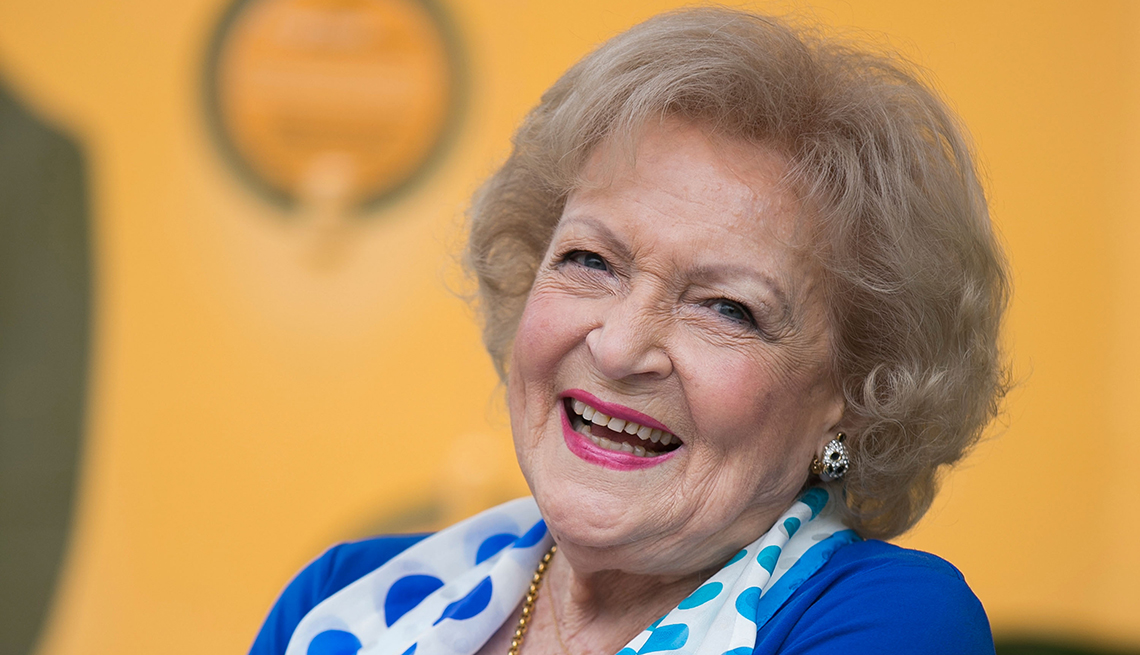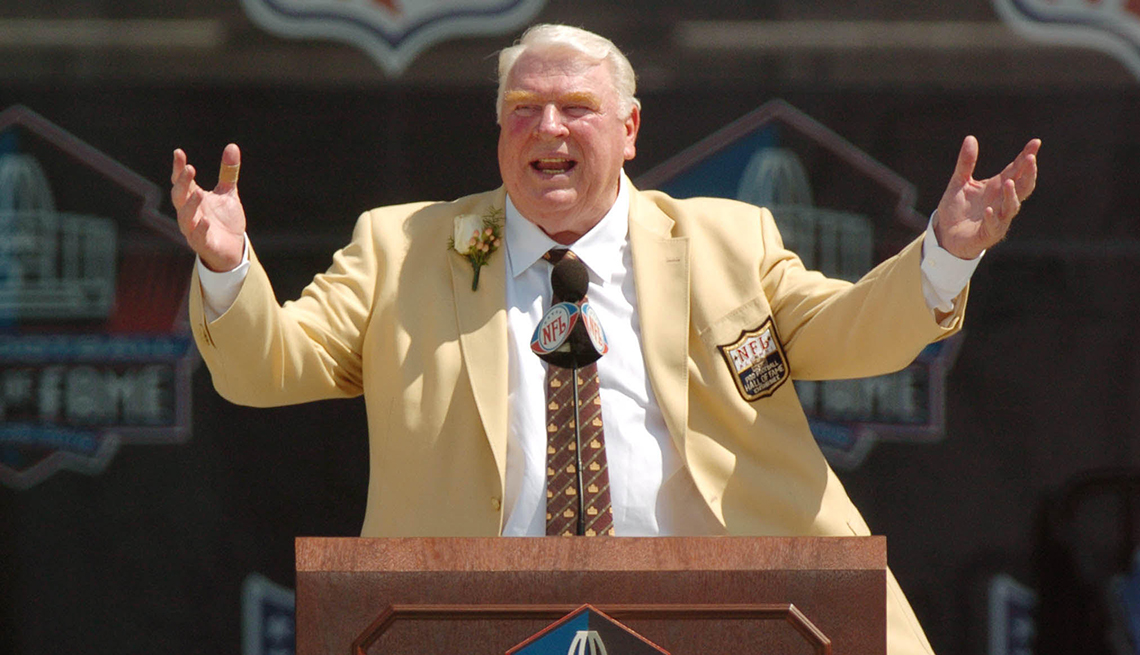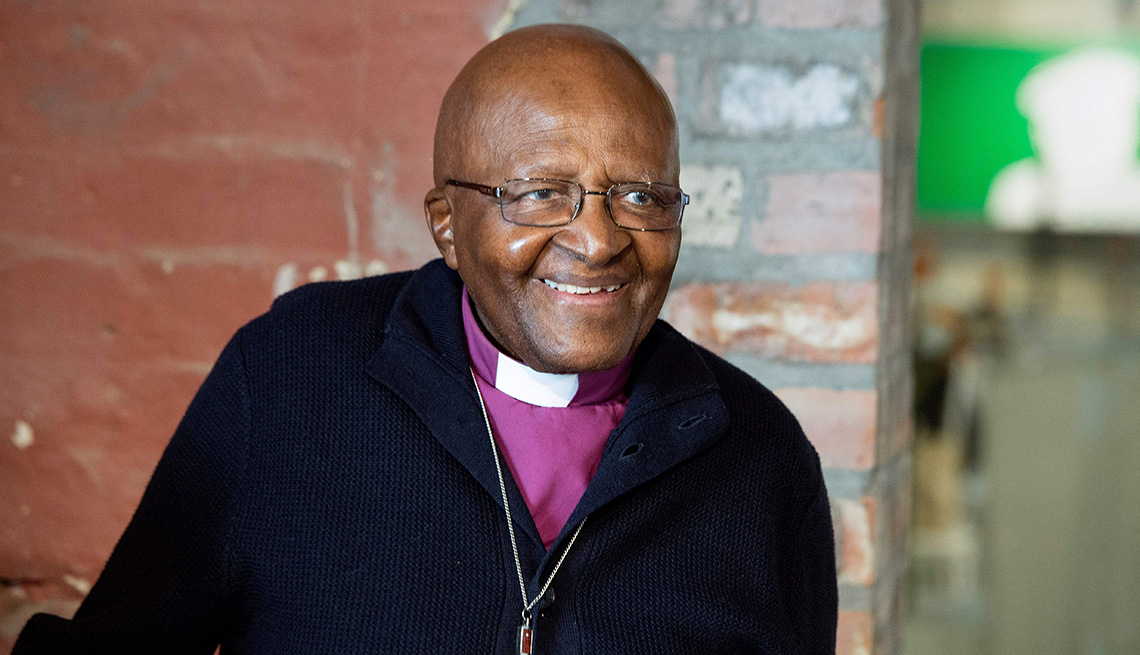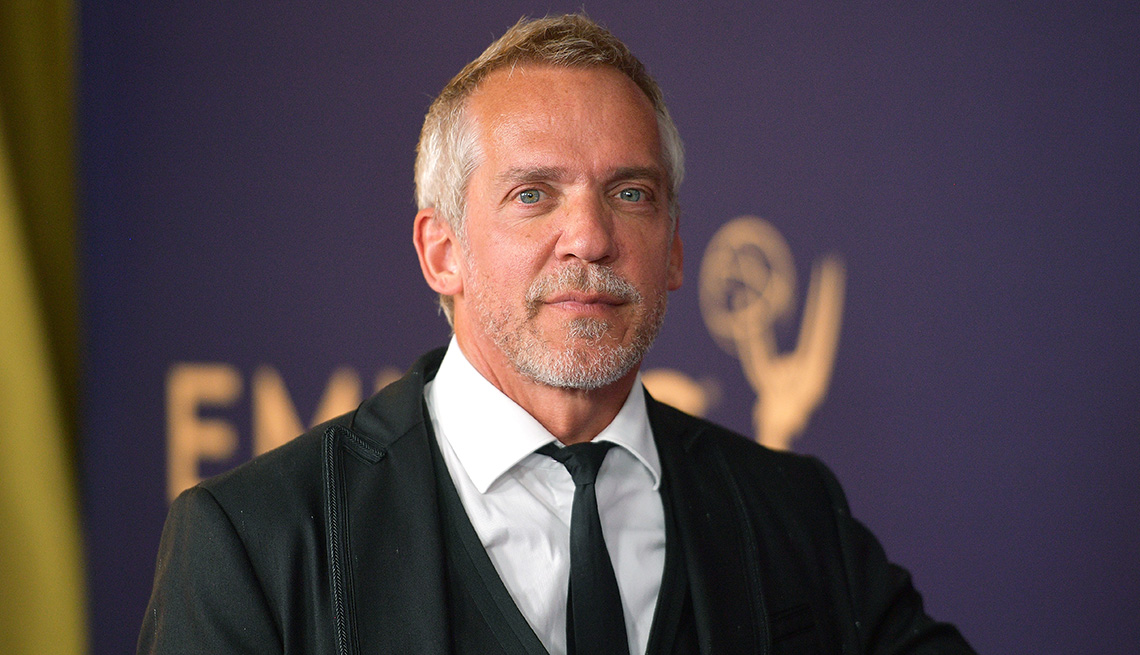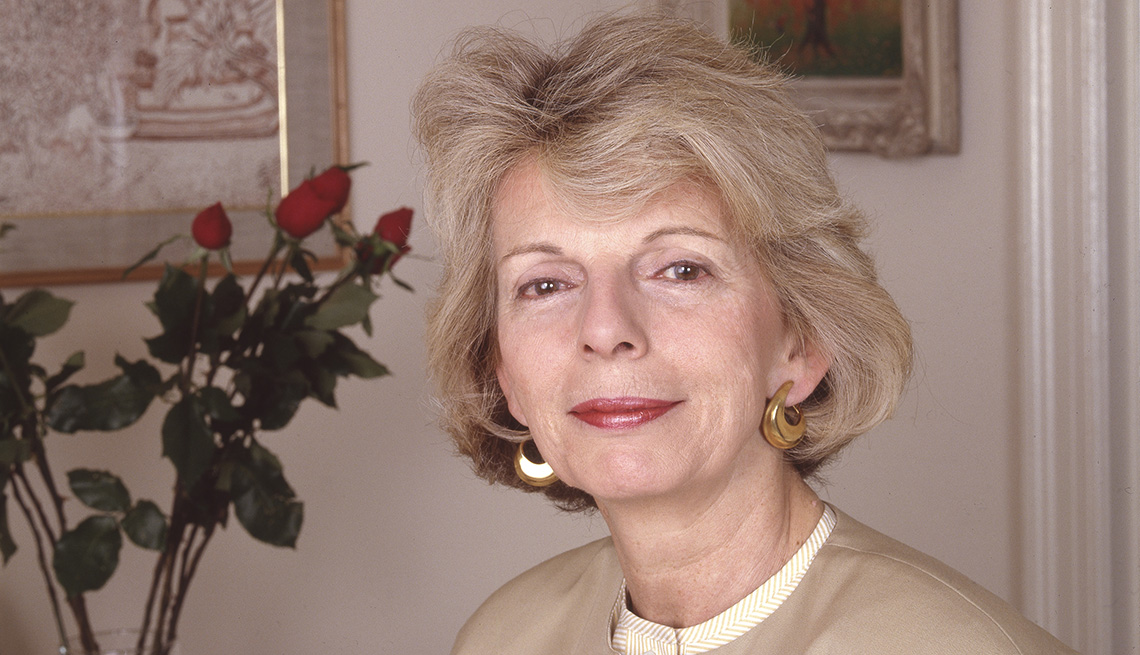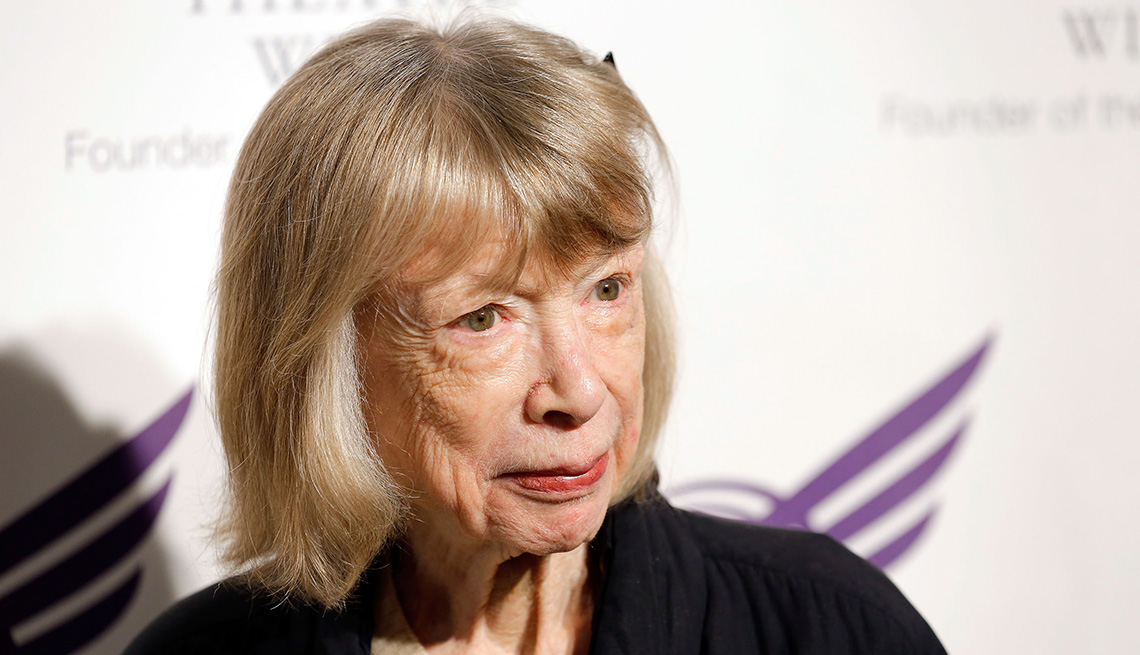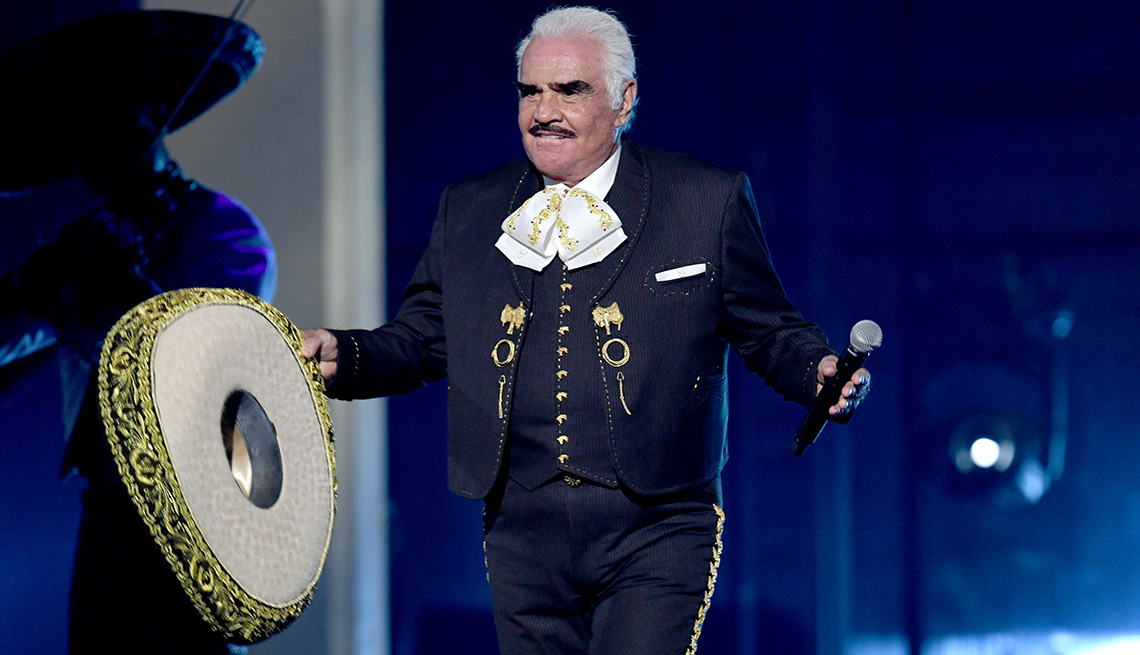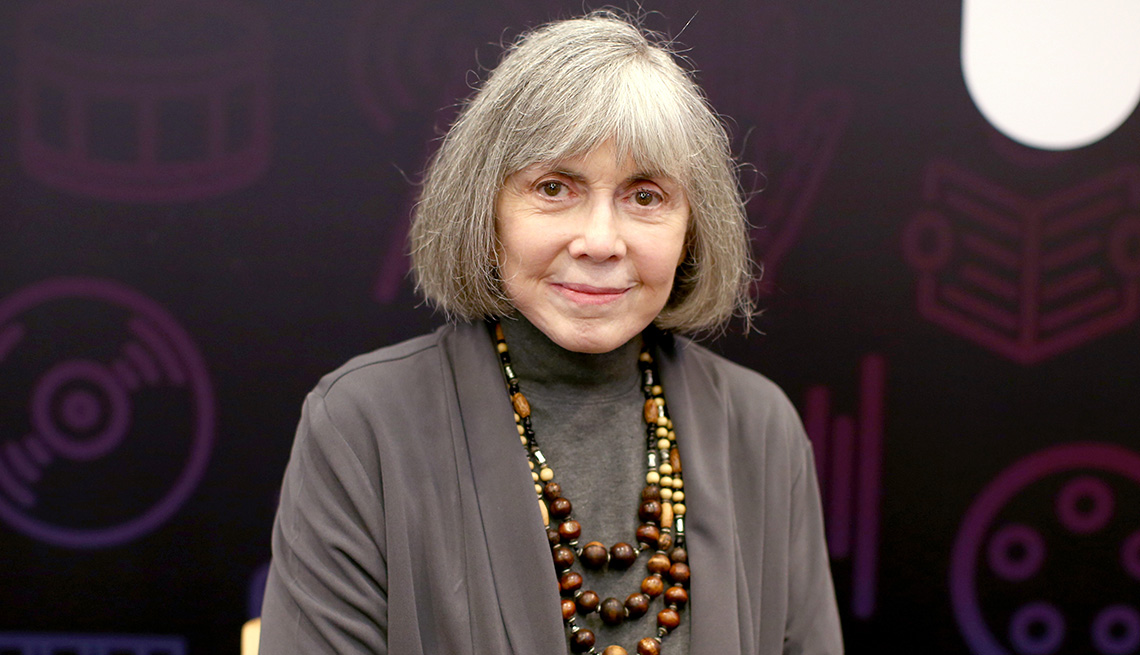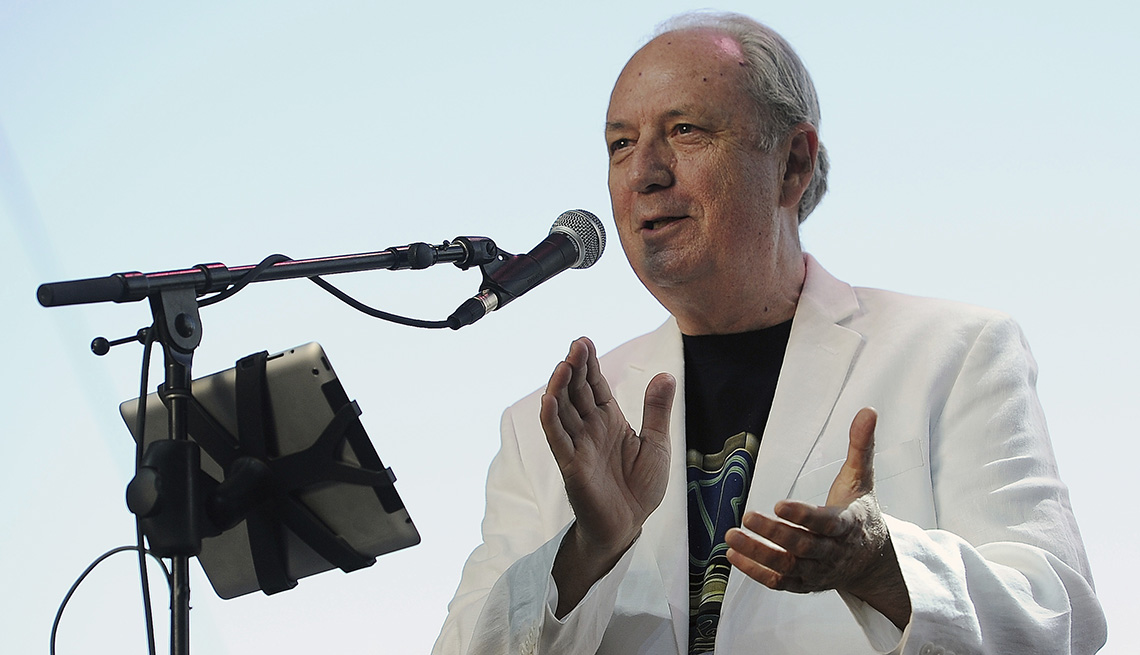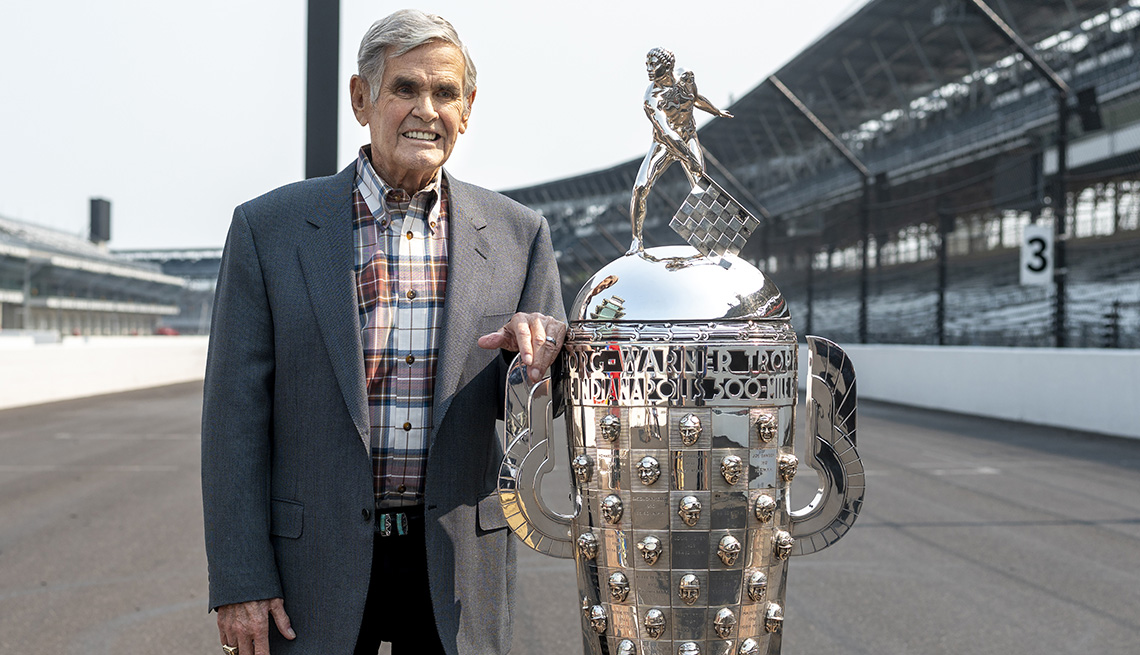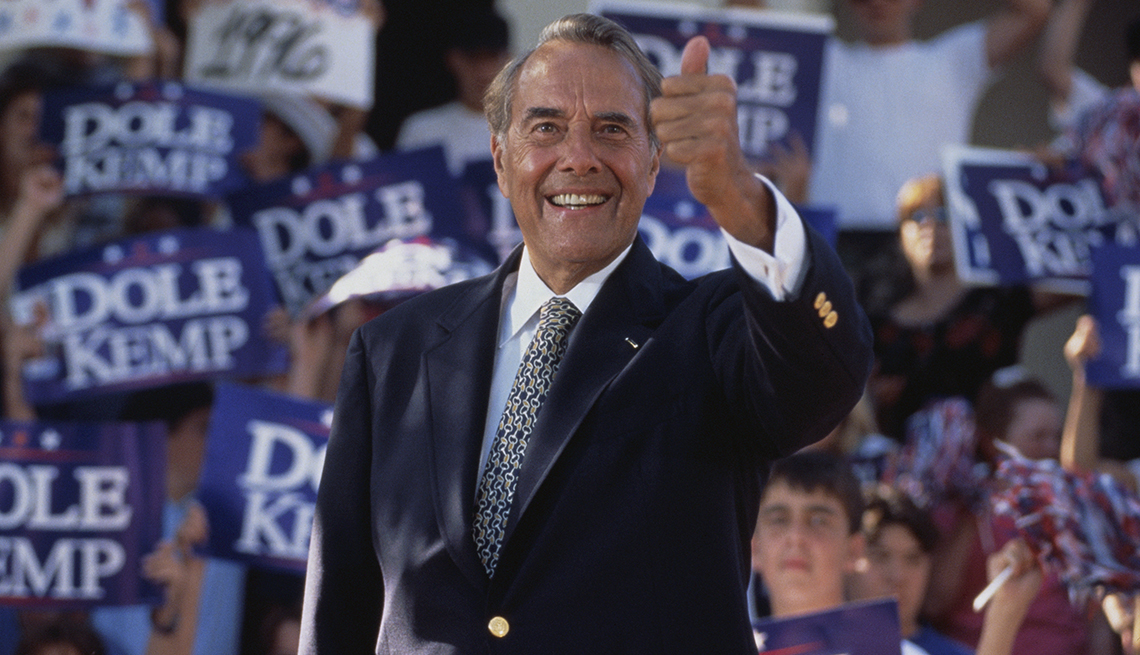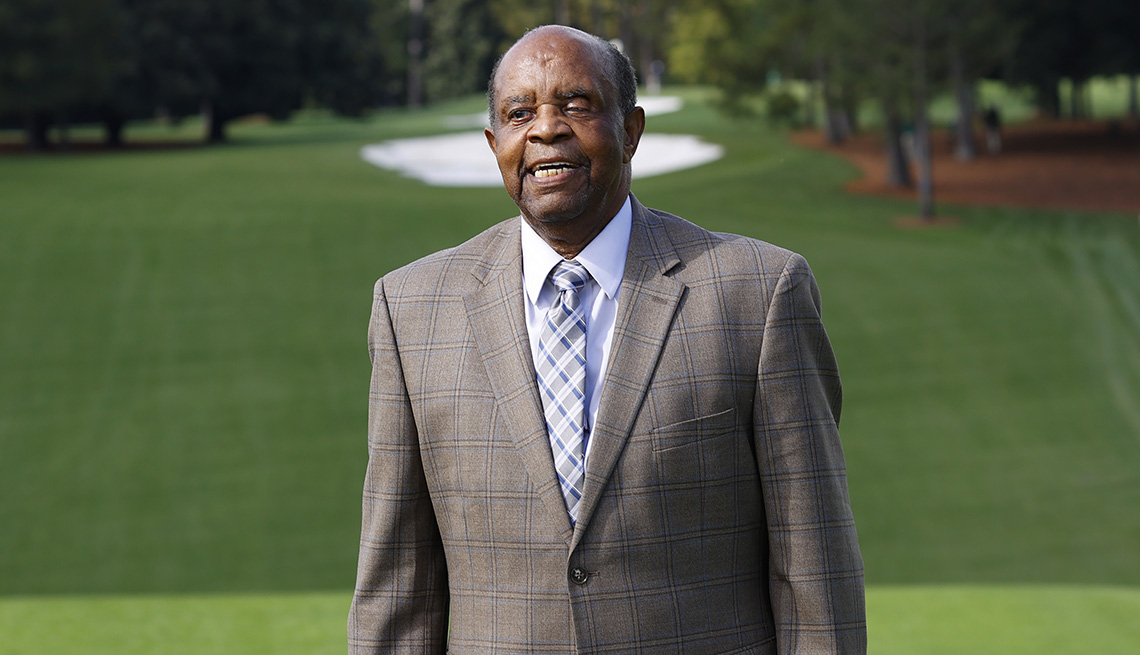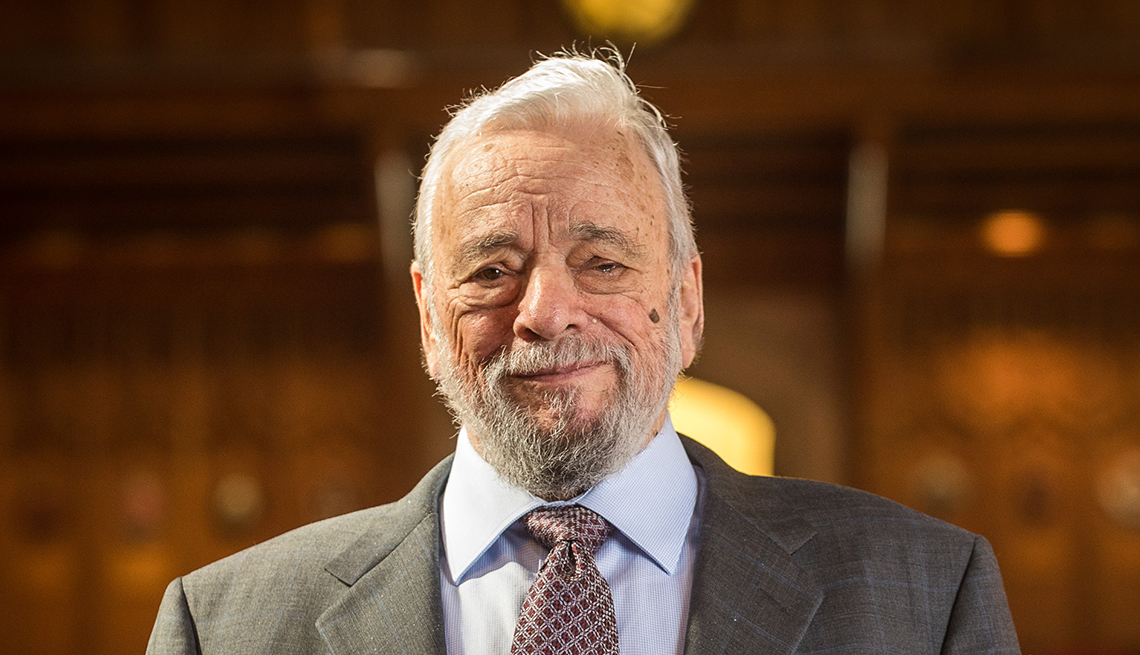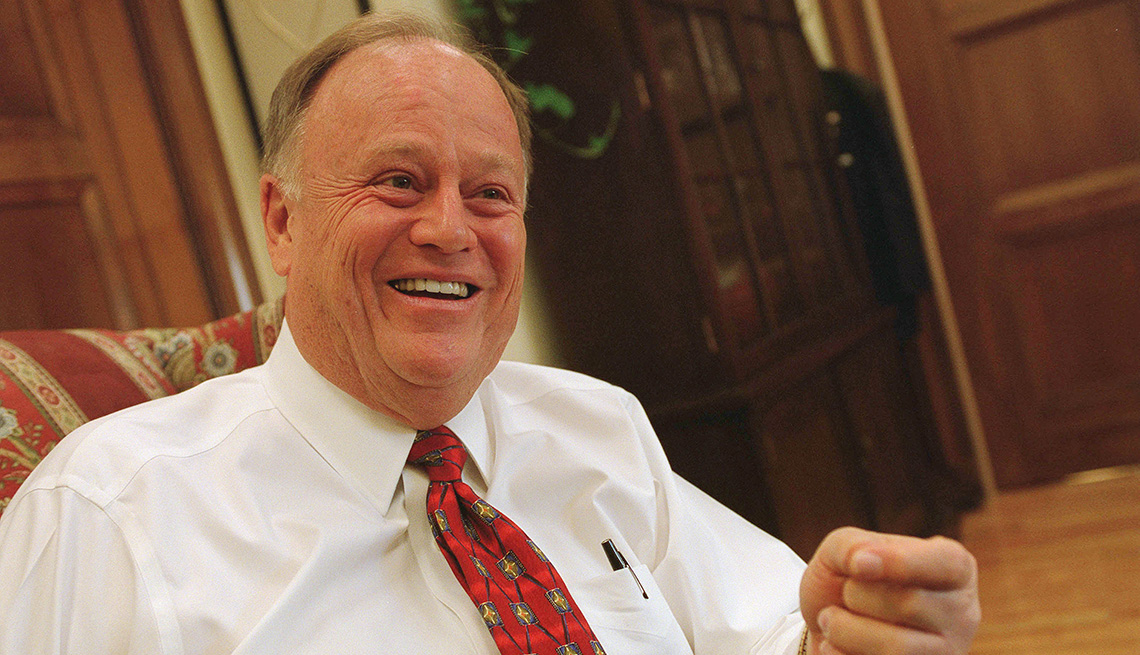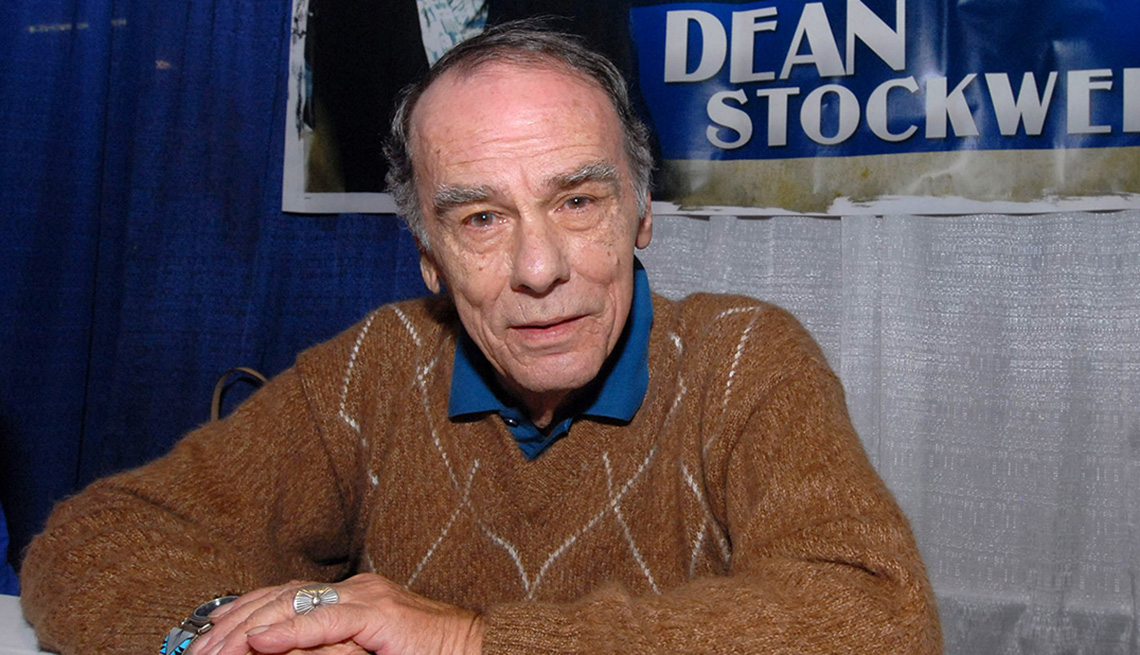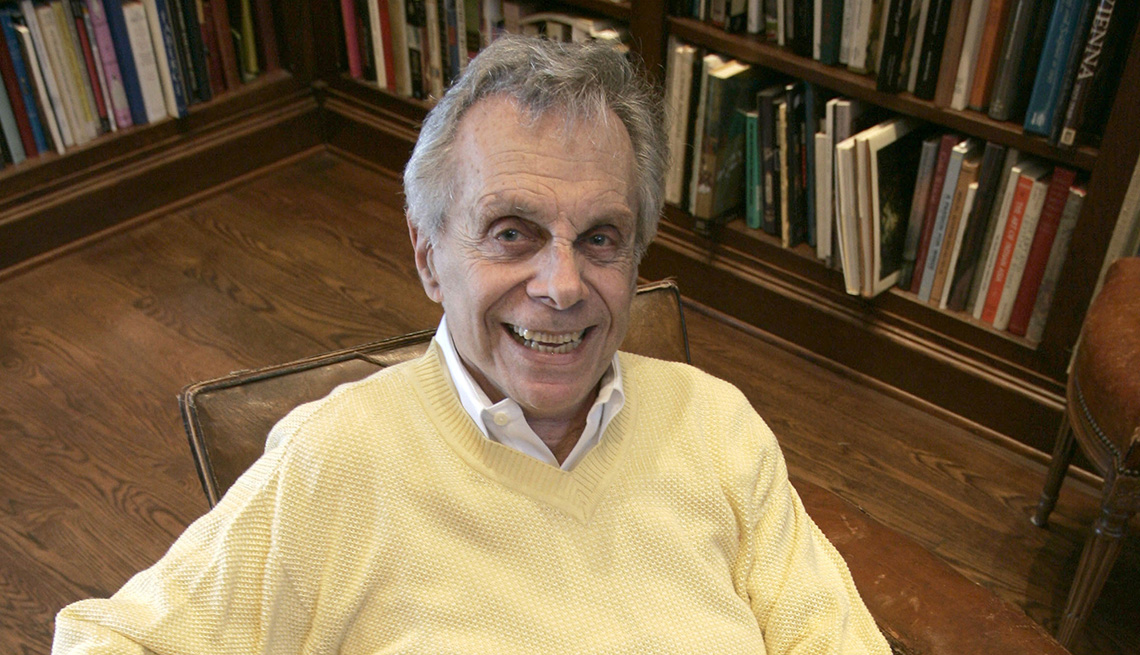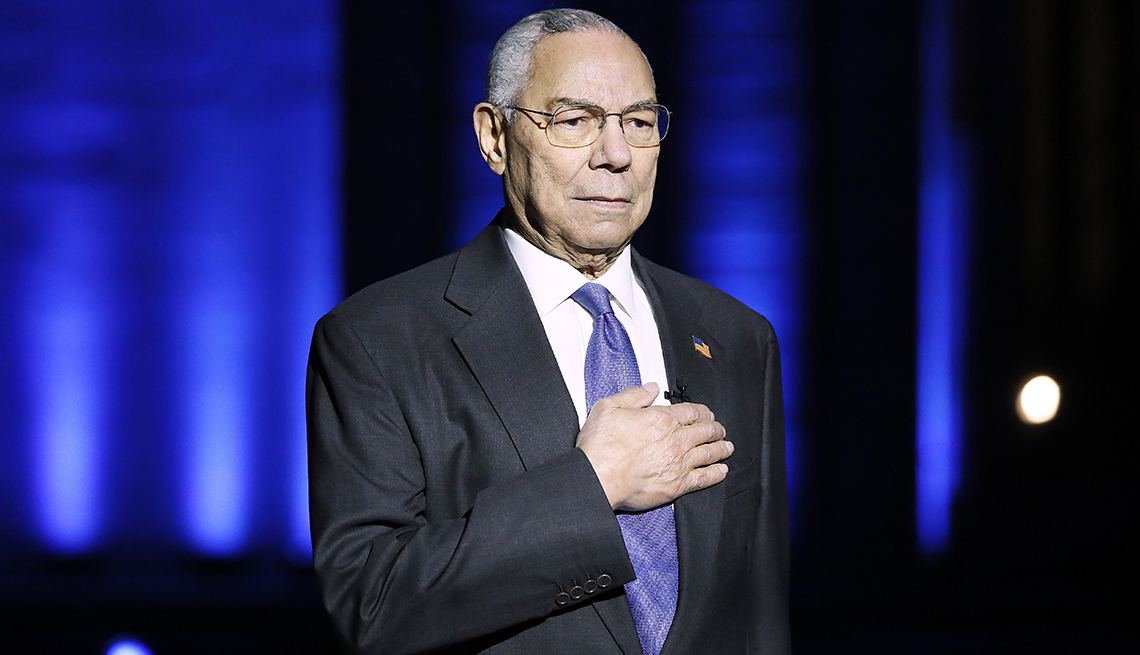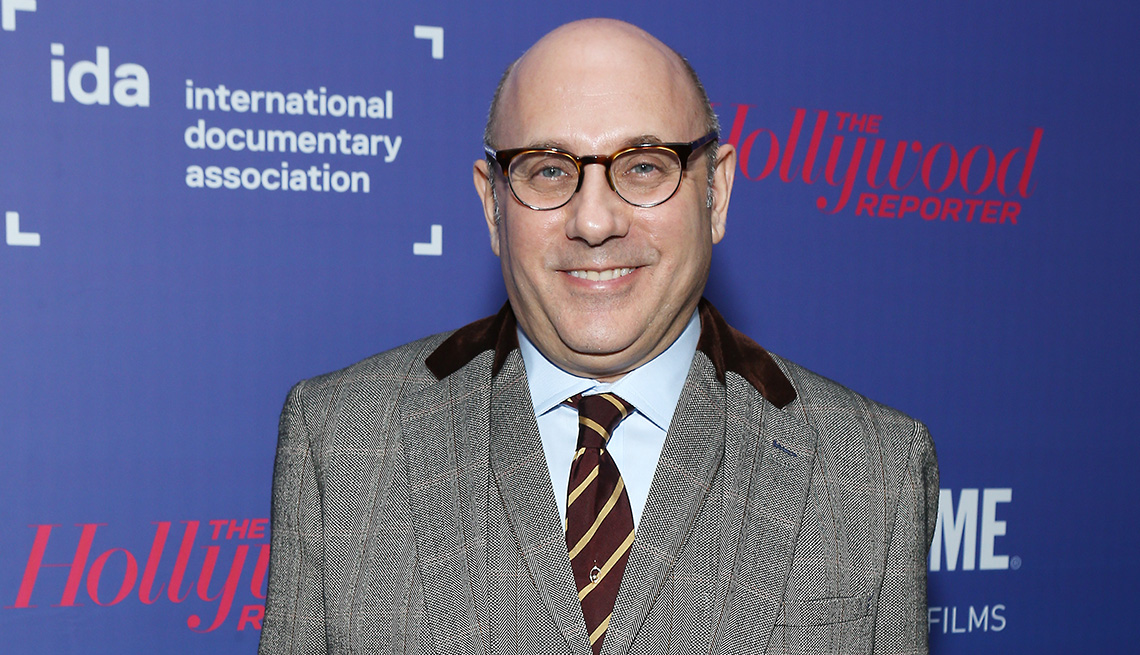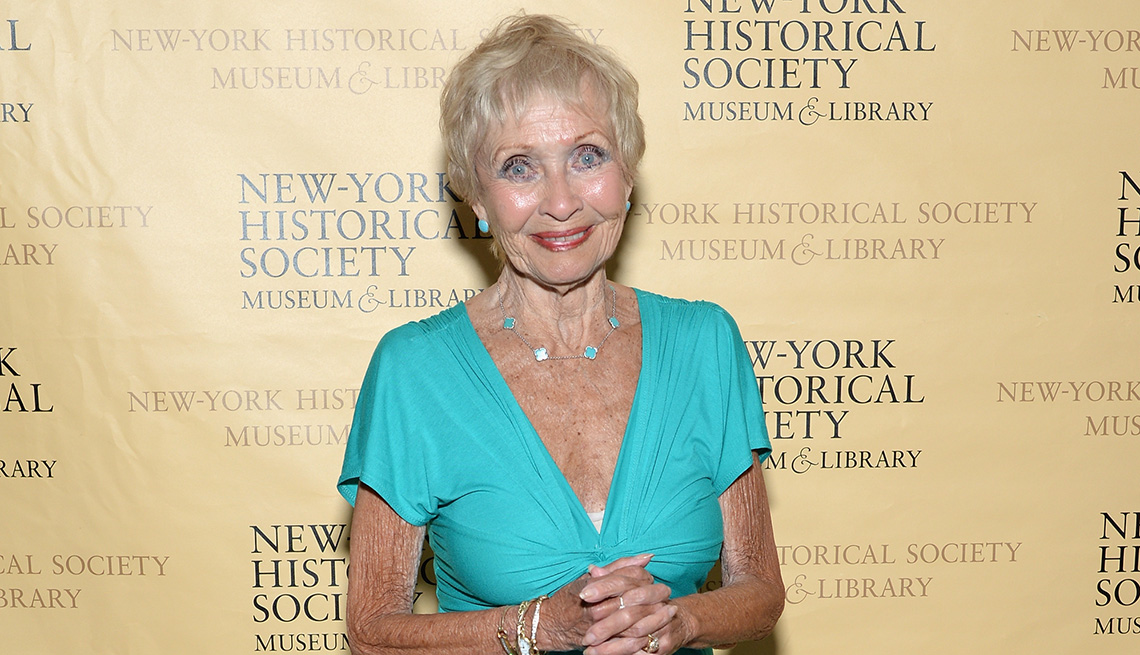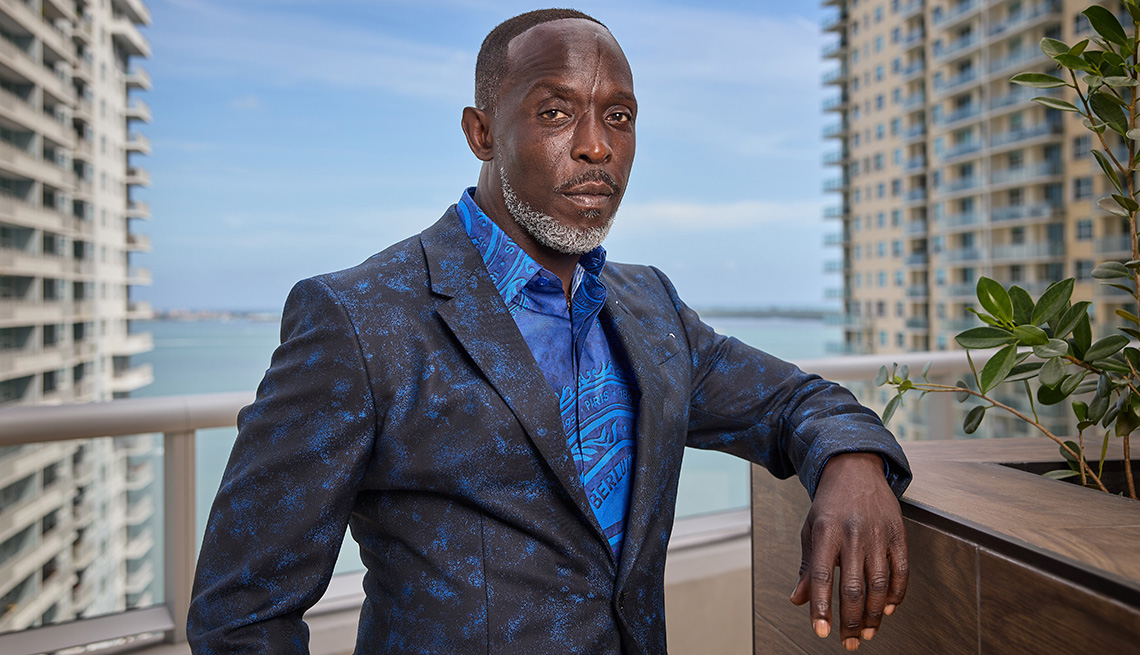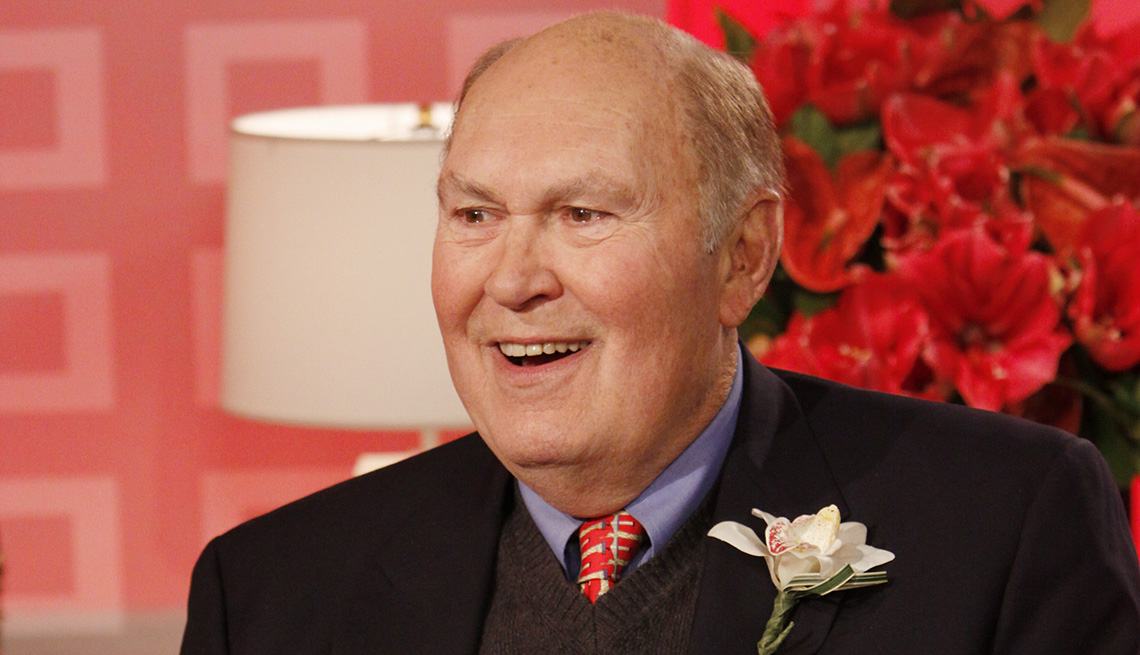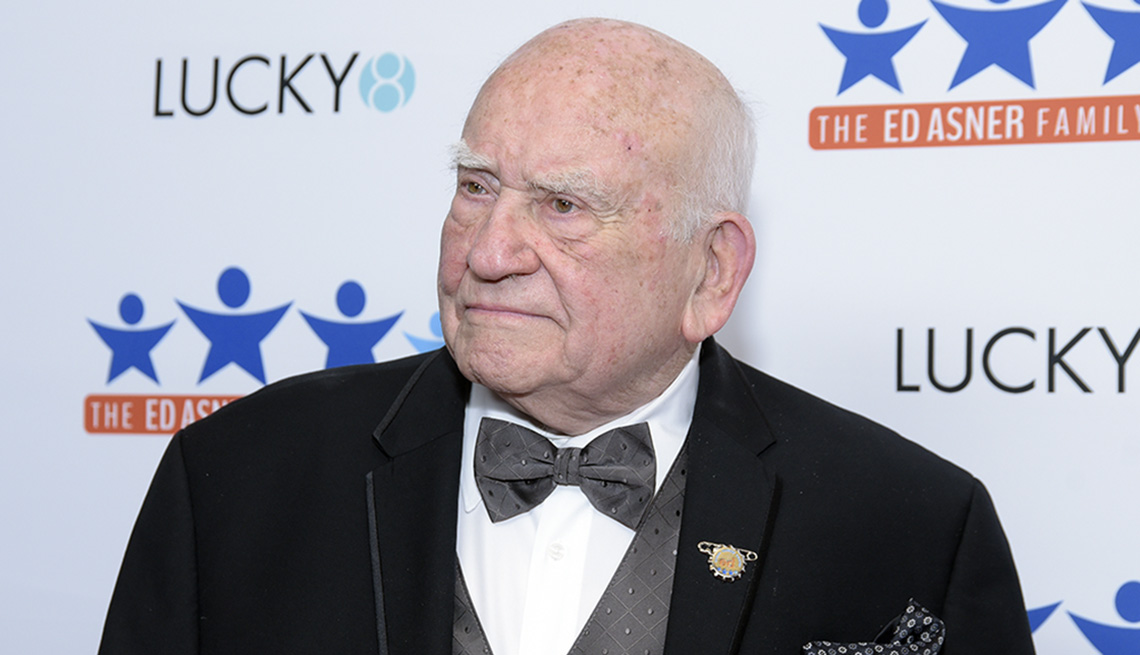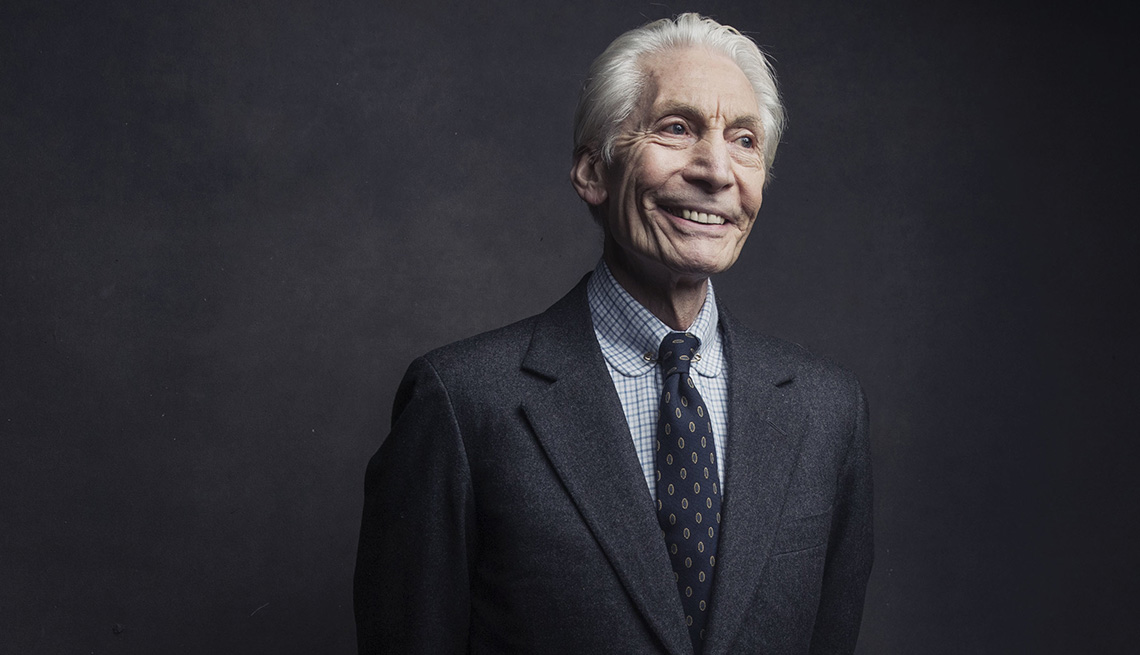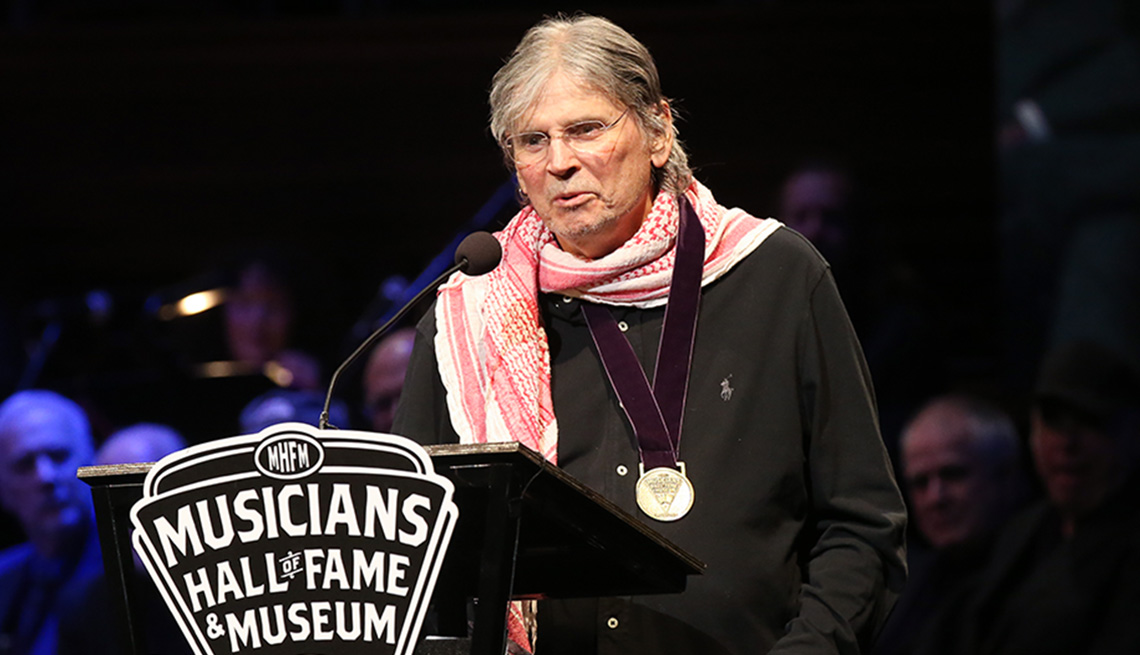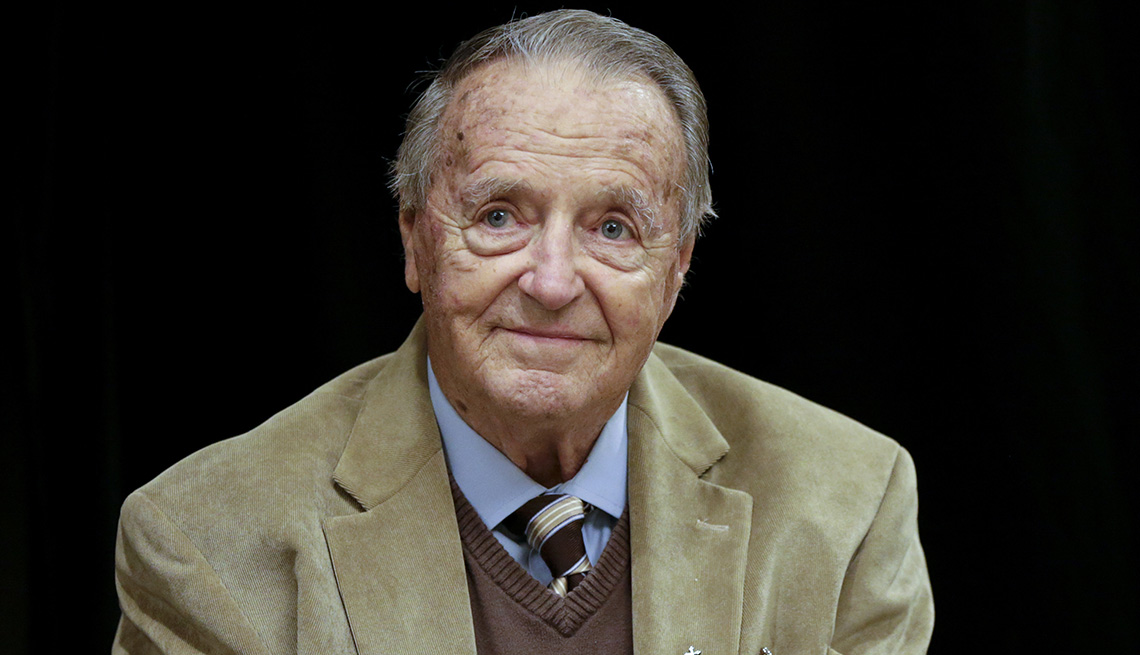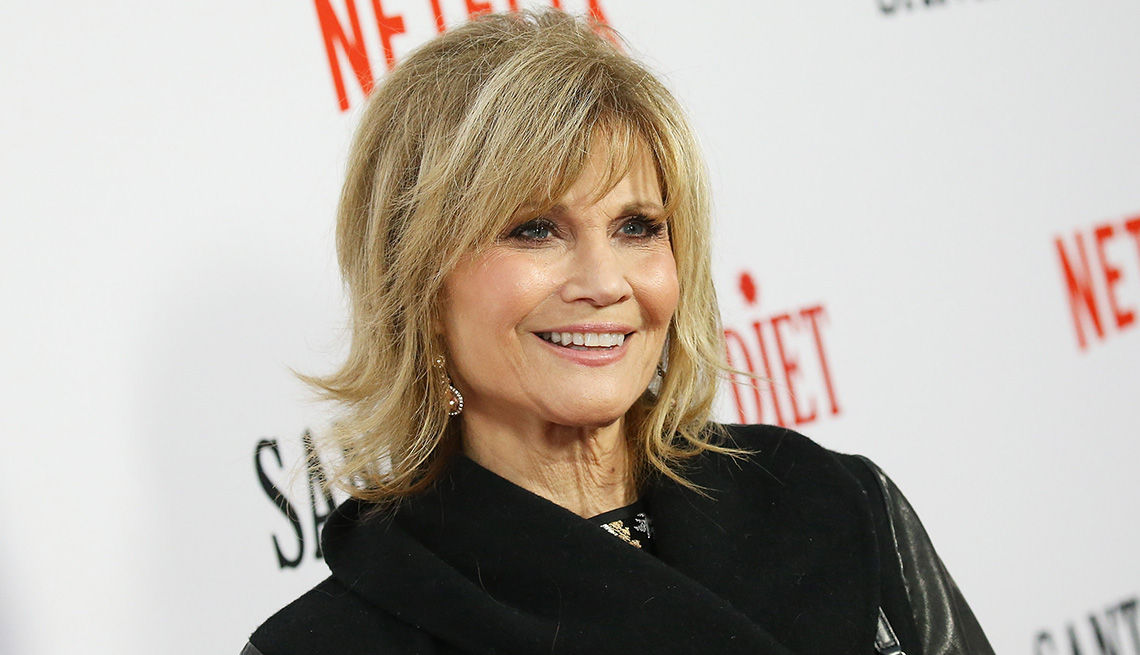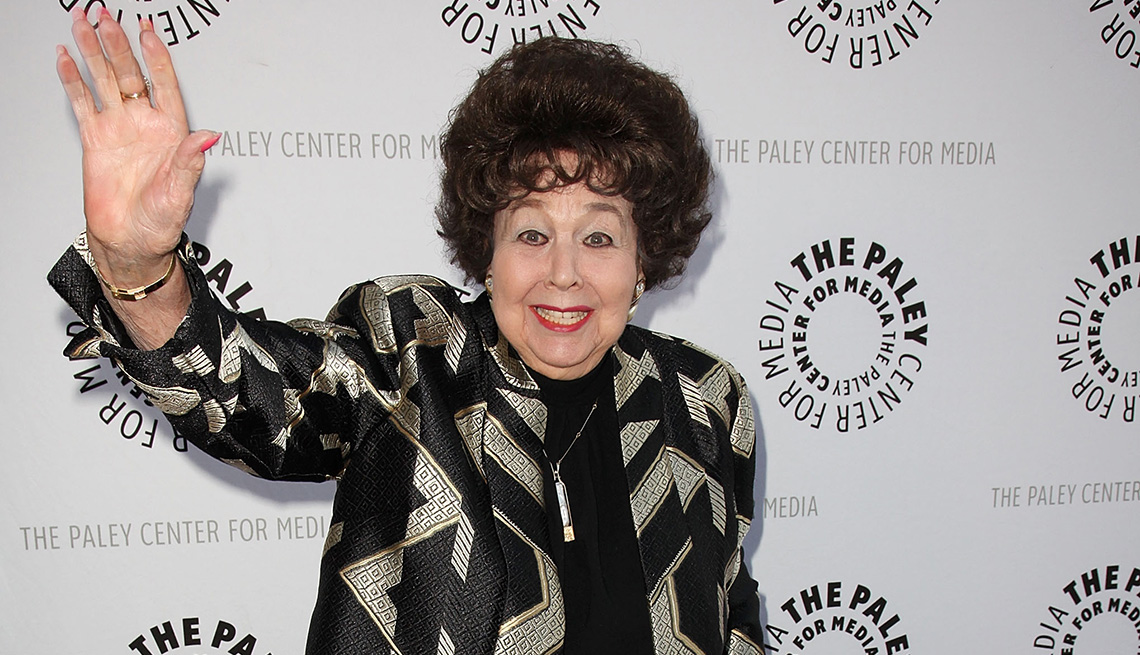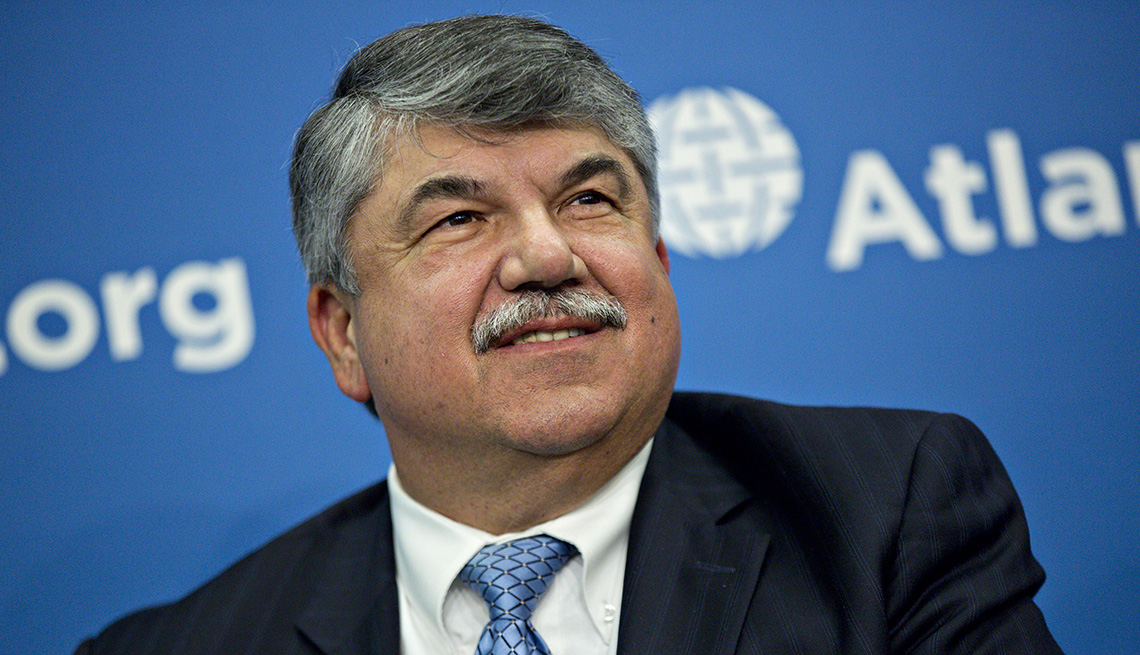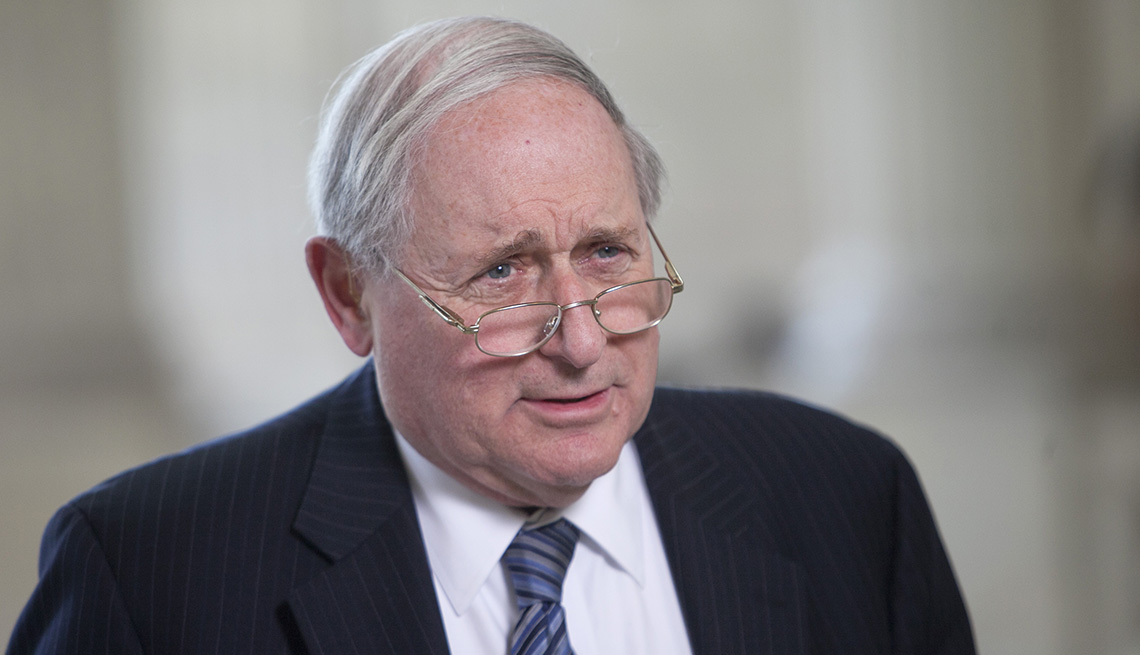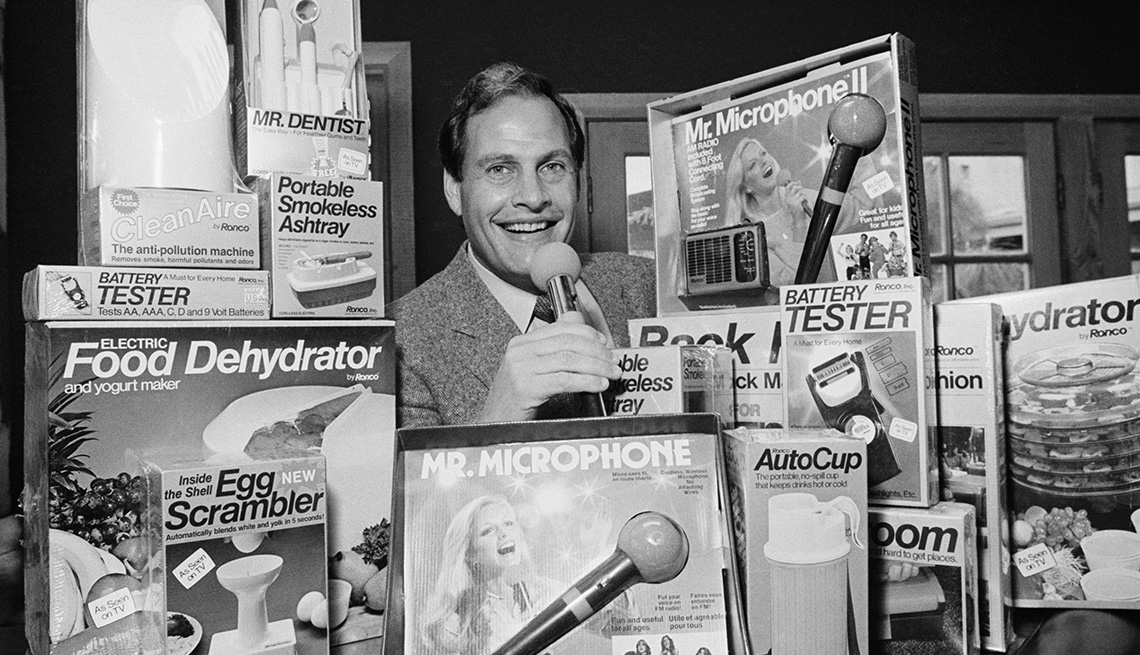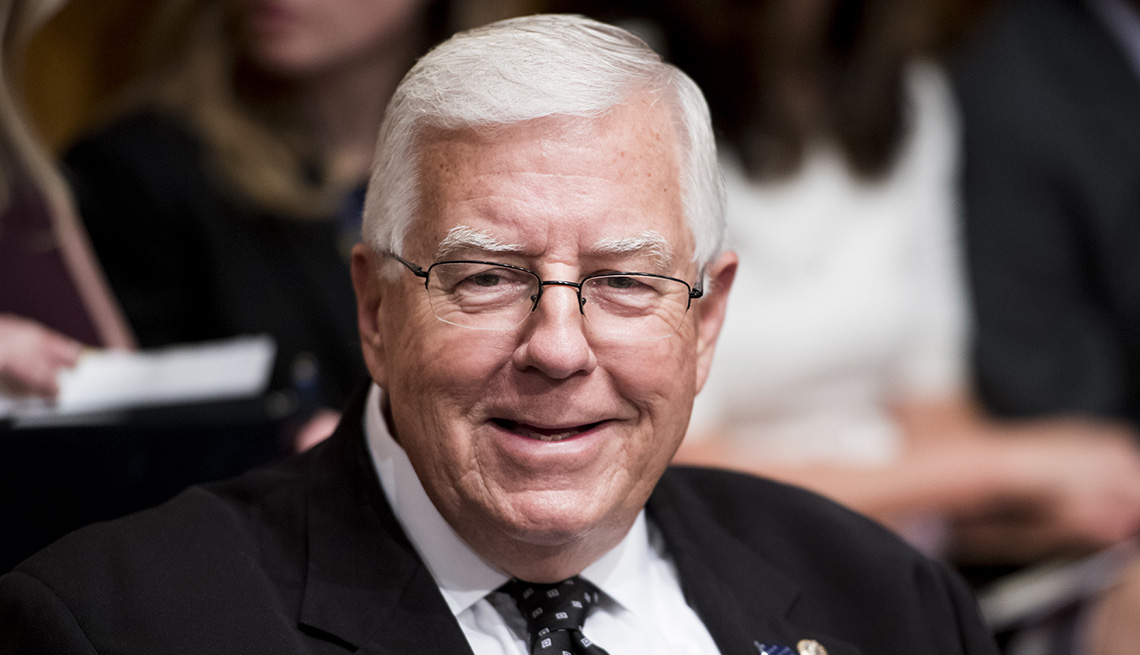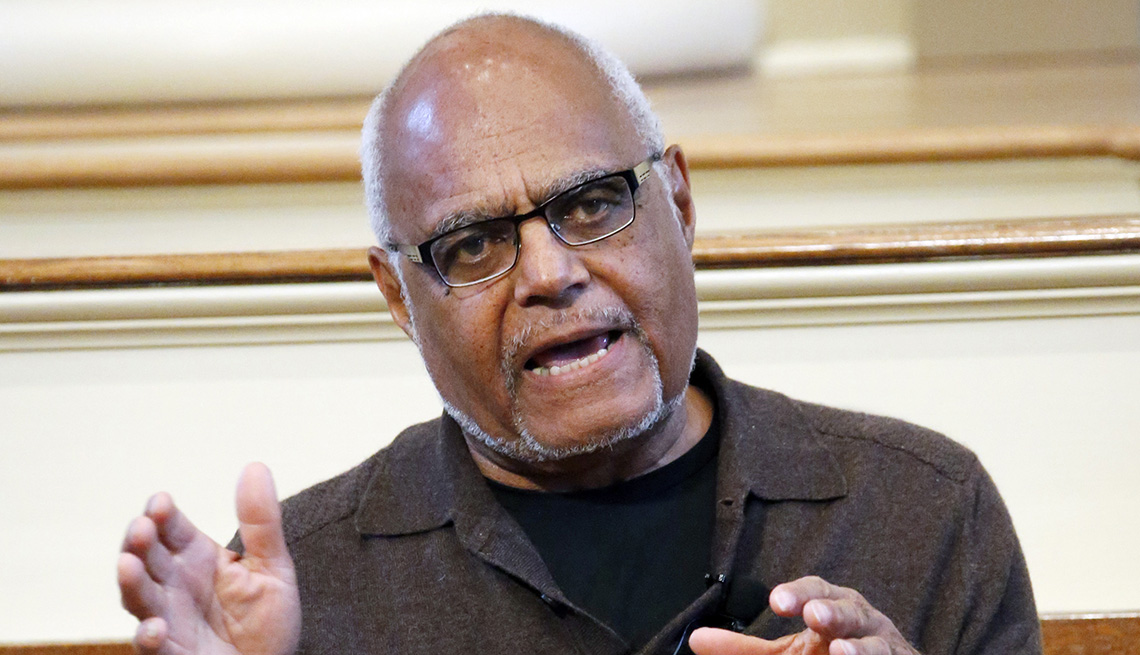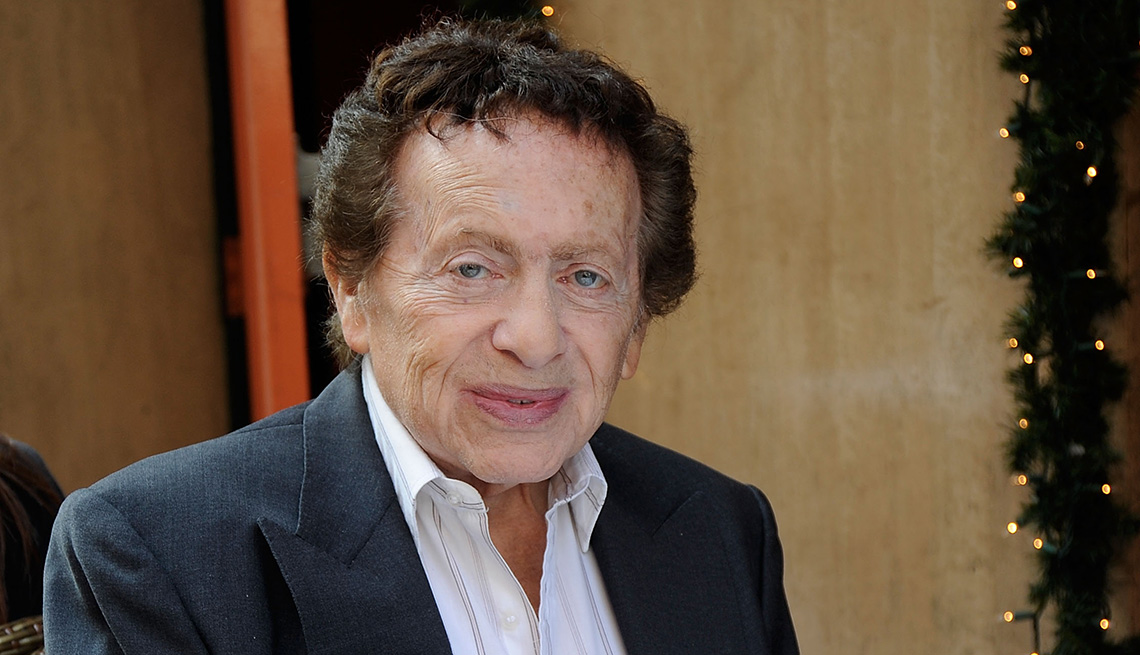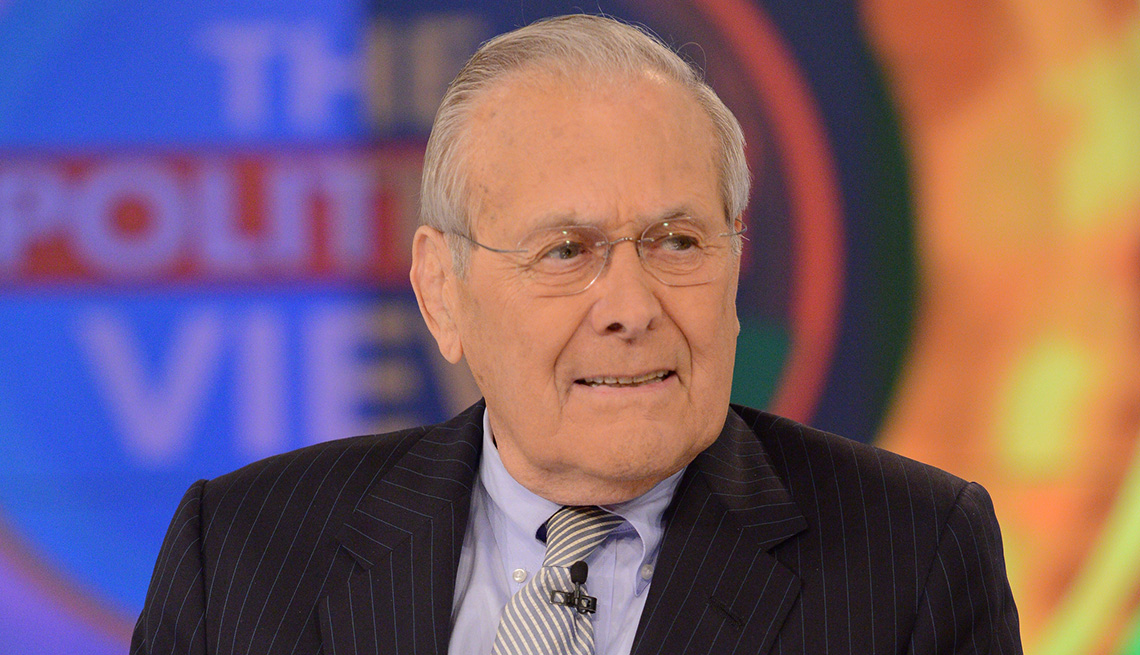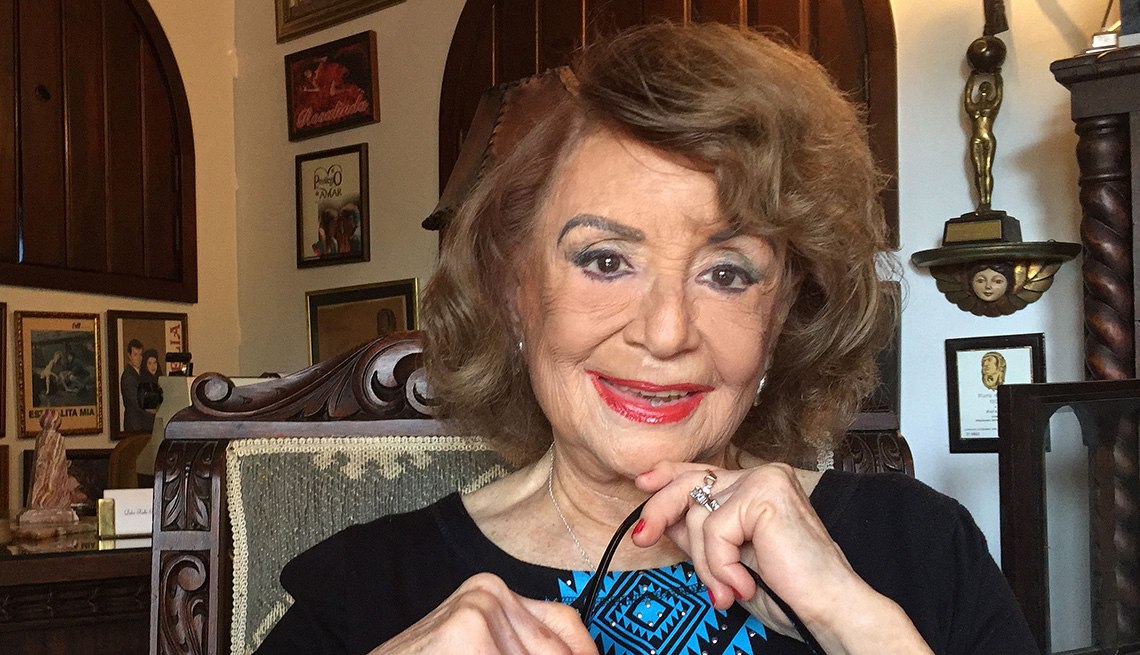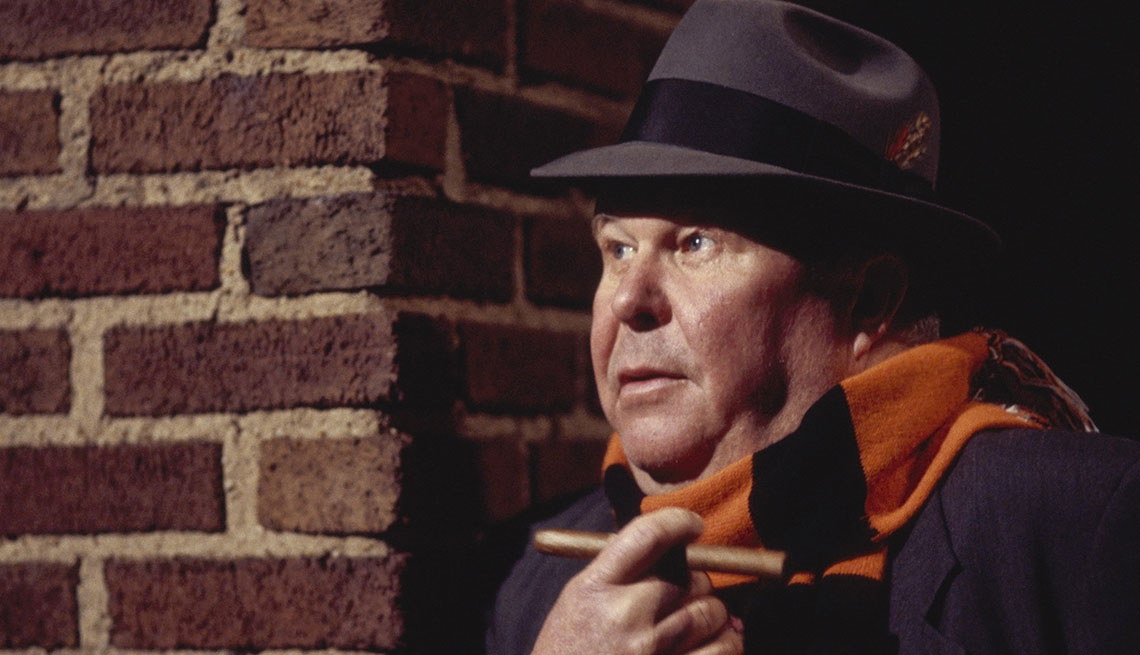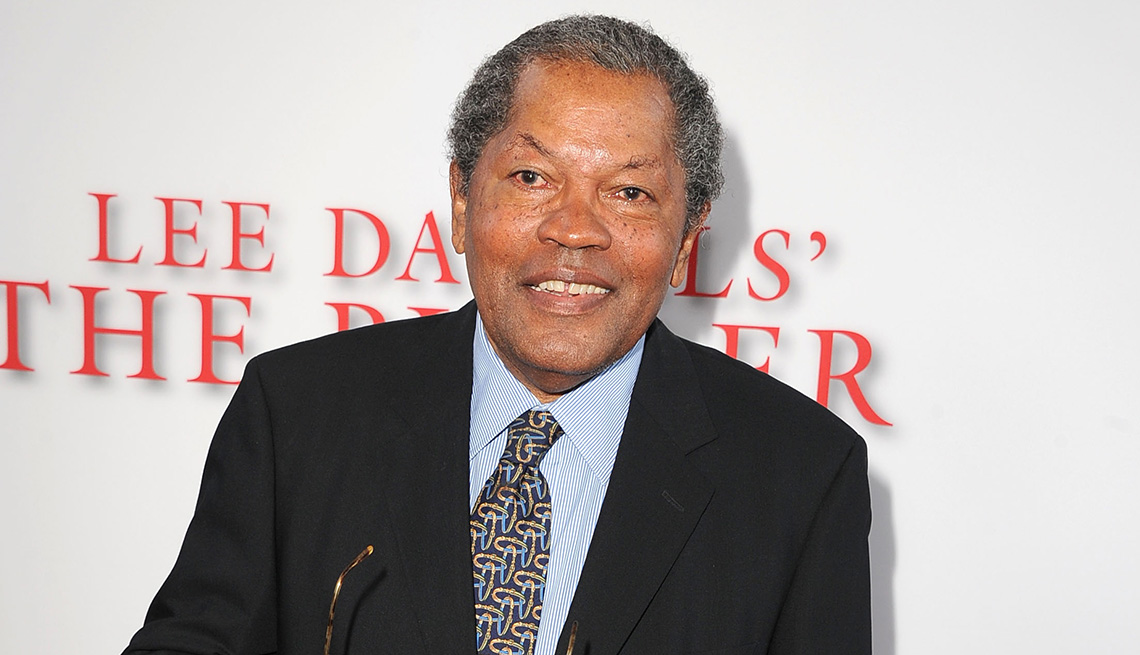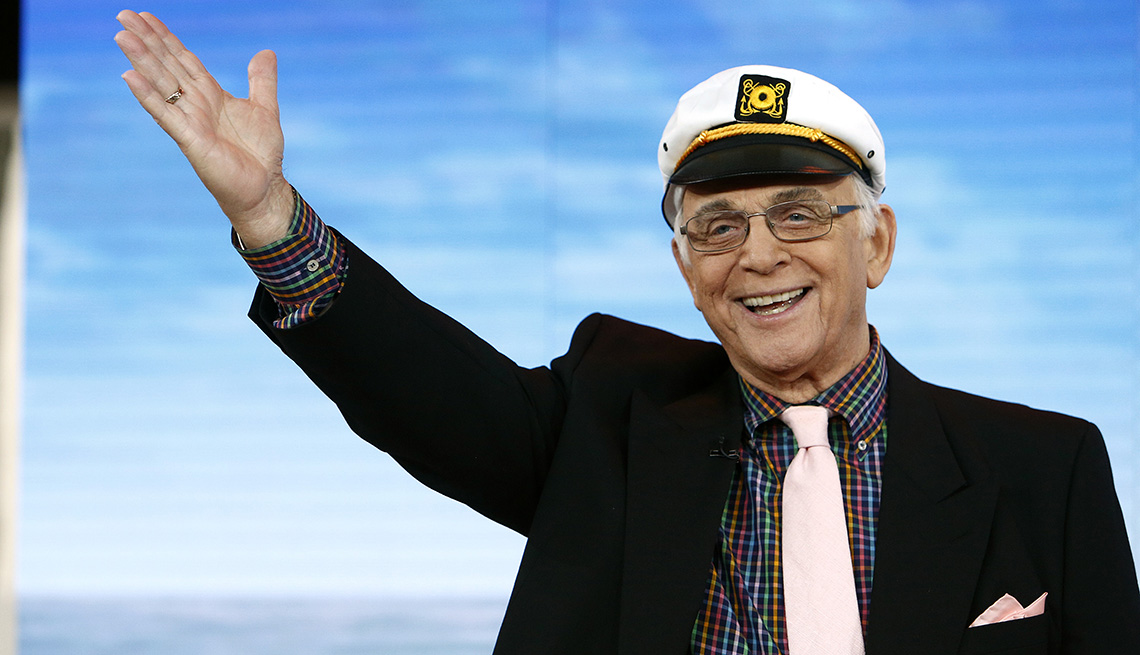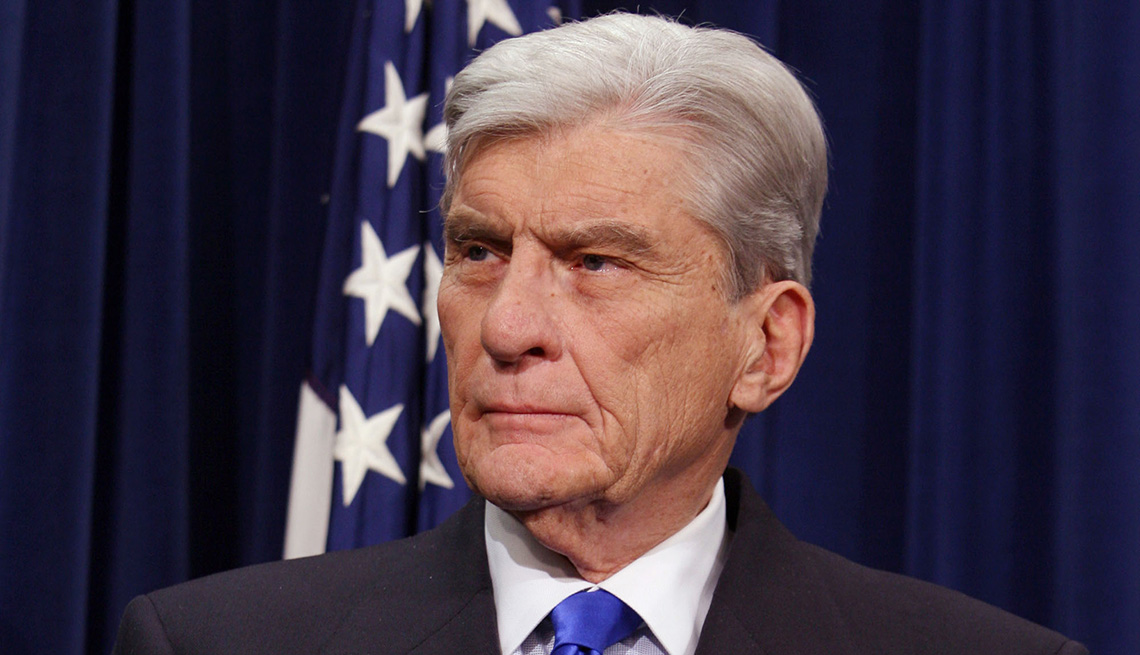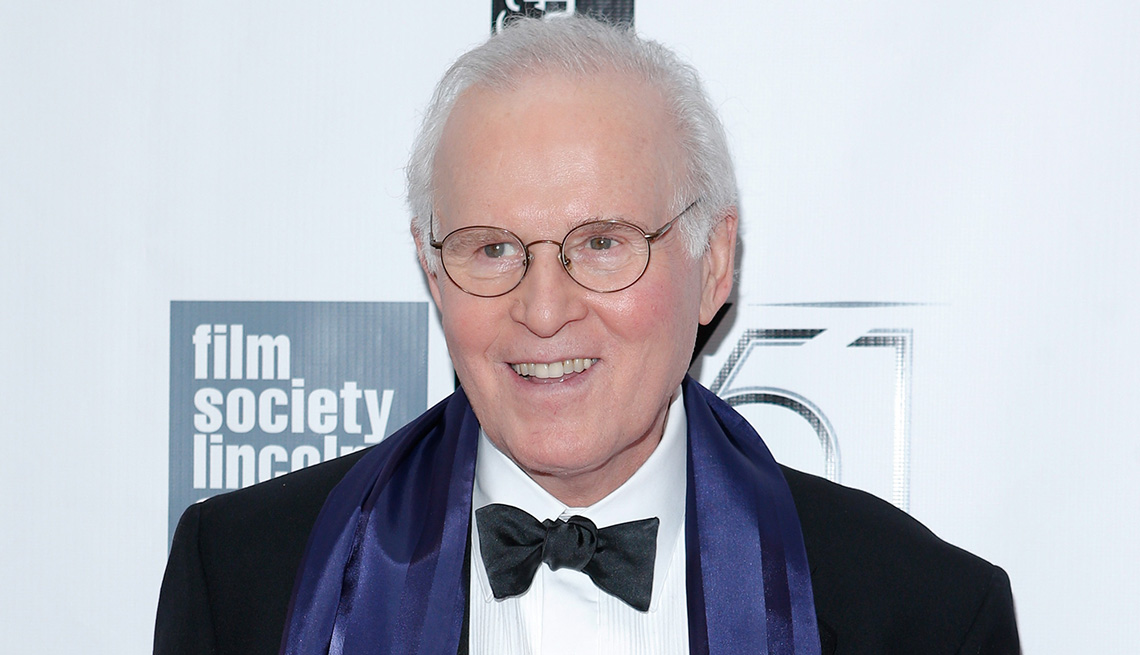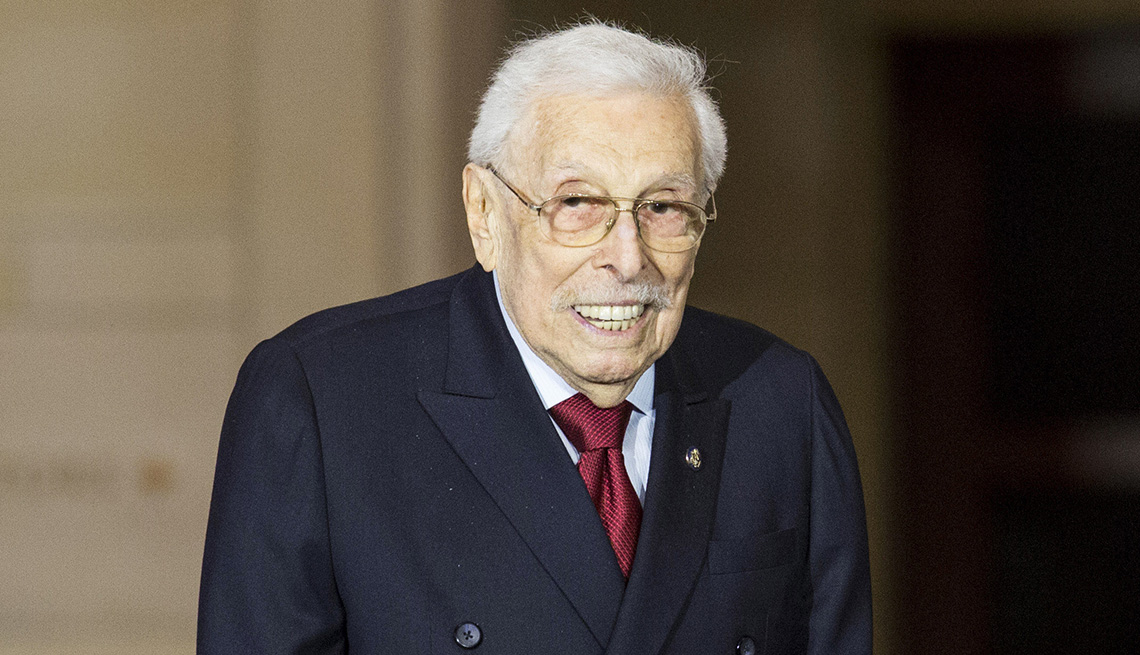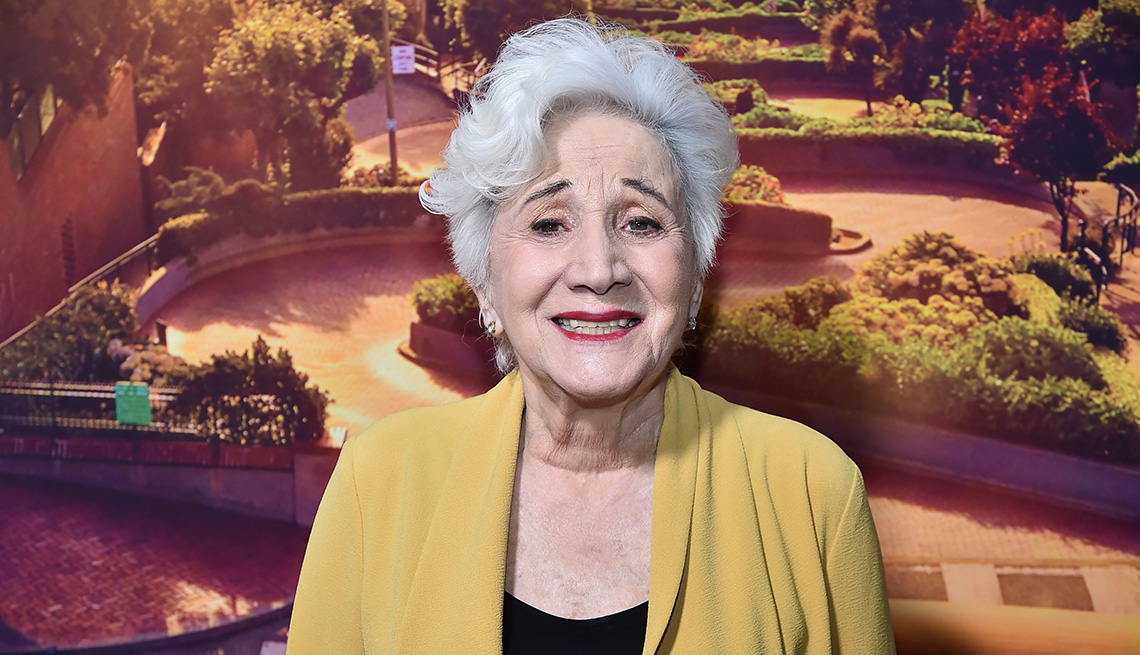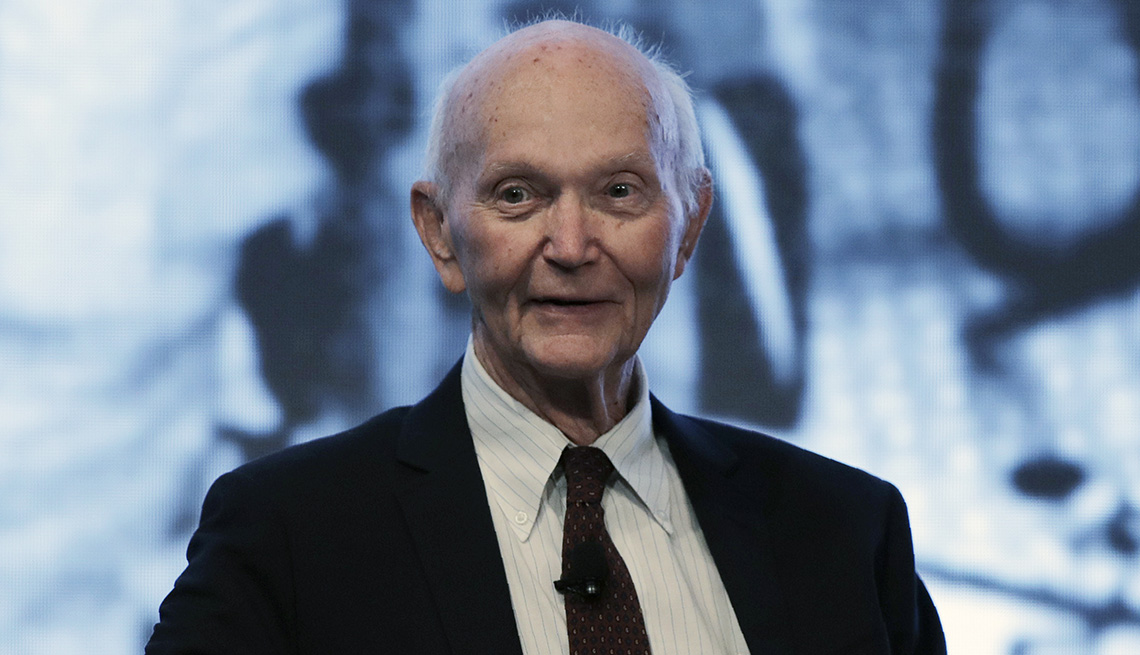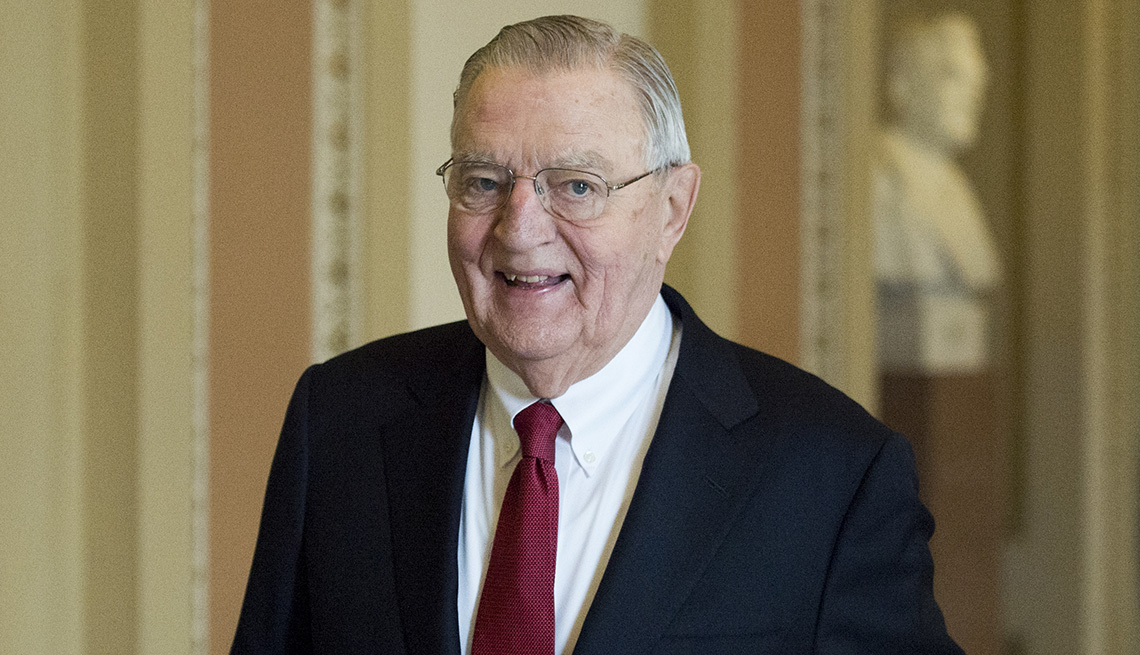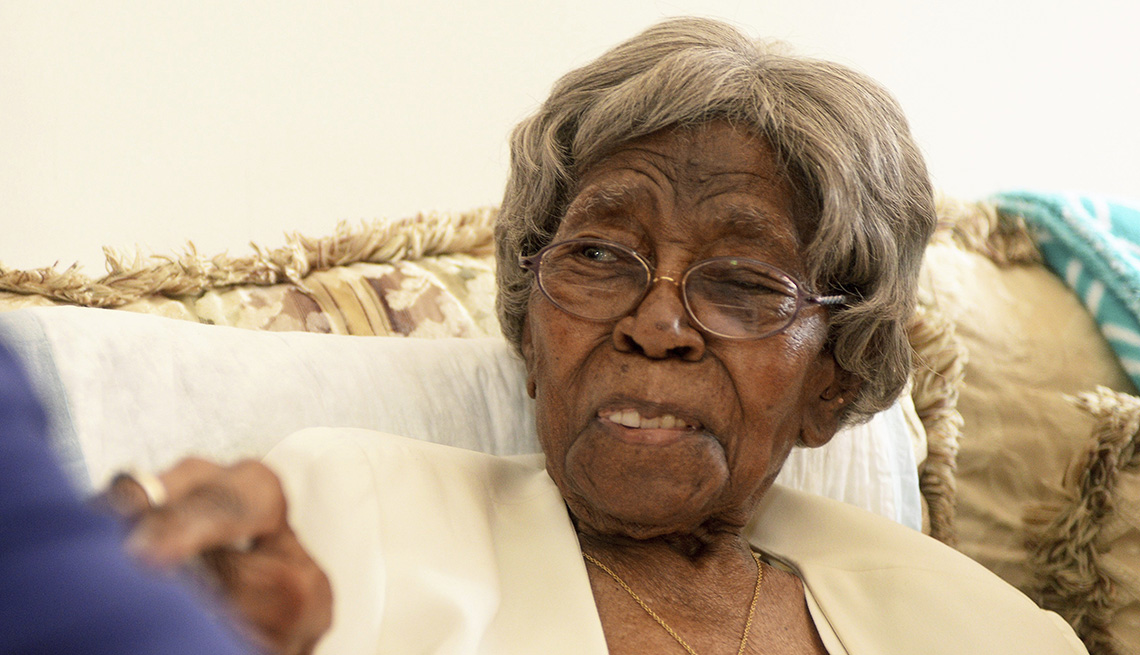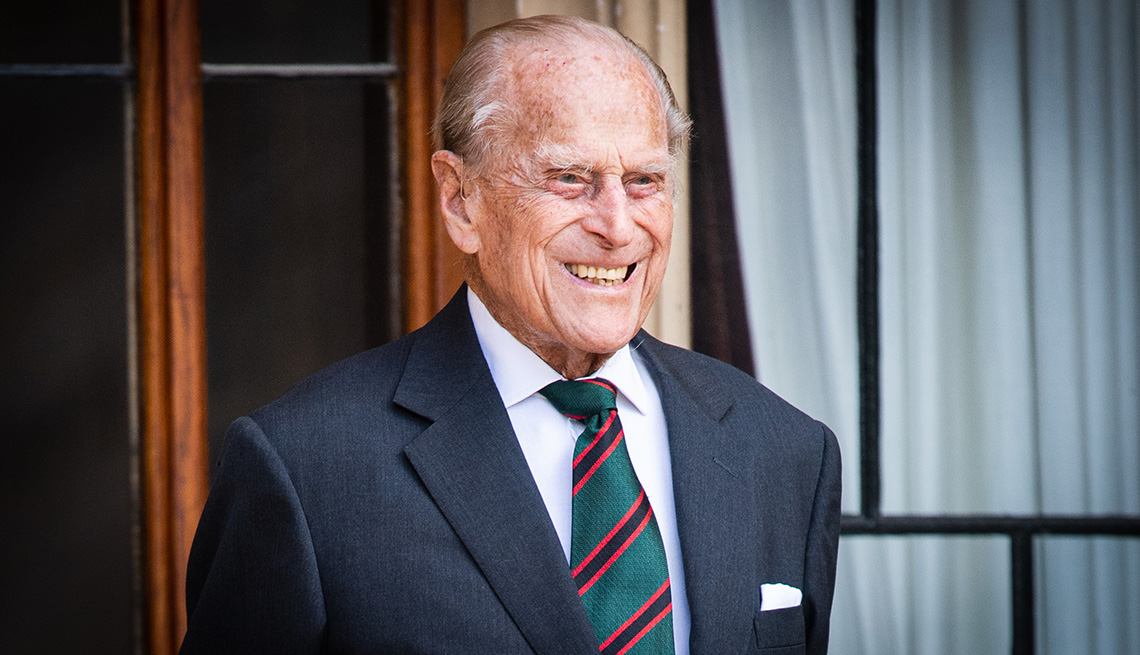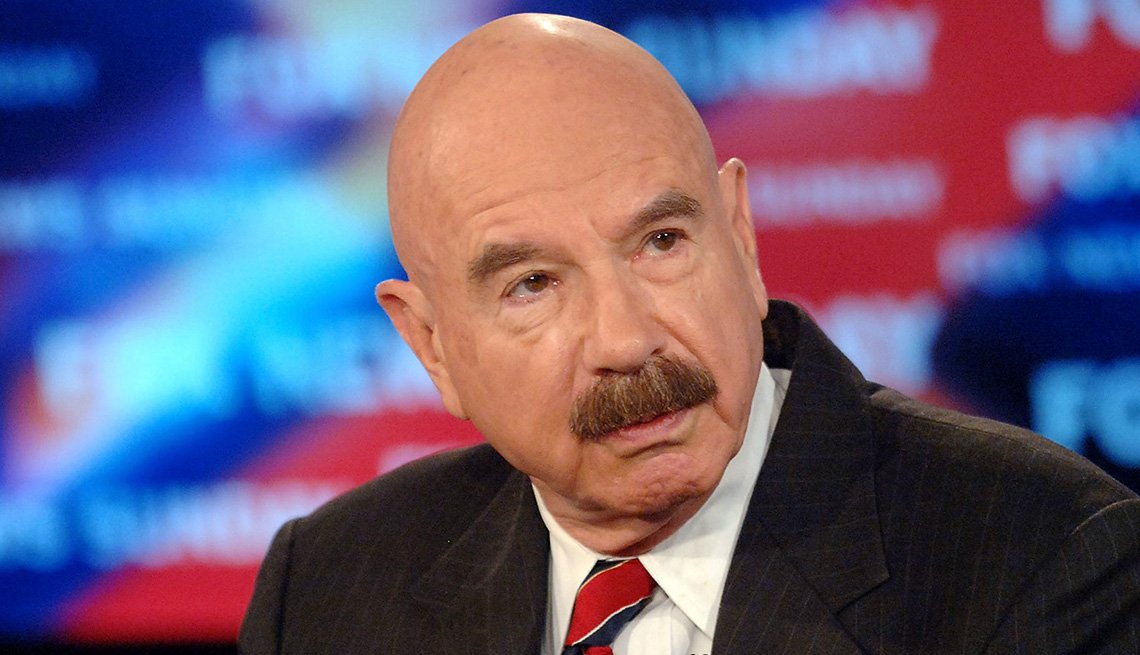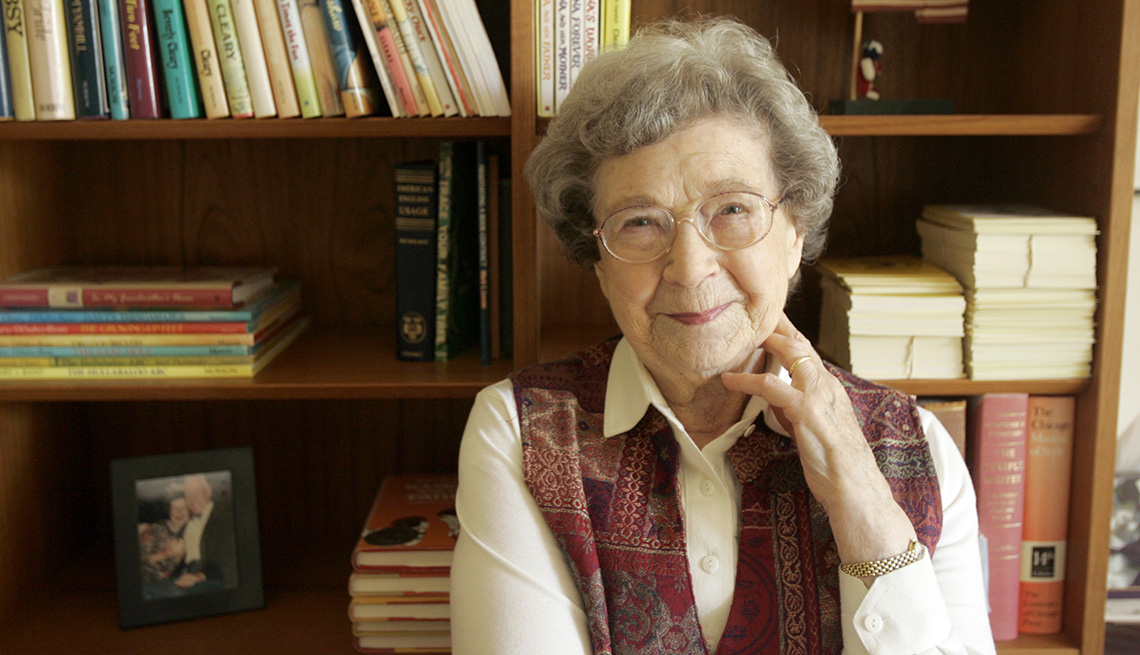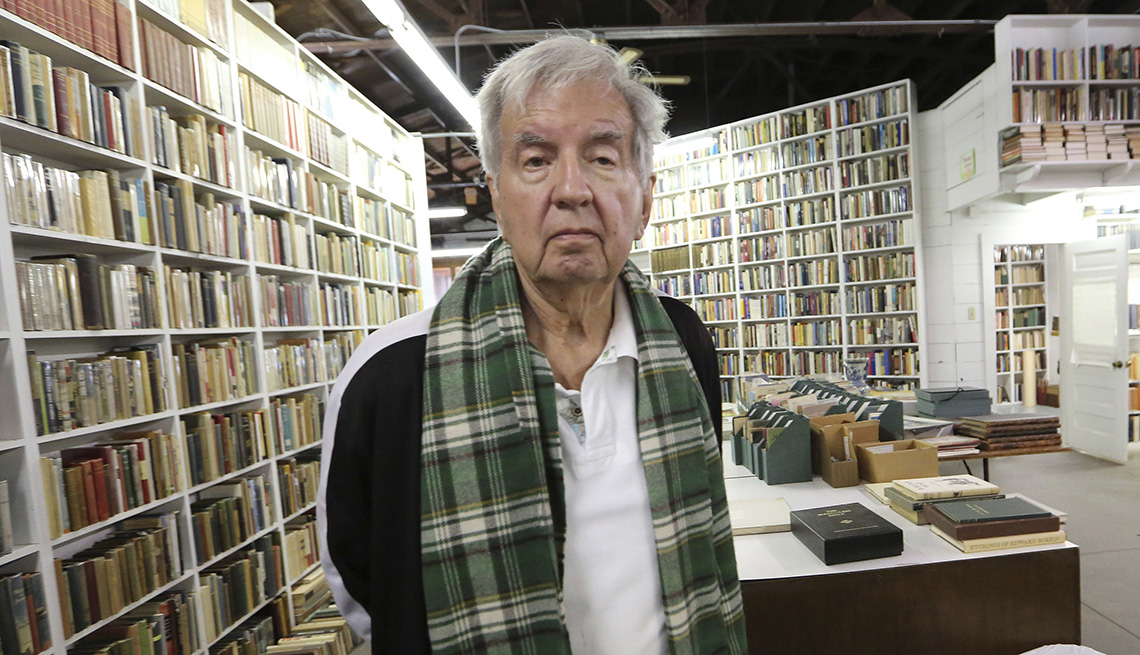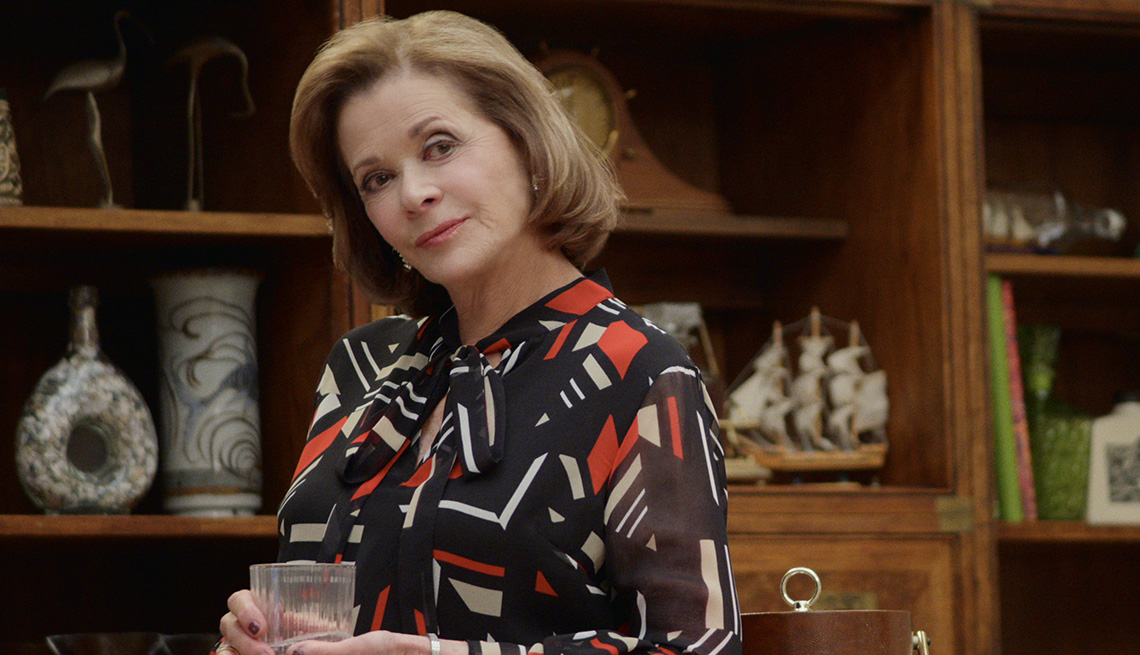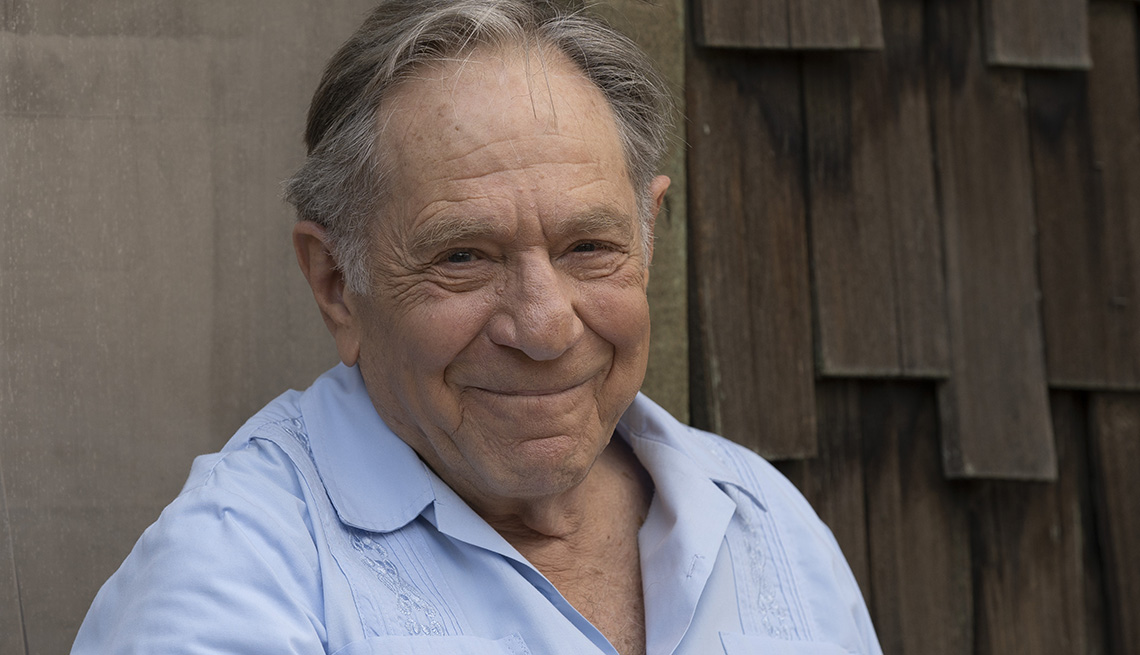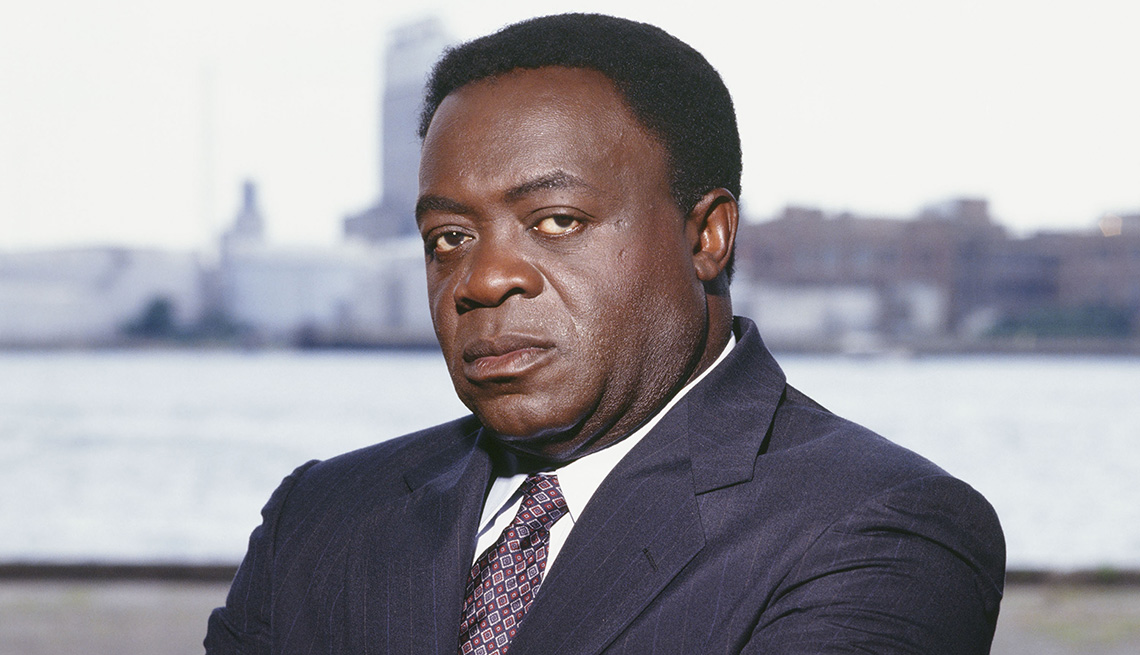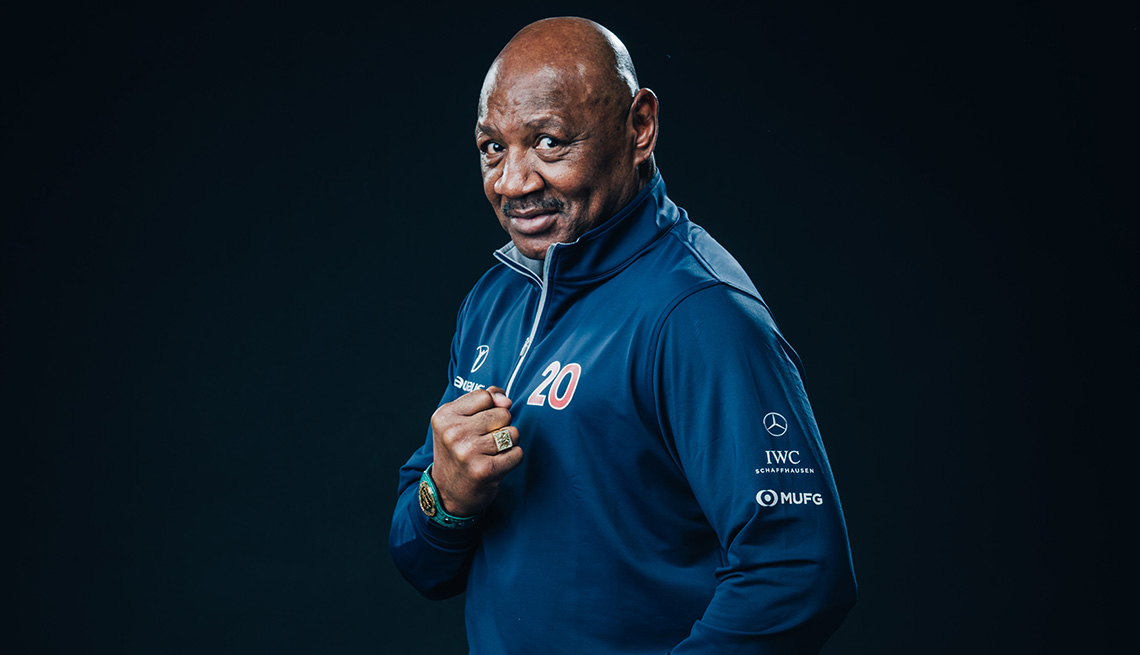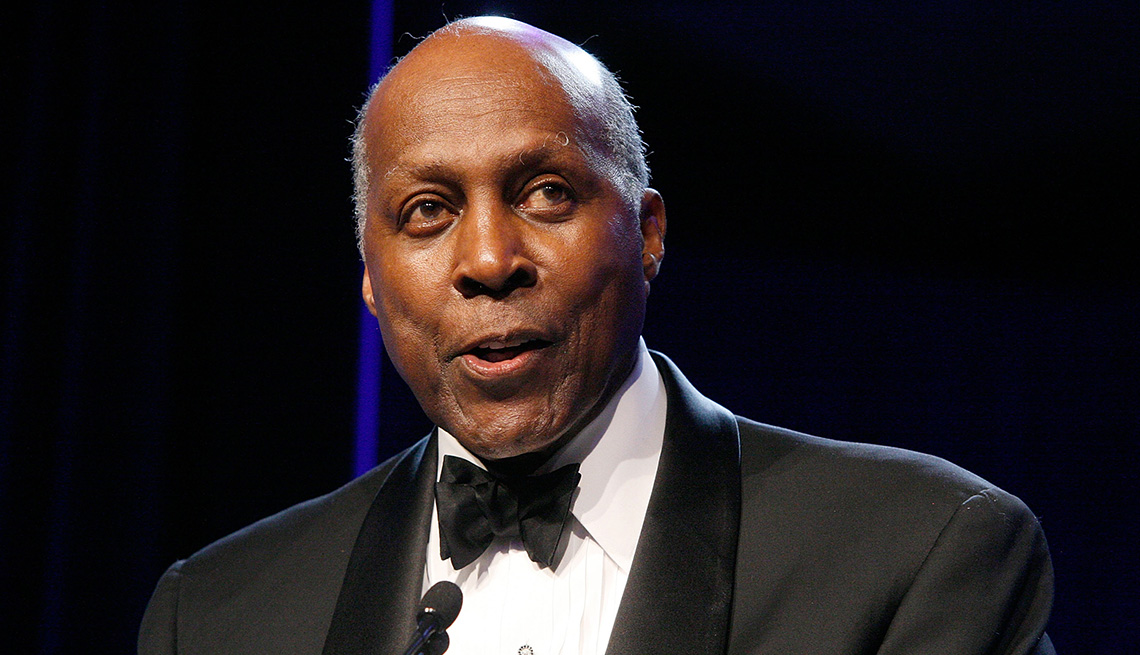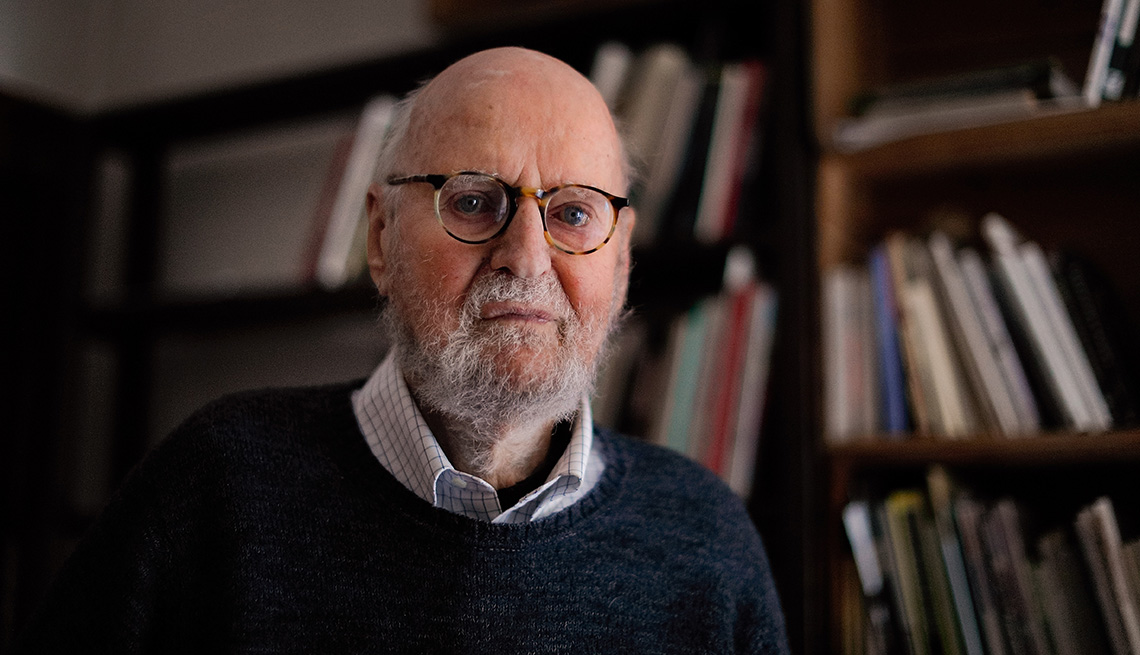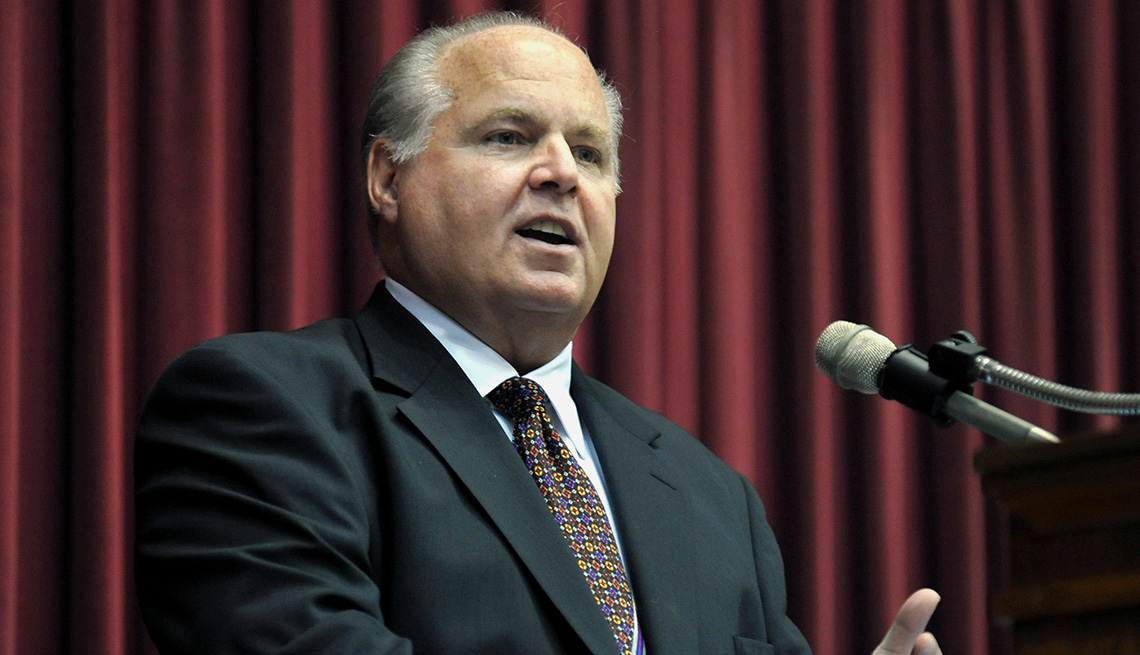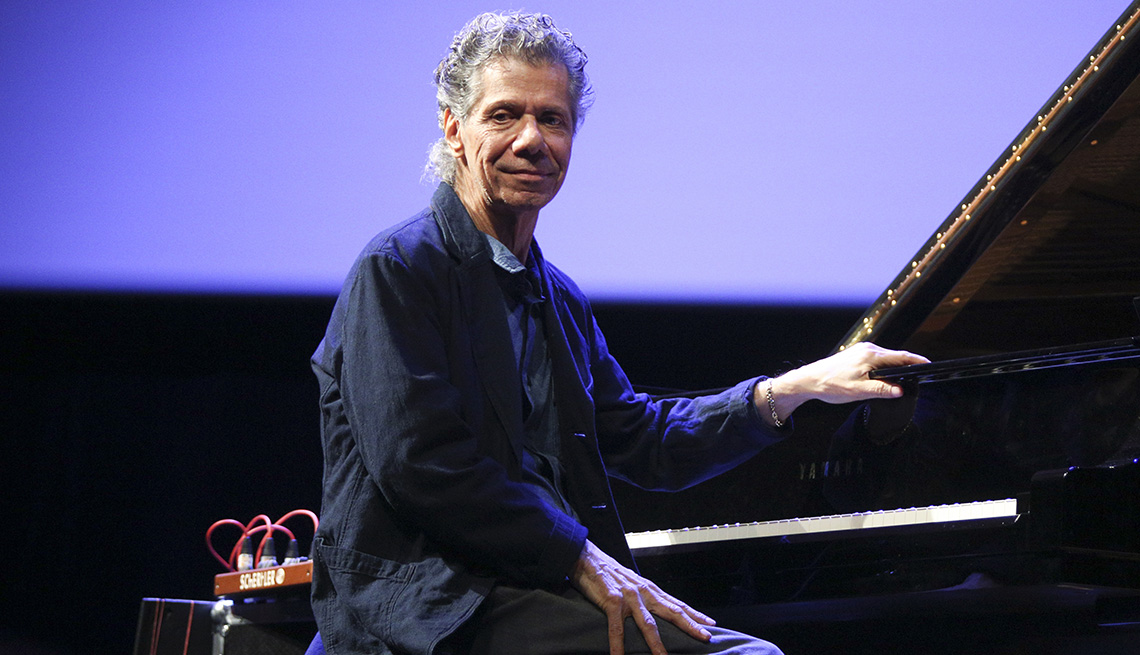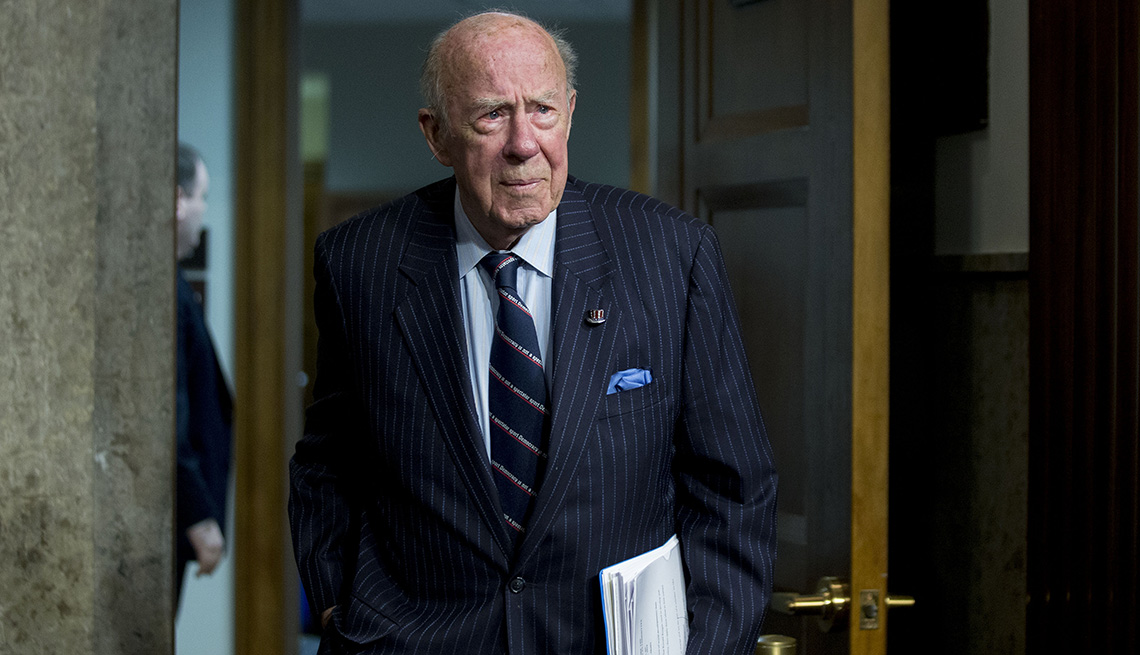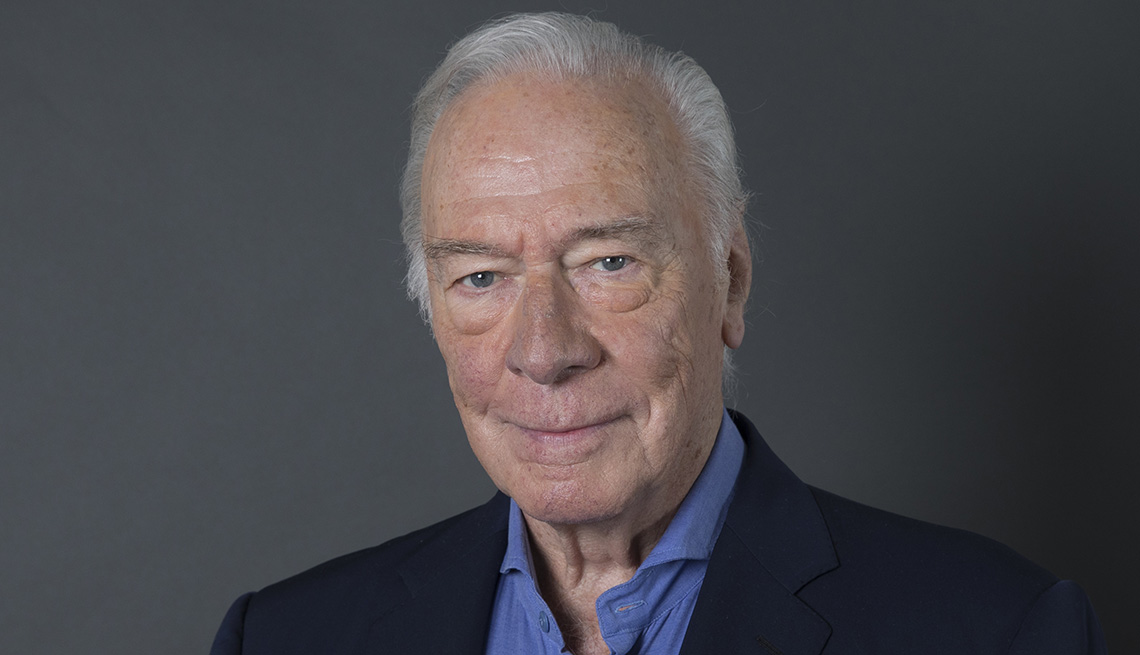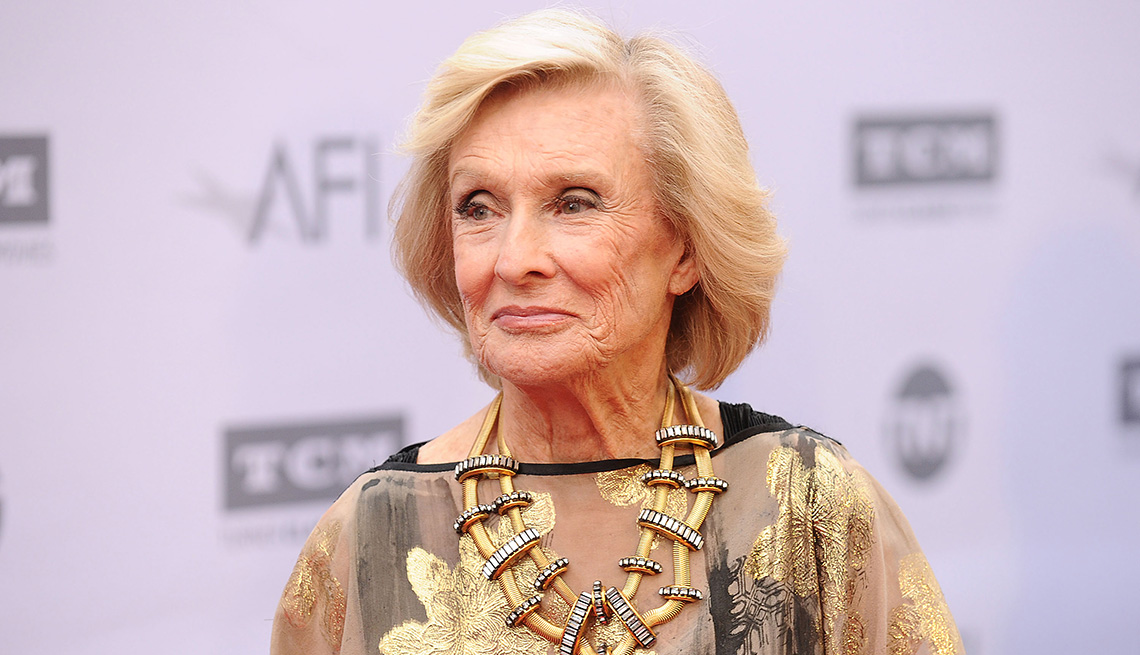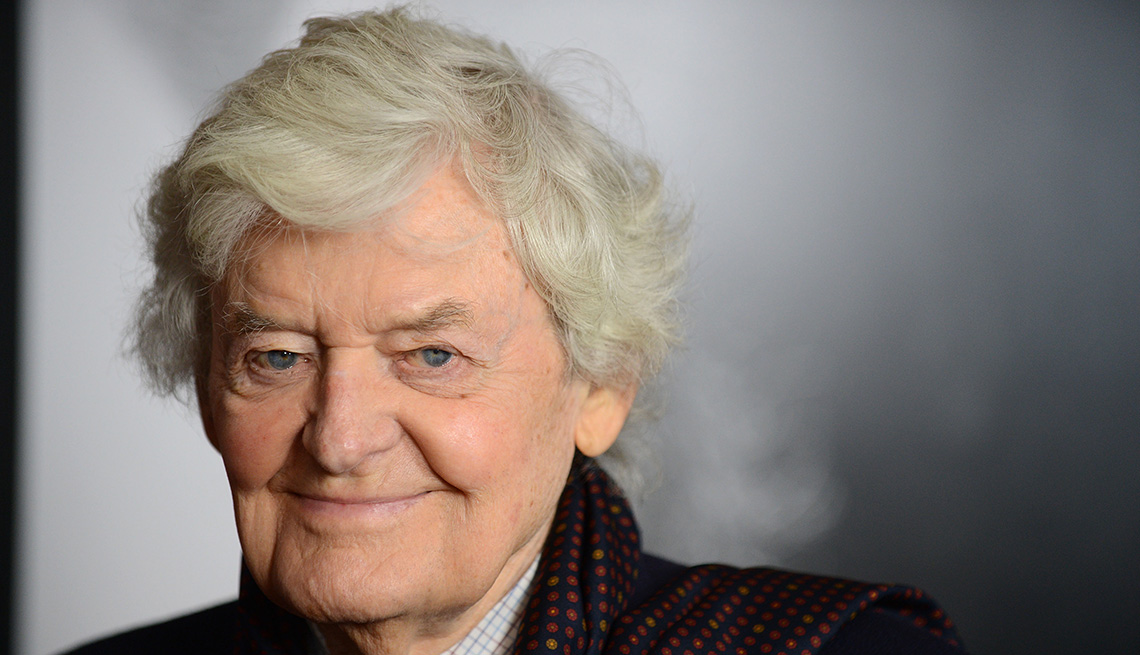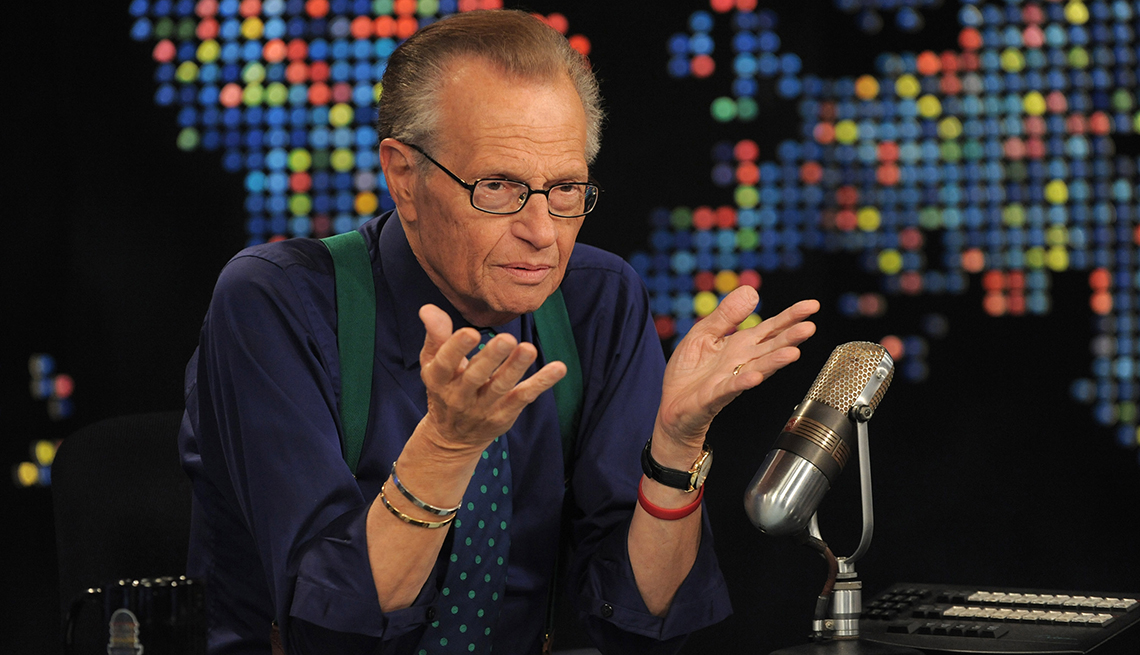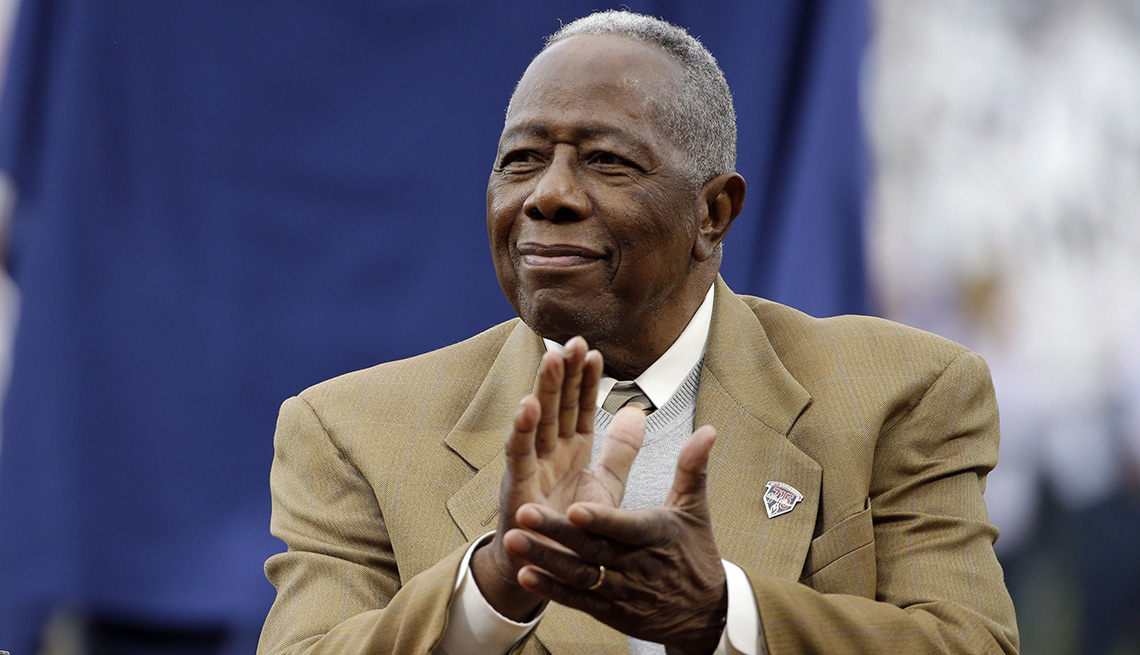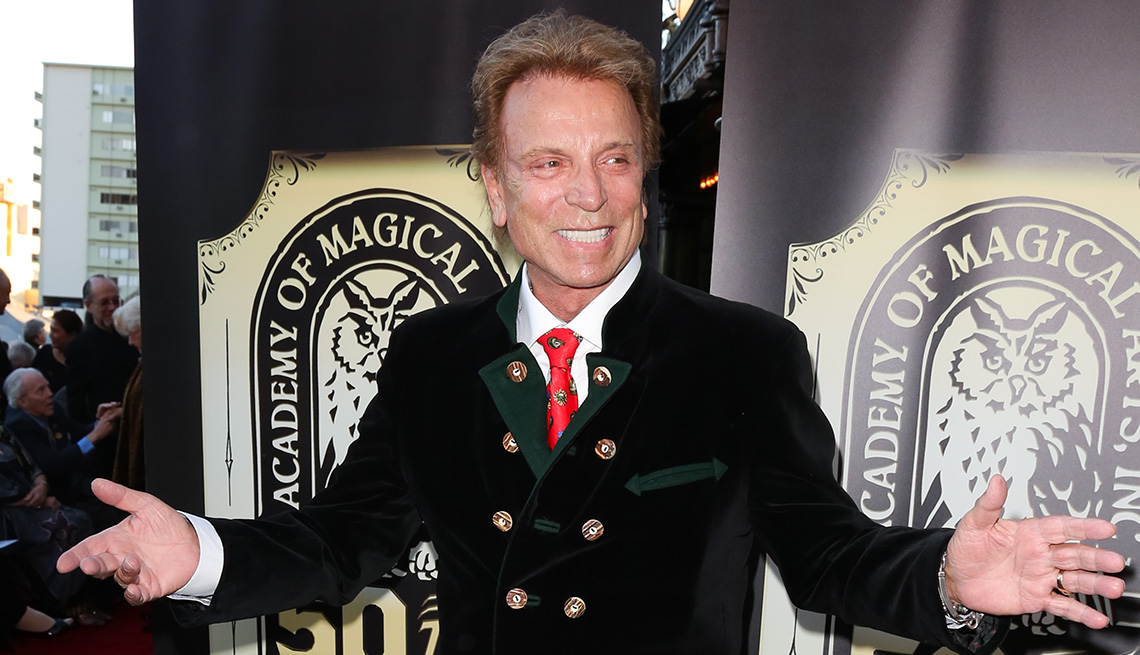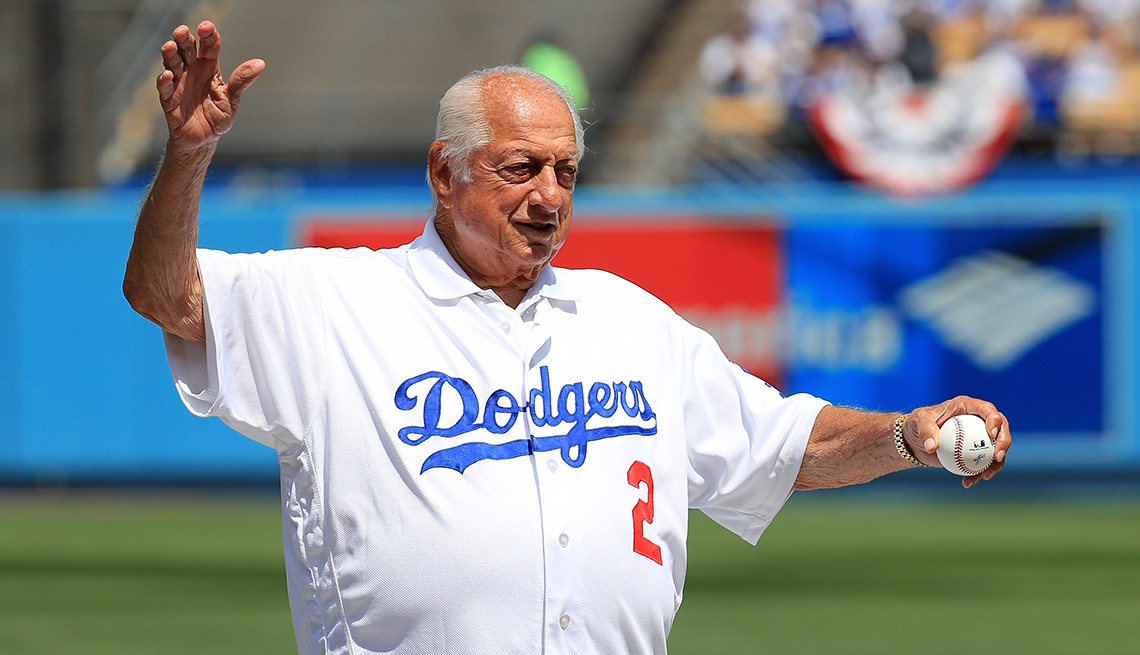Famous Celebrities We’ve Lost in 2021
AARP, Updated December 31, 2021
- |
- Photos
-
- 1 of
PHOTO BY: Vincent Sandoval/WireImage
Betty White, actress, 99
(Jan. 17, 1922 — Dec. 31, 2021) She won an Emmy at 30 for her sitcom Life With Elizabeth, two more as naughty Happy Homemaker Sue Ann Nivens on The Mary Tyler Moore Show in the 1970s, and further fame as Rose Nylund on The Golden Girls in the 1980s. But her career really soared after age 87, when a hit Super Bowl commercial sparked a Facebook campaign to have her host Saturday Night Live. Her star ascended continuously, and she earned her 17th Emmy nomination on Hot in Cleveland in 2011, plus four more. Arguably the most beloved of older stars, she appeared on AARP The Magazine’s cover twice and did a hilarious AARP ad campaign to encourage others to get over growing older and embrace their age, laugh lines and all. “Being an AARP member doesn’t make you old,” she said. Asked why she lived so long, she said, “Hot dogs are the reason.” She also said, “Kindness and consideration of somebody besides yourself — I think that keeps you feeling young. I really do.” She liked to quote what her mother said upon hearing of someone’s death: “Now they know the secret."
-
- 2 of
PHOTO BY: ZUMA / Alamy Stock Photo
John Madden, football coach, broadcaster
(April 10, 1936 — Dec. 28, 2021) If you didn't watch pro football Hall of Famer John Madden coach the Oakland Raiders to a Super Bowl XI victory against the Minnesota Vikings, you may have listened to him broadcast NFL games or played the video game that bears his name. Madden was the youngest coach in league history when he was hired to lead the Raiders in 1969. He retired from coaching at age 42 in 1979, and over the next 30 years he revolutionized sports broadcasting. His booming voice and animated commentary on the games he broadcast for CBS, NBC, ABC and Fox earned him 16 Sports Emmy Awards, including 15 for top analyst. His rumpled look and insatiable penchant for detail made him a teacher of the game, using his famous Telestrator to explain plays and strategy to his viewers. While an announcer he was also a frequent pitchman, parodying himself in commercials for Miller Lite, Ace Hardware and many others. "He was football," NFL Commissioner Roger Goodell said in announcing Madden's passing.
-
- 3 of
PHOTO BY: Abaca Press / Alamy Stock Photo
Harry Reid, former U.S. Senate Majority Leader
(Dec. 2, 1939 — Dec. 28, 2021) One of the longest-serving U.S. Senate majority leaders in history, Harry Reid never tired of talking about his roots in the small gold mining town of Searchlight, Nevada, or about the more than dozen middleweight boxing matches he fought while in college. But he saved his most consequential fighting for Congress' upper chamber, where he served for three decades, including seven years as the majority leader. Only two other senators have held that post longer. Former President Barak Obama said the combative and feisty Reid had "curmudgeonly charm." Reid was not the flashiest Democratic leader, but his political acumen was formidable. His greatest legislative achievement came in 2009, when he shepherded the landmark Affordable Care Act through the Senate. As majority leader during President George W. Bush's tenure, Reid also successfully helped block the president's effort to partially privatize Social Security. Before winning his Senate seat in 1986, Reid was a trial lawyer, a lieutenant governor of Nevada and a two-term member of the U.S House of Representatives.
-
- 4 of
PHOTO BY: RODGER BOSCH/AFP via Getty Images
Desmond Tutu, South African Anglican bishop, 90
(Oct. 7, 1931 — Dec. 26, 2021) A Nobel Peace Prize–winning force for social justice, Desmond Tutu worked passionately to end the scourge of apartheid and fought for racial equality and LGBTQ rights. Tutu was the first Black bishop of Johannesburg, and as the Anglican Archbishop of Cape Town, he was known as the conscience of South Africa to his nation and the world. When Nelson Mandela became the country's first Black president, he appointed Tutu as chairman of the new Truth and Reconciliation Commission, which shone a light on the abuses of apartheid. As he listened to testimony about the unspeakable torture, killings and other atrocities of apartheid, Tutu openly wept. Yet he also preached forgiveness, saying without it "there is no future." In addition, Tutu was one of the most prominent leaders to advocate for LGBTQ rights, despite opposition from his own Anglican church. He said his Christian faith demanded that he speak up for the underdog and the oppressed, and called his native South Africa the "rainbow nation." Asked once how he wanted to be remembered, Tutu replied: “He loved. He laughed. He cried. He was forgiven. He forgave. Greatly privileged.”
-
- 5 of
PHOTO BY: Matt Winkelmeyer/Getty Images
Jean-Marc Vallée, director, 58
(March 9, 1963 — Dec. 26, 2021) A Montreal chimney sweep turned director, Vallée was renowned for taking huge risks that paid off. After his first breakthrough, Downton Abbey creator Julian Fellowes’ 2009 The Young Victoria, Vallée won fame with 2013’s Dallas Buyers Club, a script about a heroic early AIDS patient/activist that was rejected 87 times. Lit with candles instead of pricey lights and filmed on a tiny $4.75 million budget, it earned Oscars for stars Jared Leto and Matthew McConaughey, who said Vallée had “a very anarchic spirit.” His 2017 miniseries Big Little Lies won eight Emmys and a Directors Guild Award, and his 2018 Sharp Objects got eight Emmy nominations. He avoided rehearsals and shot lists, favored handheld cameras and single takes and made smash hits with A-list stars that played like real life. He said in 2016, “Dreams can come true. I’m living the dream right now.”
-
- 6 of
PHOTO BY: Michel Delsol/Getty Images
Grace Mirabella, editor, 92
(June 10, 1929 — Dec. 23, 2021) As the editor of Vogue magazine, the bible of fashion, from 1971 to 1988, Marie Grace Mirabella made it smarter and tripled its circulation. She changed it from a magazine for the beautiful people of the giddy, Day-Glo 1960s to a more beige-favoring guide for the modern woman, who had to dress for increasingly high-powered jobs. The daughter of Italian immigrants who lost their fortune in the 1929 crash, the New Jersey native was a Skidmore College economics major who championed sensible fashion, working women and American designers. When culture got giddy again in the 1980s, Vogue abruptly fired her in 1988, and she launched Mirabella magazine the following year. Less profitable than Vogue, it won respect as a publication for the woman who “reads and thinks.”
-
- 7 of
PHOTO BY: Jemal Countess/Getty Images
Joan Didion, writer, 87
(Dec. 5, 1934 — Dec. 23, 2021) One of the most esteemed and influential writers of the 20th century, Didion captured all the tumultuousness of American culture (and her own mind) with a distinctive style — sharply observant and rich with evocative detail, judiciously used. Her first essay collection, Slouching Towards Bethlehem (1968), focused on chaotic 1960s California, its title essay describing her surreal immersion in the drug-filled world of San Francisco’s hippies. Most memorable was a mother who regularly gave her 5-year-old daughter acid. However, one of her most moving and brilliant works is her 2007 memoir, The Year of Magical Thinking. Winner of the National Book Award, it describes her unmooring after the sudden 2003 death of her husband of 40 years, the writer John Gregory Dunne, while their daughter was in a coma with septic shock. It’s a visceral, poetic portrait of grieving like no other. As Parul Sehgal noted so poignantly in The New York Times upon Didion's passing, "This writer could not tire of telling her reader, telling herself, that luck runs out — perhaps because she never really believed it, not when there was more life to be lived.”
-
- 8 of
PHOTO BY: Kevin Winter/Getty Images for LARAS
Vicente Fernández, singer, 81
(Feb. 17, 1940 — Dec. 12, 2021) The son of a Guadalajara rancher, “El Chente” started singing at weddings and restaurants at 19 and won fame in 1966. His version of the classic song “Volver, Volver” made him the undisputed king of ranchera music, in Mexico and abroad, and he sold over 65 million albums and appeared in over 40 films, sometimes singing astride a horse. He bid farewell to the stage in 2016 with a massive free concert in Mexico’s largest arena. After a fall last August, he was diagnosed with Guillain-Barré syndrome and hospitalized until his death. He is survived by four children, including Latin Grammy winner Alejandro Fernández. Says his friend, producer Emilio Estefan, “He leaves behind a unique and wonderful musical treasure to the world.”
-
- 9 of
PHOTO BY: Joe Scarnici/Getty Images for Entertainment Weekly
Anne Rice, novelist, 80
(Oct. 4, 1941 — Dec. 11, 2021) A beloved, best-selling gothic novelist, Rice was most famous for her portrayals of vampires as complex, misunderstood and rather erotic, romantic creatures, beginning with her seminal 1976 novel Interview With the Vampire. Its main character, Lestat, was inspired by the 1936 horror film Dracula’s Daughter, which, she said in an interview with The Daily Beast, presented vampires as “elegant, tragic, sensitive people.” It became part of a best-selling series of novels known as The Vampire Chronicles. Her many books, which have sold more than 150 million copies, also included fiction featuring Jesus (she was raised Catholic but later distanced herself from organized religion) and erotic novels under the names Anne Rampling and A.N. Roquelaure. Upon Rice’s passing, due to complications from a stroke, her son Christopher Rice, 43, posted a statement on Facebook announcing that next year there will be a public celebration of her life in New Orleans (where she grew up and spent part of her adulthood), inviting “her friends, readers and fans who brought her such joy and inspiration throughout her life.” Rice’s final novel, Ramses the Damned: The Reign of Osiris, cowritten with Christopher, will be published in February 2022.
-
- 10 of
PHOTO BY: Chris Pizzello/Invision/AP
Michael Nesmith, musician and entrepreneur, 78
(Dec. 30, 1942 — Dec. 10, 2021) The wool-hat-wearing TV cutup and serious artist was the best musician in the Monkees, whose 1966-68 TV show propelled three No. 1 singles and four No. 1 albums. In 1967, they outsold the Beatles and the Rolling Stones put together. When he met John Lennon during the 1967 Sgt. Pepper sessions, he played him Johnny Mercer’s “I Remember You,” whose chord change Lennon used in “Being for the Benefit of Mr. Kite!” When Monkees producers rejected his tune "Different Drum," Nesmith gave it to Linda Ronstadt, helping launch her career. His First National Band pioneered the early-'70s country-rock sound, but broke up just before the Eagles' similar music topped the charts, breaking his heart. His mother, a secretary tired of retyping pages, made $48 million by inventing Liquid Paper, and left him a fortune he invested in a multimedia company. His Elephant Parts won the first music-video Grammy, he created a prototype of MTV and he produced the 1984 cult film Repo Man. He died 26 days after his farewell concert with fellow Monkee Mickey Dolenz.
-
- 11 of
PHOTO BY: Doug McSchooler/AP Photo
Al Unser, professional race car champion, 82
(May 29, 1939 — Dec. 9, 2021) A four-time winner of the Indianapolis 500, Al Unser was part of a racing family. His brother, Bobby, won the same race three times and his son, Al Unser Jr., won it twice. He was among the top drivers of the 1970s, becoming so well-known at one point that a toy company sponsored his distinctive "Johnny Lightning Special" race car. His best-known Indy victory, though, came years later in 1987, when a 47-year-old Unser became the historic race's oldest winner. He was a late addition to Roger Penske's team that year when another driver was injured in a practice run, and won in a backup car that had been on display at a Pennsylvania hotel only a few weeks earlier. "Some days the race track smiles on you and some days, you got it the other way," Unser said last July.
-
- 12 of
PHOTO BY: Wally McNamee/CORBIS/Corbis via Getty Images
Robert J. Dole, senator, World War II hero, 98
(July 22, 1923 — Dec. 5, 2021) After nearly dying on the World War II battlefield, former U.S. Sen. Robert J. Dole lived a life of service that was marked by three runs for the presidency and 27 years as the senator from Kansas, including more than a decade as the Senate Republican leader. Before being elected senator, he served in the U.S. House of Representatives from 1961 to 1969. Dole was known for his sarcastic wit, as well as his ability to put together bipartisan coalitions to help push such priorities as getting the Americans With Disabilities Act passed and making Martin Luther King Jr. Day a federal holiday. He was also the driving force behind the creation of the World War II Memorial on the National Mall in Washington, D.C. After failing to receive his party's presidential nomination in 1980 and 1988, Dole was defeated by Democrat Bill Clinton in the 1996 presidential election. Three days before he was inaugurated, Clinton awarded his rival the Presidential Medal of Freedom, and two decades later, in 2018, Dole received the Congressional Gold Medal. Dole was devastatingly injured less than three weeks before World War II ended in Europe. He spent 39 months in military hospitals and never regained the use of his right arm.
-
- 13 of
PHOTO BY: Augusta National via Getty Images
Lee Elder, golfer, 87
(July 14, 1934 — Nov. 28, 2021) Orphaned at 9 and then a 10th-grade dropout, Elder broke into golf the only way a Black man could in a then whites-only sport: as a caddy, sometimes for the white gambler and golfer Alvin “Titanic” Thompson, who would bet people his caddy could beat the two best players on the course. The bets earned Elder thousands, with which he paid $10,000 to join the 1967 PGA tour. He tied Jack Nicklaus in 1968 after 72 holes, then lost — but it made his name. He won four PGA tours and eight tours for players over 50, and earned over $2.6 million. The first Black man to play in the Masters tournament, he blazed a trail for Tiger Woods and wept for joy upon seeing Woods become the Masters champ in 1997. Chosen to open the Masters last April, alongside Nicklaus and Gary Player, he earned a standing ovation and said: “It’s a great honor.” Noted Nicklaus: “It was long overdue.”
-
- 14 of
PHOTO BY: Tim P. Whitby/Getty Images
Stephen Sondheim, composer, 91
(March 22, 1930 — Nov. 26, 2021) He started out as the teenage protégé of composer Oscar Hammerstein II, who later advised him to swallow his pride and write the lyrics for West Side Story and Gypsy even though others wrote the music. Sondheim went on to transform American musicals as Hammerstein had, but in a more verbally ingenious, acerbically unsentimental and restlessly inventive way. “I have always conscientiously tried not to do the same thing twice,” he said. “If you’re broken-field running, they can’t hit you with so many tomatoes.” Instead of tomatoes, he got nine Tony Awards, a Pulitzer Prize, an Oscar and eight Grammys for groundbreaking work as diversely innovative as Company, Sweeney Todd and Sunday in the Park With George, and his hit “Send in the Clowns” was recorded over 500 times. He joined the pantheon of writer-composers, along with Noel Coward and Cole Porter. “He was passionate, opinionated, uningratiating, sharp as a knife,” said critic Sam Mendes. Schooled in the classics — he adapted Plautus into A Funny Thing Happened on the Way to the Forum with Zero Mostel and Aristophanes’ The Frogs at the Yale gym pool, starring young Meryl Streep and Sigourney Weaver — he became a classic who never went out of style.
-
- 15 of
PHOTO BY: Scott J. Ferrell/Congressional Quarterly/Getty Images
Max Cleland, U.S. senator, Veterans Administration chief, 79
(Aug. 24, 1942 — Nov. 9, 2021) As a decorated Army captain, Max Cleland lost both his legs and right arm to a grenade accident during the Vietnam War. Cleland had volunteered to serve in Vietnam, following in the footsteps of his father, who had joined the Navy after the Japanese attacked Pearl Harbor. Cleland went on to become a passionate advocate for veterans and their families. At age 28, the Democrat became the youngest-ever Georgia state senator. A friend of President Jimmy Carter, Cleland served as his director of the Veterans Administration (now the Department of Veterans Affairs). It was during Cleland's tenure that the VA began, for the first time, to recognize post-traumatic stress disorder as a legitimate medical condition. After Carter lost his reelection fight, Cleland successfully ran for the U.S. Senate, serving one term. Probably most notable about his time in the chamber was his vote for the war in Iraq, which he publicly admitted he regretted after leaving office. After being defeated for a second term, Cleland served as a member of the 9/11 Commission and then as secretary of the American Battle Monuments Commission, which oversees military cemeteries and memorials abroad.
-
- 16 of
PHOTO BY: Paul Warner/WireImage
Dean Stockwell, actor, 85
(Mar. 5, 1936 — Nov. 7, 2021) The son of the Disney actor who voiced Snow White’s Prince Charming, he made his Broadway debut at 6 and almost 20 movies by 15, including The Boy With the Green Hair and Gentleman's Agreement as Gregory Peck's son, earning a Golden Globe at 11. He forsook acting for the '60s hippie scene, writing the screenplay that inspired his friend Neil Young’s After the Gold Rush, then earned Emmy nominations in TV’s Quantum Leap, an Oscar nomination as the gangster Tony "The Tiger" Russo in Married to the Mob, and art house glory in David Lynch’s Dune and Blue Velvet, Wim Wenders' Paris, Texas, and Robert Altman's The Player. Said his Quantum Leap costar Scott Bakula, “He used to announce his presence on the sound stage with a bellowed, ‘The fun starts now!’ Truer words were never spoken.”
-
- 17 of
PHOTO BY: Chris Carlson/AP Photo
Mort Sahl, satirist, 94
(May 11, 1927 — Oct. 26, 2021) Skewering 1950s complacency with scathing wit, Sahl made the first stand-up comedy album, hosted the first Grammy Awards and the Oscars, wrote jokes for JFK, starred in films and series, and became a talk-show mainstay. His news-based satire “yanked comedy out of vaudeville,” said Harry Shearer, inspiring the careers of George Carlin and Woody Allen, who said, “He made the country listen to jokes that required them to think.” Time called him “Will Rogers with fangs.” He was close with Reagan despite his quip, “Washington couldn’t tell a lie, Nixon couldn’t tell the truth, and Reagan couldn’t tell the difference.” A friend of Robin Williams, Sahl live-streamed his weekly comedy show at a theater near their Mill Valley, California homes into his 90s.
-
- 18 of
PHOTO BY: Paul Morigi/Getty Images for Capital Concerts
Colin Powell, secretary of state and general, 84
(April 5, 1937 — Oct. 18, 2021) The son of Jamaican immigrants in the South Bronx, Powell went to college at 16, became a four-star general, the youngest chair of the Joint Chiefs of Staff at 52, and the first Black secretary of state. George W. Bush said, “It’s a great day when a son of the South Bronx succeeds to the office first held by Thomas Jefferson.” Powell led the U.S. military to victory in the 1991 Gulf War and oversaw 28 crises. He did not run for president himself after Alma, his wife of 59 years, opposed the move. Humble, kind, with a quick sense of humor, he was a Republican who valued common sense and fairness over party, and won respect across the aisle. Democrat Stacey Abrams said Powell “led with integrity, admitted fallibility and defended democracy.”
-
- 19 of
PHOTO BY: Michael Tran/Getty Images
Willie Garson, actor, 57
(Feb. 20, 1964 — Sept. 21, 2021) Born William Garson Paszamant, he started studying at the Actors Institute in New York at age 13, then earned degrees from Wesleyan University and Yale School of Drama. Garson landed guest roles on a dozen iconic shows, including Cheers, The X-Files and L.A. Law. Best known as Stanford Blatch, the wry confidant of Sarah Jessica Parker’s Carrie Bradshaw, he starred in Sex and the City and its spin-off movies, and was scheduled to be in the forthcoming reboot And Just Like That ..." He also appeared in Groundhog Day, Being John Malkovich and Soapdish, as well as shows and films by Steven Spielberg, Spike Jonze, Michael Bay and Mike Nichols. His nickname at charity poker tournaments was “Evil Willie.” Said SATC costar Cynthia Nixon: "He was endlessly funny on-screen and in real life. He was a source of light, friendship and show business lore.”
-
- 20 of
PHOTO BY: Andrew Toth/FilmMagic
Jane Powell, actress, 92
(April 1, 1929 — Sept. 16, 2021) An eternally fresh-faced soprano who was among the last survivors of Hollywood’s Golden Age, Powell started as a Portland, Oregon, radio star at age 5, sold World War II bonds as the Oregon Victory Girl and landed an MGM contract in her early teens without a screen test. She replaced Judy Garland in 1951’s Royal Wedding, singing “How Could You Believe Me When I Said I Love You When You Know I’ve Been a Liar All My Life?” with Fred Astaire. Her fame peaked in 1954’s Oregon-set musical smash Seven Brides for Seven Brothers. When movie musicals became passe, she took to the stage, replacing Debbie Reynolds in Irene on Broadway at 45. At 59, she interviewed Dick Moore for her book about other child stars, married him and died in the home they shared.
-
- 21 of
PHOTO BY: Rodrigo Varela/Getty Images
Michael K. Williams, actor, 54
(Nov. 22, 1966 — Sept. 6, 2021) Williams’ career as a dancer for Madonna and George Michael ended at age 25, when his face was slashed in a barroom argument, leaving him with what he called “a buck-fifty down my face” — a scar requiring 150 stitches. His new look won him small parts in Martin Scorsese’s Bringing Out the Dead and The Sopranos, and the breakout role of Omar, the gangsters’ nemesis in The Wire, Barack Obama’s favorite character on his favorite show. Williams earned immense respect (plus five Emmy nominations) in hits like Boardwalk Empire, Lovecraft Country, 12 Years a Slave and The Night Of. His childhood friend, Darrel Wilds told The New York Times, “Mike is like the prophet of the projects. He’s representing the people of this neighborhood to the world.”
-
- 22 of
PHOTO BY: Heidi Gutman/NBCU Photo Bank/NBCUniversal via Getty Images via Getty Images
Willard Scott, weatherman, 87
(March 7, 1934 — Sept. 4, 2021) An American University religion and philosophy major who nearly became a Christian minister, Scott started out playing Bozo the Clown and Ronald McDonald, a character he created, though a slimmer actor was cast for the role nationally. As weatherman on the NBC Today show, he helped propel it to No. 1 in ratings with his gap-toothed grin, affable manner, birthday greetings to centenarians and outlandish costumes: He dressed as banana-clad Carmen Miranda, Boy George, Cupid, and a groundhog on Groundhog Day. He had a lucrative second career as a product pitchman and event host. “I just love people,” he said. “I’m like a dog. You just open the door, and I go, ‘rrrr, rrrr,’ and then I lick everybody’s face. If you watch, you’ll see that I am trying to weave a web of love.”
-
- 23 of
PHOTO BY: Michael Tullberg/Getty Images
Ed Asner, actor, 91
(Nov. 15, 1929 — Aug. 29, 2021) A Kansas City junkman’s son, Asner began as a highbrow University of Chicago alum on Broadway in The Threepenny Opera, shunning comedy until his big break as a news boss on The Mary Tyler Moore Show and the spin-off drama Lou Grant. No man has won more Primetime Emmys (five as Lou Grant, one for Roots and one for Rich Man, Poor Man), and his outwardly snarly, inwardly softhearted widower character helped Up win the Oscar for best animated film, as well as get nominated for best picture. A political activist and former Screen Actors Guild president, Asner recently played a guest role on Grace and Frankie and also had more than a dozen projects in production at the time of his death. Asked in his last interview what was left on his bucket list, he replied: “I haven’t climbed Suribachi! ... No, I think just ensuring that I’ve left enough for the family.”
-
- 24 of
PHOTO BY: Victoria Will/Invision/AP
Charlie Watts, drummer for the Rolling Stones, 80
(June 2, 1941 — Aug. 24, 2021) Despite his position as the rock-solid backbone of the Rolling Stones, Watts was a jazz lover first and foremost, and he gained enormous respect from his peers for his skill and subtlety. He played his first Stones show in 1963, just before the band began to grow into one of the most popular in the world. While other group members led tabloid-worthy lives, Watts rarely grabbed much of the spotlight. But he was his own force, equally comfortable with subtle swing stylings and the most straight-ahead rock ’n’ roll. Stones guitarist Keith Richards was a huge fan, calling Watts “the bed that I lie on musically” in his autobiography and often turning toward Watts on stage instead of facing the audience. Watts also was a famously natty dresser in the classic British gentleman’s style — a look that earned him profiles in fashion magazines. The Stones announced earlier this month that Watts would miss upcoming U.S. tour dates, citing his need to recover from an unspecified medical procedure.
-
- 25 of
PHOTO BY: Terry Wyatt/Getty Images
Don Everly, musician and early rock star, 84
(Feb. 1, 1937 — Aug. 21, 2021) Don Everly’s voice, along with that of his brother, Phil, set the standard for harmonizing rock ’n’ roll and influenced generations of musicians. One of the genre’s first star acts, the Everly Brothers had a string of hits in the 1950s and 1960s, including “Bye Bye Love,” “Wake Up Little Suzie” and “All I Have to Do Is Dream.” The Kentucky-born Everly’s parents also were singers, and the brothers first appeared on the family’s radio show in 1945. Their songs often had country influences, with the brothers making the charts in that genre as well; they were inducted into the Rock & Roll Hall of Fame in 1986 and the Country Music Hall of Fame in 2001. The brothers broke up the act in 1973 amid feuding and reunited in 1983; Phil Everly died in 2014. “The Everly Brothers are integral to the fabric of American music,” one of their contemporaries, musician Jerry Lee Lewis, said in a statement.
-
- 26 of
PHOTO BY: Nati Harnik/AP Photo
Bobby Bowden, college football coach, 91
(Nov. 8, 1929 — Aug. 8, 2021) Bedridden by rheumatic fever as a teen, Bowden listened avidly to football games and World War II news on the radio. As a coach, he applied Gen. Rommel’s tricky tactics to football, transforming the Florida State Seminoles from obscurity to national fame. In 40 years, his teams won 377 games, making him the second-winningest coach in college football history. His religious faith and inspired coaching won him the nickname “Saint Bobby.” His advice to fans and players: “Don’t go to the grave with life unused.”
-
- 27 of
PHOTO BY: Michael Tran/FilmMagic
Markie Post, actress, 70
(Nov. 4, 1950 — Aug. 7, 2021) She broke into showbiz as a writer and producer for game shows like Family Feud, and after 26 small roles costarred from 1982 to 1985 as a bubbly bail bondswoman opposite Lee Majors in The Fall Guy. Best known as public defender Christine Sullivan on Night Court (1985-1992), she costarred with John Ritter in Hearts Afire and played Cameron Diaz’s mom in There’s Something About Mary. Battling cancer, she continued acting for almost four years — including costarring in The Kids Are Alright — calling her chemotherapy “my side job.”
-
- 28 of
PHOTO BY: Brian To/FilmMagic
Jane Withers, actress, 95
(Apr. 12, 1926 — Aug. 7, 2021) Impersonating Greta Garbo made her an Atlanta radio star at age 4, and impersonating a machine gun got her the part of Shirley Temple’s bratty nemesis (who demanded a gun for Christmas) in Bright Eyes when she was 8. A top 10 box-office star in 1937 and 1938, she retired at 21, but then returned in Giant in 1956, befriending its star James Dean (and washing his shirts). Sporting her own white overalls, Withers was the 103rd actress to audition to play ebullient Josephine the Plumber and went on to make Comet ads from 1963 to 1974, helping it to become the top-selling kitchen cleanser.
-
- 29 of
PHOTO BY: Andrew Harrer/Bloomberg via Getty Images
Richard Trumka, labor leader, 72
(July 24, 1949 — Aug. 5, 2021) A third-generation coal miner from Pennsylvania, Richard Trumka led the AFL-CIO, the most powerful American labor federation, which represents 12.5 million workers. Trumka rose the ranks of organized labor, starting as an attorney for the United Mine Workers of America and becoming, at 33, that union’s youngest president. He was elected president of the AFL-CIO in 2009, after serving as its secretary-treasurer. Trumka’s fights for workers’ rights went all the way to the White House — in both Democratic and Republican administrations, although he was most closely associated with the Democratic Party. It was Trumka’s role in the rewriting of the North American Free Trade Agreement during the Trump administration that was credited with getting enough Democrats on board to get that measure ratified. Commenting on Trumka’s death, President Joe Biden called the tough worker advocate a “close friend.”
-
- 30 of
PHOTO BY: Andrew Harrer/Bloomberg via Getty Images
Carl Levin, former U.S. senator, 87
(June 28, 1934 — July 29, 2021) Michgan’s longest-serving U.S. senator, Carl Levin was best known for his expertise on national security and his ability to work across the aisle during his six terms in office. For more than 30 years, Levin and his brother, Sander M. Levin, were fixtures in Washington, D.C., Carl Levin in the Senate and Sander Levin as a U.S. representative from the Detroit area. Levin, whose trademark was wearing his reading glasses perched on the end of his nose, played a key role in arguing against some of the most contentious international conflicts, including the invasion of Iraq in 2003 and increasing America’s presence in Afghanistan. Levin was either the chairman or ranking minority member of the Senate Armed Services Committee for much of his tenure. He was also an arms control advocate, fighting against President George W. Bush’s proposal for a ballistic missile defense system. When Levin retired in 2014 after 36 years of service, Sen. John McCain (R-Ariz.) praised him despite their often opposing views. “We all listen to him, and we listen closest to him on the occasions when we disagree with him,” McCain said.
-
- 31 of
PHOTO BY: Reed Saxon/AP Photo
Ron Popeil, infomercial TV pitchman, 86
(May 3, 1935 — July 28, 2021) An inventor and TV pitchman, Ron Popeil was, for decades, king of the late-night 30-minute infomercials, in which he would enthusiastically demonstrate the latest revolutionary product, like the Showtime Rotisserie and BBQ, that the viewer could purchase by a quick phone call while supplies last. In the late 1950s, Popeil first hit the small screen to hawk kitchen gadgets, invented by his father, Samuel, starting with the Chop-O-Matic – a vegetable chopper that he described as “the greatest kitchen invention.” He sold more than 2 million units. Popeil continued to sell other devices, created by either his father or himself, including the Veg-O-Matic, Pocket Fisherman and Mr. Microphone, which he peddled directly in TV commercials that followed a now-familiar pattern: a hyperbolic claim of the genius of the product, a price typically under $20, followed by a “But wait, there’s more!” inducement, and a warning that supplies are low, so “call now” to get the deal. In the 1980s, Popeil regained his claim to “Salesman of the Century” (the title of his autobiography) through 28-minute infomercials in which he showcased products like the Beef Jerky Machine, Giant Dehydrator and, most famously, the Showtime Rotisserie and BBQ – a product inspired by the popularity of rotisserie chicken sold at Costco. Popeil claimed to have sold more than $1 billion worth of his home version, which he famously pitched as being so easy to use that you could simply “Set it and forget it.”
-
- 32 of
PHOTO BY: Gaelle Beri/Redferns
Dusty Hill, musician, 72
(May 19, 1949 — July 27, 2021) At the dawn of MTV, Hill (whose given name was Joseph Michael) and his band, ZZ Top, were the most unlikely of iconic breakout stars, with 20-inch beards, sunglasses and guitars they spun in circles with deadpan surrealism. His thunderous, distorted bass drove hits including “Gimme All Your Lovin’ ” and “Sharp Dressed Man,” and his group sold 50 million albums. They earned three Grammy nominations, including a best music film nom this year for That Little Ol' Band From Texas. Hill, a Dallas native, said his guitar tone was “like farting in a trash can … it’s raw, but you’ve got to have the tone in there.”
-
- 33 of
PHOTO BY: Bill Clark/CQ Roll Call
Mike Enzi, former U.S. senator, 77
(Feb. 1, 1944 — July 26, 2021) Michael Enzi was lured into politics by the U.S. senator from Wyoming he eventually succeeded — Alan K. Simpson. Trained as an accountant, he heeded Simpson’s advice and became mayor of the city of Gillette, then a member of the Wyoming legislature. He then served four terms in the U.S. Senate before retiring in January 2021. He chaired two committees — the Health, Education, Labor and Pensions (HELP) Committee from 2005 to 2007 and the Budget Committee from 2015 until he stepped down. He died as the result of injuries he suffered in a bicycle accident. A conservative Republican, Enzi had a reputation as a workhorse who avoided the limelight, refusing, for example, to appear on television talk shows and determined to work across the aisle with his fellow lawmakers. He had a particular friendship and working relationship with the late Sen. Edward Kennedy of Massachusetts. The pair worked together to convince legislators of both parties to reauthorize the Head Start program.
-
- 34 of
PHOTO BY: Rogelio V. Solis/AP Photo
Bob Moses, civil rights leader, 86
(Jan. 23, 1935 — July 25, 2021) Bob Moses never stopped being an activist. He began in the 1960s in Mississippi, where he was jailed and repeatedly beaten for his efforts to register Black voters. But that wasn’t the onetime Bronx prep school teacher’s only battle. After being denied conscientious objector status during the Vietnam War, Moses exiled himself to Canada, then moved to Africa as a teacher. The soft-spoken pacifist, vegetarian and yoga enthusiast returned to the United States in 1977 after being among the draft evaders granted amnesty by President Jimmy Carter. In the 1990s, Moses went back to Mississippi, this time to start the Algebra Project, his crusade to educate rural and inner-city students. He won a MacArthur Foundation “genius” grant that got the effort off the ground. Moses called math literacy a “civil right” and low achievement among minority students the “nation’s dirty secret.” Over the years, the project has helped more than 40,000 students in hundreds of schools throughout the U.S.
-
- 35 of
PHOTO BY: Bobby Bank/WireImage
Jackie Mason, comedian, 93
(June 9, 1928 — July 24, 2021) Born Yacov Moshe Maza, Mason was a rabbi, like his three brothers, father, grandpa and great-grandpa. But his synagogues rocked with laughter, and he switched to stand-up comedy at 31. Steve Allen put him on The Tonight Show, but a feud with Ed Sullivan and a historic Broadway flop tanked his career until his 1986 solo show, which won a Tony, an Emmy and a Grammy nomination. Stage hits and movie roles followed, along with a second Emmy for his voice role as The Simpsons’ Rabbi Hyman Krustofsky. His political commentary won fans and enemies, but mainly he was noted for jokes like, “My grandfather always said that I shouldn’t watch my money, that I should watch my health. So while I was watching my health, someone stole my money. It was my grandfather.”
-
- 36 of
PHOTO BY: Lorenzo Bevilaqua/Walt Disney Television via Getty Images
Donald Rumsfeld, former secretary of defense, 88
(July 9, 1932 — June 29, 2021) Among his many roles in government and business, Donald Rumsfeld was best known for his controversial six-year reign as President George W. Bush’s secretary of defense. Though he received praise for his stint as the architect of the U.S. military response to the Sept. 11, 2001, terrorist attacks, his handling of the Iraq war — especially in the wake of the Iraqi insurgency and controversy over the way prisoners were treated — eventually led to his downfall. His leadership of the Pentagon under Bush came almost 25 years after he held the same post under President Gerald Ford. Nicknamed Rummy in his youth, Rumsfeld became the youngest Republican member of the U.S. House of Representatives in 1963. He went on to become a strong supporter of civil rights and a critic of the Vietnam War. He worked in the Nixon administration and also served as Ford’s chief of staff. Rumsfeld also made his mark in business, especially in the development of such products as NutraSweet and high-definition television. He became a multimillionaire in the 1980s when he salvaged several failing businesses, including General Instrument and Gilead Sciences.
-
- 37 of
PHOTO BY: LEILA MACOR/AFP via Getty Images
Delia Fiallo, screenwriter, 96
(July 4, 1924 — June 29, 2021) A Havana philosophy and literature student who fled Fidel Castro’s Cuba in 1966 for Miami, Fiallo wrote Lucecita and scores of other telenovelas (Latin American TV soap operas, punchier and more concise than their U.S. counterparts), which were translated into languages from Czech to Japanese for millions of fans in over 100 countries. Telenovelas influenced American shows like Jane the Virgin. Described as a poet laureate of love, she was married to radio director Bernardo Pascual for 67 years, until he died in 2019, and had five children and 13 grandchildren.
-
- 38 of
PHOTO BY: Michael Ginsberg/NBCU Photo Bank
Ned Beatty, actor, 83
(July 6, 1937 — June 13, 2021) A professional singer and aspiring preacher at age 10 and a regional theater star for over a decade before his film career took off, Beatty gained fame at 35 in 1972’s Deliverance, his first movie. Versatile and vivid even in brief roles, he got an Oscar nomination for best supporting actor for his less-than-six-minute performance as a corporate villain in Network. His 165 screen roles include playing Lily Tomlin’s lawyer husband in Nashville, Lex Luthor’s oafish sidekick in Superman, a slick D.A. in All the President’s Men, Detective Bolander on TV’s Homicide, John Goodman’s dad on Roseanne and the tyrant teddy bear Lotso in Toy Story 3. Variety called him “the busiest actor in Hollywood.”
-
- 39 of
PHOTO BY: Steve Granitz/WireImage
Clarence Williams III, actor, 81
(Aug. 21, 1939 — June 4, 2021) Named for his famous jazzman grandfather, Williams won fame in 1964’s Slow Dance on the Killing Ground on Broadway, where he later starred opposite Maggie Smith in Tom Stoppard’s 1979 Night and Day. He became iconic as the coolest of the cool young undercover cops on TV’s 1968 The Mod Squad, and conquered typecasting in diverse roles, from Prince’s tough father who inspired “When Doves Cry” in Purple Rain to a drug lord in Dave Chappelle’s comedy Half Baked to the FBI agent who suspends Kyle MacLachlan in Twin Peaks, which costarred Mod Squad’s Peggy Lipton — who, like Williams, died of colon cancer. “Behind his shades and intimidating gaze,” said Lipton, “I saw him as a lionhearted king.” Said Lenny Kravitz, “He always performed with dynamic energy. Rest in power, king.”
-
- 40 of
PHOTO BY: Peter Kramer/NBC/NBC Newswire/NBCUniversal via Getty Images
Gavin MacLeod, actor, 90
(Feb. 28, 1931 — May 29, 2021) MacLeod may have set the Hollywood record for consecutive long-running TV hits, playing witty, sarcastic newswriter Murray Slaughter on The Mary Tyler Moore Show (1970–77) and chipper Capt. Merrill Stubing on The Love Boat (1977 to 1987). He auditioned to play Mary Tyler Moore’s gruff boss, Lou Grant (played by Ed Asner), and All in the Family patriarch Archie Bunker, but he felt he was better at portraying good-hearted characters. A native of Mount Kisco, New York, he overcame alcoholism and near-fatal depression. He also divorced and then remarried his second wife, Patti Steele, with whom he hosted a Christian marriage counseling radio show, Back on Course: A Ministry for Marriages. “My heart is broken,” Asner said. “He had one of the most amazing, fun blasts of a life of anybody I know,” his stepdaughter Stephanie Steele Zalin commented. “I don’t even think in his wildest dreams he dreamt of the life that he ended up having.”
-
- 41 of
PHOTO BY: Joe Marquette/Bloomberg via Getty Images
John W. Warner, former U.S. senator, 94
(Feb. 18, 1927 — May 24, 2021) A five-term Republican U.S. senator from Virginia who was steeped in military affairs and often worked with colleagues from both parties, Warner may be best known among Americans outside of the commonwealth for his six-year marriage to Elizabeth Taylor. Warner had met Taylor at the British Embassy while he was undersecretary of the Navy and became her sixth husband. They remained lifelong friends after they divorced. Warner was secretary of the Navy in the Nixon administration and, as one of a handful of World War II veterans in the Senate, a fierce defender of the military. He also cosponsored legislation that banned the torture of suspected terrorists and opposed military commission trials of terrorists at Guantanamo Bay. As head of the American Revolution Bicentennial Administration, Warner was instrumental in planning the nation’s 200th-birthday party. After he retired, the Navy named a submarine after him and Queen Elizabeth II made him an honorary Knight Commander of the British Empire for his work to strengthen the military alliance between the U.S. and Great Britain.
-
- 42 of
PHOTO BY: Jemal Countess/Getty Images
Charles Grodin, actor, 86
(Apr. 21, 1935 — May 18, 2021) With a deadpan comic style and a droll personality he described as “low-key but high strung,” he stole scenes in The Great Muppet Caper, Beethoven and Rosemary’s Baby, and specialized in unsympathetic characters: the faithless newlywed in The Heartbreak Kid, a crooked accountant outwitting Robert De Niro in Midnight Run and the wittily hostile guest he pretended to be in over 76 appearances on the Johnny Carson and David Letterman shows. He had his own talk show; wrote, directed and starred in Broadway plays; and penned books, a New York Daily News column and an Emmy-winning Paul Simon TV special with a political sting. He was most proud of his work for the Innocence Project.
-
- 43 of
PHOTO BY: Drew Angerer/Getty Images
Lester Lionel Wolff, former member of Congress, 102
(January 4, 1919 — May 11, 2021) The oldest former member of Congress, Lester Lionel Wolff, a Long Island Democrat, served in the House from 1965 to 1981. He cosponsored the bill to create Medicare, the health insurance program for people 65 and older, and Medicaid, which serves the poor. In that era only about half of the nation’s seniors had medical coverage. During World War II, he flew planes for the Civil Air Patrol to defend the East Coast from German U-boat attacks. Speaking to AARP in 2019, Wolff, then 100, credited God, good genes and good habits for his longevity. “Some who have gone 100 years are disabled to the extent that they can’t enjoy these extra years.… I keep active.” With five cardiac stents, Wolff watched his diet and read nutrition labels. He started his day with lox and a bagel — without cream cheese — saying, “Saturated fats really are a killer.” He said his hearing and gait weren’t the best and that he sometimes relied on a cane or wheelchair. When people asked him why he didn’t run again for office, he quipped: “Run? I can’t even walk.”
-
- 44 of
PHOTO BY: Bettmann/Contributor/Getty Images
Bobby Unser, race car driver, 87
(February 20, 1934 — May 2, 2021) A three-time winner of the Indianapolis 500, Bobby Unser was a member of one of America’s most renowned racing families. Another three-time Indy 500 winner, Dario Franchitti, described him as being part of the “Mount Rushmore of Indy.” Unser was one of six members of his family to race in the Indianapolis 500. His final victory, in 1981, was filled with controversy. He beat Mario Andretti by 5.18 seconds, but track officials said Unser had passed cars illegally and awarded Andretti the win. Eventually Unser and Penske — the team he raced for — appealed and Unser was declared the winner. After his racing career, he spent 20 years as a broadcaster and won an Emmy as part of the ABC Spots broadcast team for its coverage of the 1989 Indianapolis 500. He was announcing the race when his brother, Al, captured his fourth Indy 500 victory.
-
- 45 of
PHOTO BY: Theo Wargo/Getty Images
Olympia Dukakis, actress, 89
(June 20, 1931 — May 1, 2021) A Greek immigrant’s daughter, she eked out a living as an Obie-winning stage actress and Search for Tomorrow soap opera star, paying her daughter’s college tuition with credit cards until she won an Oscar and a Golden Globe at 56 as Cher’s mom in Moonstruck. "Even though her part was that of a suffering wife, we [laugh-cry emoji] ALL the time,” tweeted Cher. Dukakis stole scenes in Steel Magnolias, Working Girl and Tales of the City, where she played a transgender landlady, as well as in Bored to Death, as Zach Galifianakis’ red-hot lover. She never retired, saying, “From what? I love this chaotic, contradictory, loving mess that has been my life.”
-
- 46 of
PHOTO BY: Charles Krupa/AP Photo
Michael Collins, astronaut, 90
(Oct. 31, 1930 — April 28, 2021) Michael Collins was not as famous an astronaut as his Apollo 11 colleagues — Neil Armstrong and Buzz Aldrin. While those two space pioneers were the first people to stand on the moon, Collins, the pilot for command module Columbia, circled the moon 14 times by himself. In a statement honoring Collins, acting NASA Administrator Steve Jurczyk said because of his role orbiting the moon, some called Collins “the loneliest man in history.” Collins, who was born in Italy, where his father was a U.S. military attaché, became an Air Force pilot and joined NASA as an astronaut in the Gemini program. He piloted Gemini 10 in 1966. NASA said he spent 266 hours in space. When they returned from the moon and a worldwide victory tour, Collins, Armstrong and Aldrin were all awarded the Presidential Medal of Freedom, the nation’s highest civilian honor. A few years after retiring from NASA, Collins became the founding director of the Smithsonian Institution’s National Air and Space Museum. He once cited 2001: A Space Odyssey as his favorite movie.
-
- 47 of
PHOTO BY: Bill Clark/CQ Roll Call
Walter “Fritz” Mondale, former U.S. vice president, 93
(Jan. 5, 1928 — April 19, 2021) As the 42nd vice president of the United States under President Jimmy Carter, Mondale has been credited with transforming the office into a true partnership with the country’s chief executive. Mondale, known as a champion of liberalism, began his national political career in 1964 when he was appointed to the U.S. Senate to follow in the footsteps of his mentor, Hubert H. Humphrey. As a senator, he was instrumental in the passage of the Fair Housing Act to prevent racial discrimination and of Title IX, another civil rights law that provides opportunities for women. Mondale ran for president in 1984, making history when he chose Rep. Geraldine Ferraro as his running mate, the first woman to run on a major-party presidential ticket. After losing to Ronald Reagan in a landslide, he later served as ambassador to Japan. “Fritz Mondale provided us all with a model for public service and private behavior,” Carter said in a statement. And President Joe Biden said that Mondale “defined the vice presidency as a full partnership and helped provide a model for my service.”
-
- 48 of
PHOTO BY: Diedra Laird/The Charlotte Observer via AP
Hester Ford, oldest living American, 115 or 116
(Aug. 15, 1905 — April 17, 2021) Hester McCardell Ford, who had been the oldest living American, died Saturday in her home, in Charlotte, North Carolina, The Charlotte Observer reported. The supercentenarian lived 115 years and 245 days, according to the Gerontology Research Group. U.S. Census Bureau documents, though, give her year of birth as either 1904 (making her 116 years old) or 1905 (making her 115).
Ford was born on a farm in Lancaster County, South Carolina, and picked cotton and plowed fields in her youth. At just 14 years old, she wed John Ford and, at age 15, gave birth to the first of their 12 children. Her husband died in 1963. Ford had 68 grandchildren, 125 great-grandchildren and at least 120 great-great-grandchildren, according to the Observer. “She not only represented the advancement of our family but of the Black African American race and culture in our country,” a great-granddaughter, Tanisha Patterson-Powe, told the newspaper. When, last summer, the Observer asked Ford her secret to longevity, she replied, “I just live right, all I know.” Relatives said she enjoyed hearty breakfasts (always including a half of a banana), fresh air, a bit of exercise, singing, puzzles, looking at family albums and writing her name on her Etch-a-Sketch. Ford was a teen during the 1918 influenza pandemic. She celebrated her final birthday — during the coronavirus pandemic — by wearing a crown and watching a drive-through parade held in her honor as the people in attendance applauded her.
-
- 49 of
PHOTO BY: Jeff Spicer/Getty Images
Helen McCrory, actress, 52
(Aug. 17, 1968 — April 16, 2021) McCrory was known for playing Polly Gray, the crime matriarch who struck terror with one raised eyebrow in Peaky Blinders, and Narcissa Malfoy in three Harry Potter films. She played Mrs. Tony Blair in both The Queen and The Special Relationship. “But she was also a London stage star of rare delicacy and complexity, redefining classic roles from Ibsen, Pinter, Rattigan,” says former New York Times drama critic Ben Brantley. A diplomat’s daughter who grew up in London, Paris and Tanzania, she married her stage costar Damian Lewis, with whom she recently raised more than $1 million for frontline COVID workers. Last year she said, “I’ve lived life at 150 miles an hour.”
-
- 50 of
PHOTO BY: Samir Hussein/WireImage
Prince Philip, husband of Queen Elizabeth, 99
(June 10, 1921 — April 9, 2021) Call him the Duke of Edinburgh, a distinguished World War II veteran, the great-great-grandson of Britain’s Queen Victoria or the Greek-born Danish son of Prince Andrew of Greece and Denmark — each is true, but most famously, he was the husband of Queen Elizabeth. She honored him with the title Prince Philip several years into their nearly 75-year marriage (a record for the British monarchy). Born into the Mountbatten clan, he was schooled in Britain and, later, became a top cadet at the Britannia Royal Navy College and a naval officer who saw active duty in Europe and Japan during the war. Tall and dashing at 26, he married 21-year-old Queen Elizabeth, his third cousin, in 1947. They had four children; their oldest, Prince Charles, is the current heir to the throne. As “first gentleman,” Prince Philip presided over diplomatic and other official events, devoted himself to his hobbies (polo, sailing, flying airplanes) and worked to keep the royal family intact in the face of crises including Princess Diana’s death and through an era of what many view as the royalty’s waning relevance. His death, just shy of his 100th birthday in June, ushers in a 10-day mourning period in Britain.
-
- 51 of
PHOTO BY: Freddie Lee/FOX News via Getty Images
G. Gordon Liddy, Watergate burglary planner, 90
(Nov. 30, 1930 — March 30, 2021) Trained as a lawyer, G. Gordon Liddy’s career included stints as an FBI agent, radio talk show host, author and candidate for Congress. But the ruthless political operative was best known as the mastermind behind the bugging of the Democratic Party headquarters at the Watergate in June 1972, a crime that triggered a scandal that ultimately led to the resignation of President Richard M. Nixon. Liddy was sentenced in March 1973 to a 20-year prison term for conspiracy, burglary and illegal wiretapping. He served 52 months behind bars before President Jimmy Carter commuted his sentence. After his release from prison, Liddy told reporters he had no regrets about the Watergate break-in and would do it again. Liddy reveled in being a scary personality. Fellow Watergate conspirator E. Howard Hunt described him as “a wired wisecracking extrovert who seemed as if he might be a candidate for decaffeinated coffee.”
-
- 52 of
PHOTO BY: Christina Koci Hernandez/San Francisco Chronicle by Getty Images
Beverly Cleary, children’s book author, 104
(April 12, 1916 — March 25, 2021) The tower of books written for children through the years could probably reach the moon, but only a small fraction of them remain enveloped in warm memories once their readers reach adulthood. Beverly Cleary’s books are certainly among them. Cleary, who worked as a children’s librarian before she decided to become an author, began her career in 1950 with Henry Huggins, kicking off a best-selling series featuring the relatable third grader. Those were followed by books such as Ramona the Pest (1968), focusing on Henry’s friend Beezus’ wonderfully imperfect younger sister, Ramona Quimby. Gen X girls, especially, devoured stories of Ramona bravely powering through elementary school humiliations like losing a shoe on her first day of first grade. Upon Cleary’s passing, Judy Blume, 83, another beloved children’s author, praised her on Twitter as “My inspiration. I wanted to write books like yours.” But the actress Viola Davis, 55, may have captured fans’ sentiments best: “Rest in peace, Beverly Clearly. You made my childhood fun.”
-
- 53 of
PHOTO BY: AP Photo/LM Otero
Larry McMurtry, novelist, 84
(June 3, 1936 — March 25, 2021) McMurtry was a prolific writer known for his cinematic depictions of the American West, often featuring gunslinging cowboys, romance and dramatic 19th Century frontier struggles. The Texas-raised rancher’s son authored dozens of novels, including The Last Picture Show (1966) and Terms of Endearment (1975) — both later adapted for the big screen — but may be most famous for his beloved Pulitzer Prize-winner Lonesome Dove (1985), an epic Western centered around two retired Texas Rangers who drive stolen cattle north to Montana. That best seller led to three more related books and a TV mini-series. McMurtry also won an Academy Award in 2006 for his cowritten screenplay, based on a short story by Annie Proulx, for the film Brokeback Mountain.
-
- 54 of
PHOTO BY: Netflix
Jessica Walter, actress, 80
(Jan. 31, 1941 — March 24, 2021) Walter, who played Lucille Bluth, the Arrested Development matriarch known for her wicked wink, bottomless cocktails and quips like “I’d like to cry, but I can’t spare the moisture,” specialized in high-strung characters, including Clint Eastwood’s stalker in Play Misty for Me, a race car driver’s faithless wife in Grand Prix, and Candice Bergen’s catty Vassar classmate in The Group. The vice president of the Screen Actors Guild, she earned three SAG award nominations and an Emmy. Asked why she liked playing difficult women, she said, “Those are the fun roles.”
-
- 55 of
PHOTO BY: Rick Rowell/ABC via Getty Images
George Segal, actor, 87
(Feb. 13, 1934 — March 23, 2021) Long before he played a grandpa who’s a kid at heart on TV’s The Goldbergs, Segal was a versatile, improv-trained Columbia University grad with a gift for bringing out the best in costars including Barbra Streisand, Elliott Gould and Mary Tyler Moore (in the brilliant comedy Flirting With Disaster). He starred opposite Jason Robards in Broadway’s The Iceman Cometh and in screen adaptations of stage classics Death of a Salesman and Who’s Afraid of Virginia Woolf?, whose director, Mike Nichols, said he had “masculinity and sensitivity, plus a brain. His conflicting quality — half rough and half gentle and the mind to control it — gives an element of surprise to whatever he does.” The Great Neck, New York, native is survived by his wife, Sonia Segal, his high school sweetheart.
-
- 56 of
PHOTO BY: James Sorensen/NBCU Photo Bank/NBCUniversal via Getty Images
Yaphet Kotto, actor, 81
(Nov. 15, 1939 — March 15, 2021) As a Bond villain, he was Mr. Big. Kotto also loomed large in iconic hits such as Alien and The Wire — and it’s been reported that he turned down roles that Billy Dee Williams and Patrick Stewart made famous in Star Wars and Star Trek. Descended from African royalty — and, he claimed, Queen Elizabeth’s distant relation — he grew up practicing Judaism, the religion of his parents, in the Bronx, New York. Yaphet is Hebrew for “beautiful.” He smashed stereotypes as the Sicilian-African American Lt. Al Giardello on TV's Homicide: Life on the Street, as well as in films such as Midnight Run, Blue Collar and Live and Let Die. Director Ava DuVernay called him “one of those actors who deserved more than the parts he got. But he took those parts and made them wonderful all the same. A star.”
-
- 57 of
PHOTO BY: Simon Hofmann/Getty Images for Laureus
Marvelous Marvin Hagler, boxer, 66
(May 23, 1954 — March 13, 2021) He was known as Marvelous Marvin for a few reasons: The World Boxing Hall of Famer with an intimidating southpaw stance was the middleweight champion through most of the 1980s — six years and seven months from 1980 to 1987, when he lost to Sugar Ray Leonard in a much-disputed decision. His was the longest middleweight reign in the past century after Tony Zale’s, and included a famously vicious fight with Thomas Hearns in 1985. Another reason for his bold moniker? He legally changed his name to include “Marvelous” in 1982. Angry over the decision in the Leonard fight, he quit boxing and moved to Italy, where he became an actor — starring in the Italian action comedy Virtual Weapon (1997), among a few other films.
-
- 58 of
PHOTO BY: Andy Kropa/Getty Images
Vernon Jordan, lawyer, civil rights activist, 85
(Aug. 15, 1935 — March 1, 2021) A civil rights activist and Washington power broker, Vernon Jordan survived a racist assassin’s bullet in 1980, saying afterward: “I’m not afraid and I won’t quit.” After joining the National Association for the Advancement of Colored People soon after graduating from Howard Law School, Jordan went on to lead the United Negro College Fund and at the age of 31 was named president of the National Urban League. After leading those groups, he reinvented himself as a confidant to the political elite and a corporate influencer. He was a close friend to President Bill Clinton, and as head of Clinton’s first-term transition team he approached Colin Powell about becoming the new president’s secretary of state. Jordan, who grew up in the segregated South, sat on the boards of more than a dozen companies and had a reputation for persuading corporate leaders to hire more African American workers and support institutions that helped Black Americans.
-
- 59 of
PHOTO BY: Carlos Avila Gonzalez/San Francisco Chronicle via Getty Images
Lawrence Ferlinghetti, poet, 101
(March 24, 1919 — Feb. 22, 2021) Having experienced the early loss of both parents, WWII service at Nagasaki and D-Day, and grad school at Columbia and the Sorbonne, Ferlinghetti cofounded San Francisco’s City Lights Books and launched Pauline Kael and the Beat poetry movement. In 1956, he published Allen Ginsberg’s Howl and defended it in the landmark First Amendment case that made Ginsberg famous. Ferlinghetti’s own 1958 poetry book, A Coney Island of the Mind, has over a million copies in print. He published his last autobiographical book, Little Boy, on his hundredth birthday in 2019. San Francisco’s first poet laureate, he fulfilled his 1958 ambition: “To get poetry out of the inner esthetic sanctum and out of the classroom into the street.”
-
- 60 of
PHOTO BY: Julie Smith/AP Photo
Rush Limbaugh, radio talk show host, 70
(Jan. 12, 1951 — Feb. 17, 2021) For more than two decades, Rush Limbaugh was the nation’s most acerbic, outspoken conservative radio talk show host, launching his nationally syndicated program during the Reagan administration. He was the first national radio host to focus almost exclusively on politics, and his take on the talk show genre was mimicked by other radio personalities across the country. At its peak, his audience reached 20 million Americans. Few people were on the fence about Limbaugh — either loving his sarcastic and pugnacious monologues on the air or reviling them as divisive and bombastic. In response to a caller who once said he was a manipulator, devious and evil, Limbaugh replied: “Nobody makes you listen to me,” adding, “The show is about having fun.” Limbaugh announced to his audience last February that he was suffering from lung cancer. The next night, President Donald Trump announced during his State of the Union address that Limbaugh would be receiving the Presidential Medal of Freedom, the nation’s highest civilian honor.
-
- 61 of
PHOTO BY: Beata Zawrzel/NurPhoto via AP
Chick Corea, musician, 79
(June 12, 1941 — Feb. 9, 2021) Armando Anthony “Chick” Corea first heard jazz played by his Dixieland trumpter dad, learned piano at 4, went to Columbia and Juilliard, and became a professional in Cab Calloway’s band. He helped invent jazz-rock fusion on Miles Davis’ biggest hit album, Bitches Brew, and in his own influental band Return to Forever. A master of many styles and exponent of everyone from Mozart to Thelonious Monk and Stevie Wonder, he earned 23 Grammys, the most for any jazz artist in history.
-
- 62 of
PHOTO BY: Paul Archuleta/Getty Images
Mary Wilson, singer, 76
(March 6, 1944 — Feb. 8, 2021) A founding member of the glamorous 1960s Motown act the Supremes, whose popularity crossed racial lines in a time of cultural upheaval, Wilson started her career fresh out of high school, joining Diana Ross and Florence Ballard to record hit after hit (“Baby Love,” “Come See About Me,” “Stop! In the Name of Love”). Wilson had a successful solo career, and planned to release more music before she passed away. But as she said in her bestselling memoir Dreamgirl, being a Supreme remained central to her identity, despite tension with Ross and other conflicts. “My whole life is like a dream. I tell you — if I were not a Supreme, I would want to be a Supreme,” she said in a 2019 interview, calling her group "three little black girls who made our dreams come true. We never won a Grammy, but we got the money, so who cares?"
-
- 63 of
PHOTO BY: Andrew Harrer/Bloomberg via Getty Images
George P. Shultz, former secretary of state, 100
(Dec. 13, 1920 — Feb. 6, 2021) As secretary of state, George P. Shultz was a key confidant and influencial adviser to President Ronald Reagan in the beginning of his effort to end the Cold War. A fixture in Washington for decades before joining the Reagan Cabinet, Shultz had served President Richard Nixon as labor secretary, treasury secretary and budget director. Shultz continued to speak out on issues ranging from nuclear weapons to climate change well into his 90s. He spent much of his career determined to reduce the threat of nuclear war, and the Intermediate-Range Nuclear Forces Treaty, signed in 1987, was considered his key achievement in that arena. At the time of his death, Shultz was a fellow at the Hoover Institution and professor emeritus at Stanford University’s Graduate School of Business. When he turned 100 in December, Shultz wrote that the one lesson he learned over and over throughout his career was: “Trust is the coin of the realm.” Without it, he said, “good things did not happen.”
-
- 64 of
PHOTO BY: Amy Sussman/Invision/AP
Christopher Plummer, actor, 91
(Dec. 13, 1929 — Feb. 5, 2021) The Canadian-born actor had one of the most iconic roles in movie history: Capt. Georg von Trapp, the widowed naval officer who wooed Julie Andrews’ Maria in the 1965 musical The Sound of Music. But later, he expressed disdain for the hit (“That damn movie follows me around like an albatross,” he once told People) — considering it cloying and overly sentimental. He seemed much prouder of his roles in Shakespearean theater. In more recent years he became the oldest Oscar winner (for 2011’s Beginners), turned out must-watch performances in 2017, as J. Paul Getty in All the Money in the World and Scrooge in The Man Who Invented Christmas, and renounced plans to retire — ever. “I love my work,” he told the AP in 2017. “I hope to drop dead onstage. That’s what I really want to do.”
-
- 65 of
PHOTO BY: Jason LaVeris/FilmMagic
Cloris Leachman, actress, 94
(April 30, 1926 — Jan. 26, 2021) A versatile talent, she spent her $1,000 Miss America contest winnings on tuition at the Actors Studio, then appeared with Katharine Hepburn in As You Like It and played a hitchhiker in the iconic noir Kiss Me Deadly. She won fame at 44 as the self-absorbed Phyllis on The Mary Tyler Moore Show, earned an Oscar as a tragic schoolteacher’s wife in The Last Picture Show, upstaged costars as horse-scaring Frau Blücher in Mel Brooks’ Young Frankenstein, and at 82 outdanced Kim Kardashian as the oldest performer on Dancing With the Stars. On her 90th birthday, she tweeted, “Remember, no matter what I’ll always be younger than @BettyMWhite.”
-
- 66 of
PHOTO BY: Robyn Beck/AFP via Getty Images
Hal Holbrook, actor, 95
(Feb. 17, 1925 — Jan. 23, 2021) The lanky actor with the gravelly voice told his 1947 college mentor, “This Mark Twain thing is pretty corny.” But Holbrook’s Twain monologue act got him on Ed Sullivan’s show, and led to a Tony Award, five Emmys, roles as Lincoln (in three different TV shows), John Adams, Deep Throat in All the President’s Men, a finance wizard in Wall Street, his wife Dixie Carter’s boyfriend on Designing Women, and the hero’s mentor in Into the Wild, which made him the oldest male Oscar nominee in history at 82. He played Mark Twain onstage more than 2,200 times for over 20 million people, and for 70 years — longer than Samuel Clemens, who portrayed himself as Mark Twain for 47 years.
-
- 67 of
PHOTO BY: Jordan Strauss/Stringer/Getty Images
Larry King, talk show host, 87
(Nov. 19, 1933 — Jan. 23, 2021) After a 63-year career that prospered despite his 33-year struggle with heart disease, cancer, diabetes and, finally, COVID-19, the legendarily folksy journalist died in Los Angeles. In his radio shows, his USA Today column, and his 1985–2010 CNN show Larry King Live, he interviewed celebrities and became one, chatting with presidents from Nixon to Trump and artists from Frank Sinatra to Lady Gaga. Asked in 2013 for the secret of his indefatigable success, King said, “I’m 80 years old, and I don’t know what I’m going to be when I grow up.”
-
- 68 of
PHOTO BY: David Goldman/AP Photo
Hank Aaron, former Major League Baseball home run king, 86
(Feb. 5, 1934 — Jan. 22, 2021) One of eight children and born in an Alabama home without electricity, Aaron learned to play baseball by hitting bottle caps with sticks. With real bats, he earned the moniker Hammerin’ Hank, breaking Babe Ruth’s home run record in 1974. Ruth’s widow said he would have congratulated him, but Aaron was inundated with racist hate letters. “I like to think every one of them added another home run to my total,” he said. “My hope is one day people will judge me by character rather than by the context of my color. You gotta do all you can to try and make things better for other people.” Aaron, now number two on the all-time home run list, is baseball’s career leader in runs batted in.
-
- 69 of
PHOTO BY: Paul Archuleta/FilmMagic
Siegfried Fischbacher, magician, 81
(June 13, 1939 — Jan. 13, 2021) Master illusionist Fischbacher has died of pancreatic cancer, about eight months after his partner, Roy Horn, passed away from COVID-19 complications. When Siegfried and Roy did a magic show on a cruise ship, which is where they met, Horn said, “Disappearing rabbits is ordinary, but can you make a cheetah disappear?” They got fired for doing so but won fame for their glitzier-than-Liberace, $30 million Las Vegas show featuring lions and tigers, one of which nearly killed Horn onstage in 2003. Said Fischbacher, “We had the most successful show in the history of Las Vegas anyway.”
-
- 70 of
PHOTO BY: Sean M. Haffey/Getty Images
Vincent Sandoval
Tommy Lasorda, Major League Baseball manager, 93
(Sept. 22, 1927 — Jan. 7, 2021) A legendary Major League Baseball manager who won more than 1,500 games, Tommy Lasorda will be forever associated with the Los Angeles Dodgers. He managed the team from 1976 to 1996, winning two World Series and four National League titles, and building a reputation as an ambassador for the game he loved. Lasorda had a modest career as a pitcher in the 1950s, then worked his way through the Dodgers organization in management positions in the 1960s and 1970s before getting the manager’s job. In a position that often draws dour personalities, Lasorda was the opposite: It was impossible to watch him at work and not feel his joy for the game and his team. That continued even after he retired, with Lasorda a regular presence at Dodgers games and events. “His heart was bigger than his talent, and there were no foul lines for his enthusiasm,” longtime Dodgers broadcaster Vin Scully said of Lasorda.

